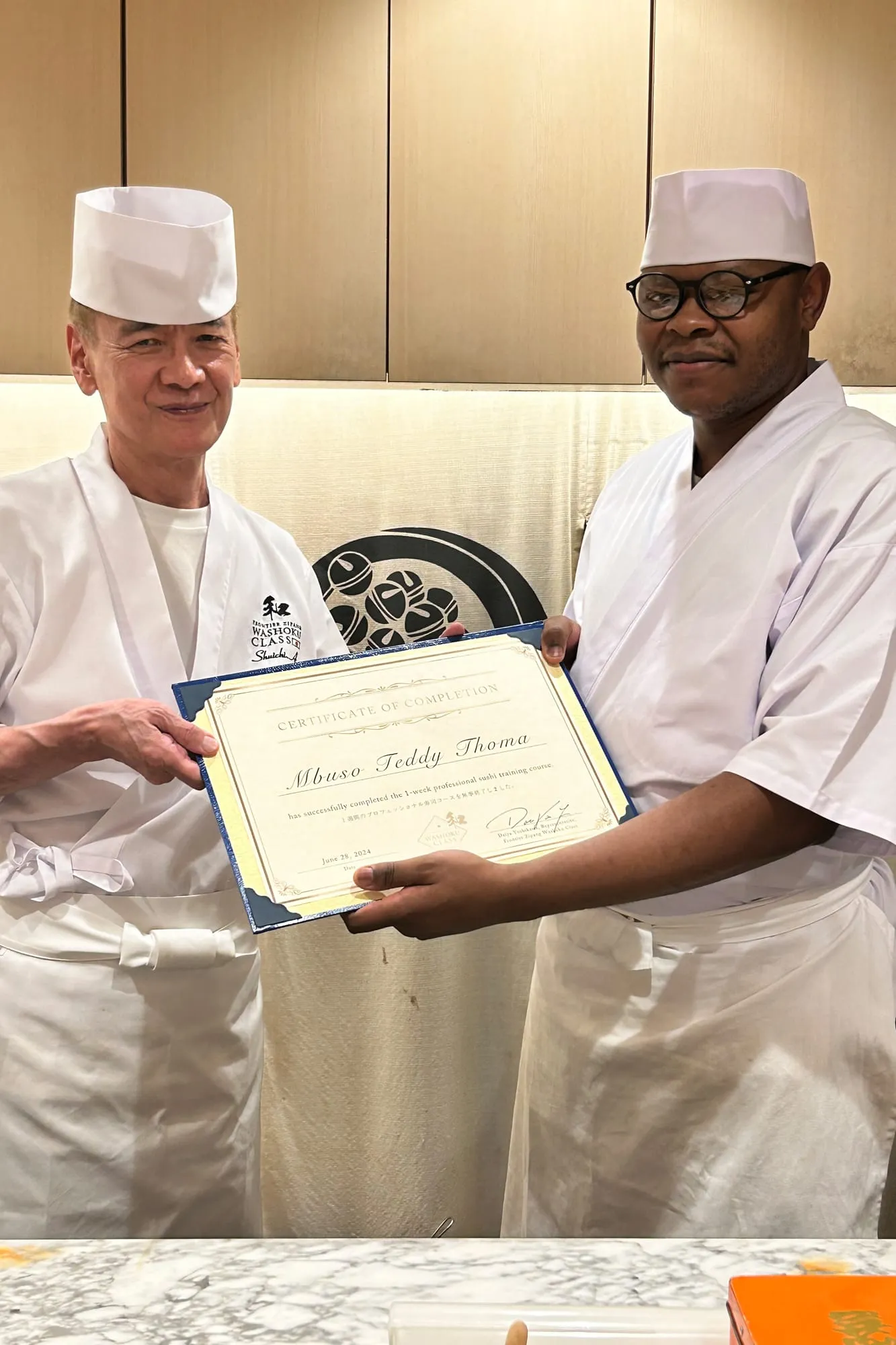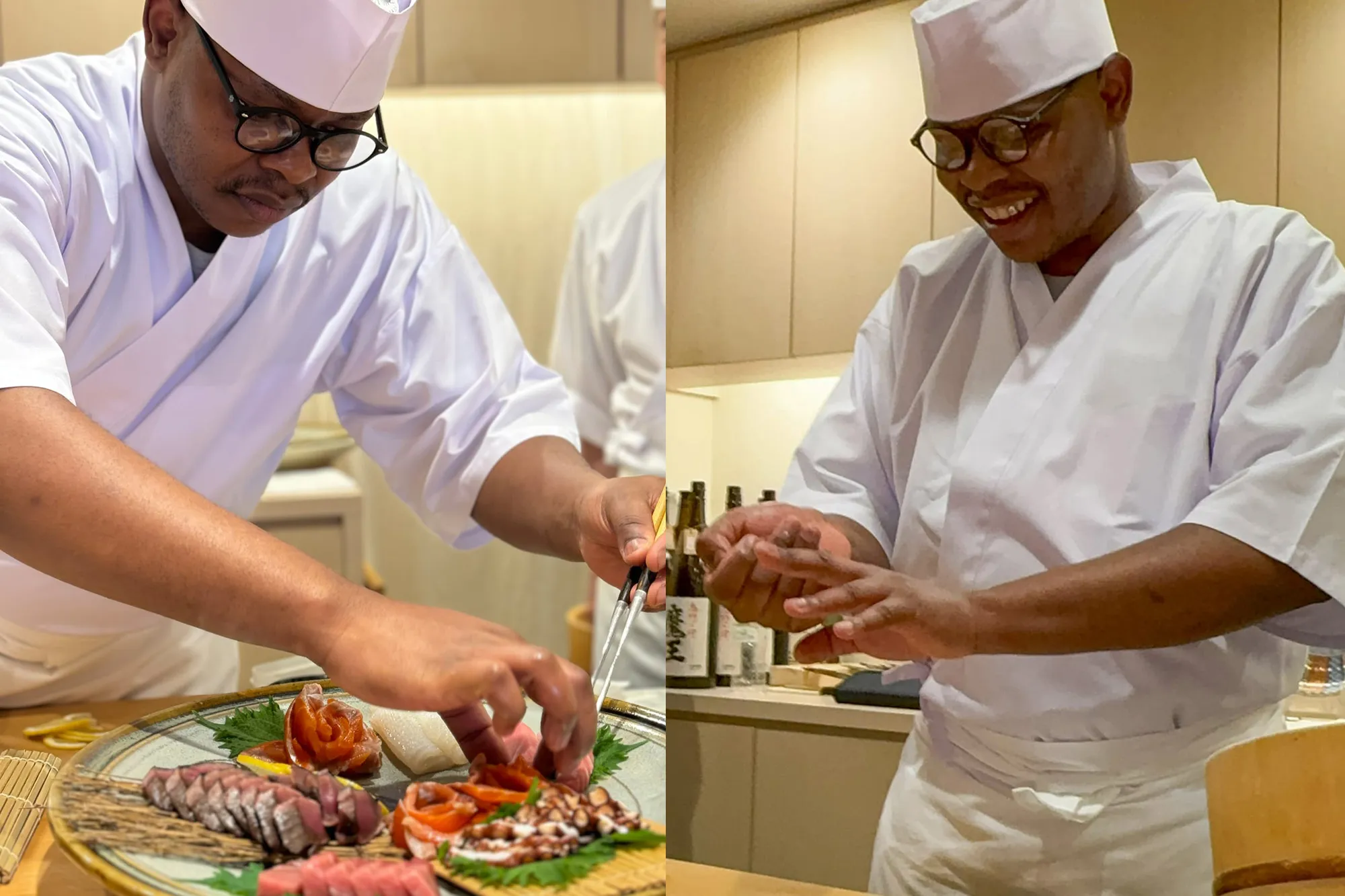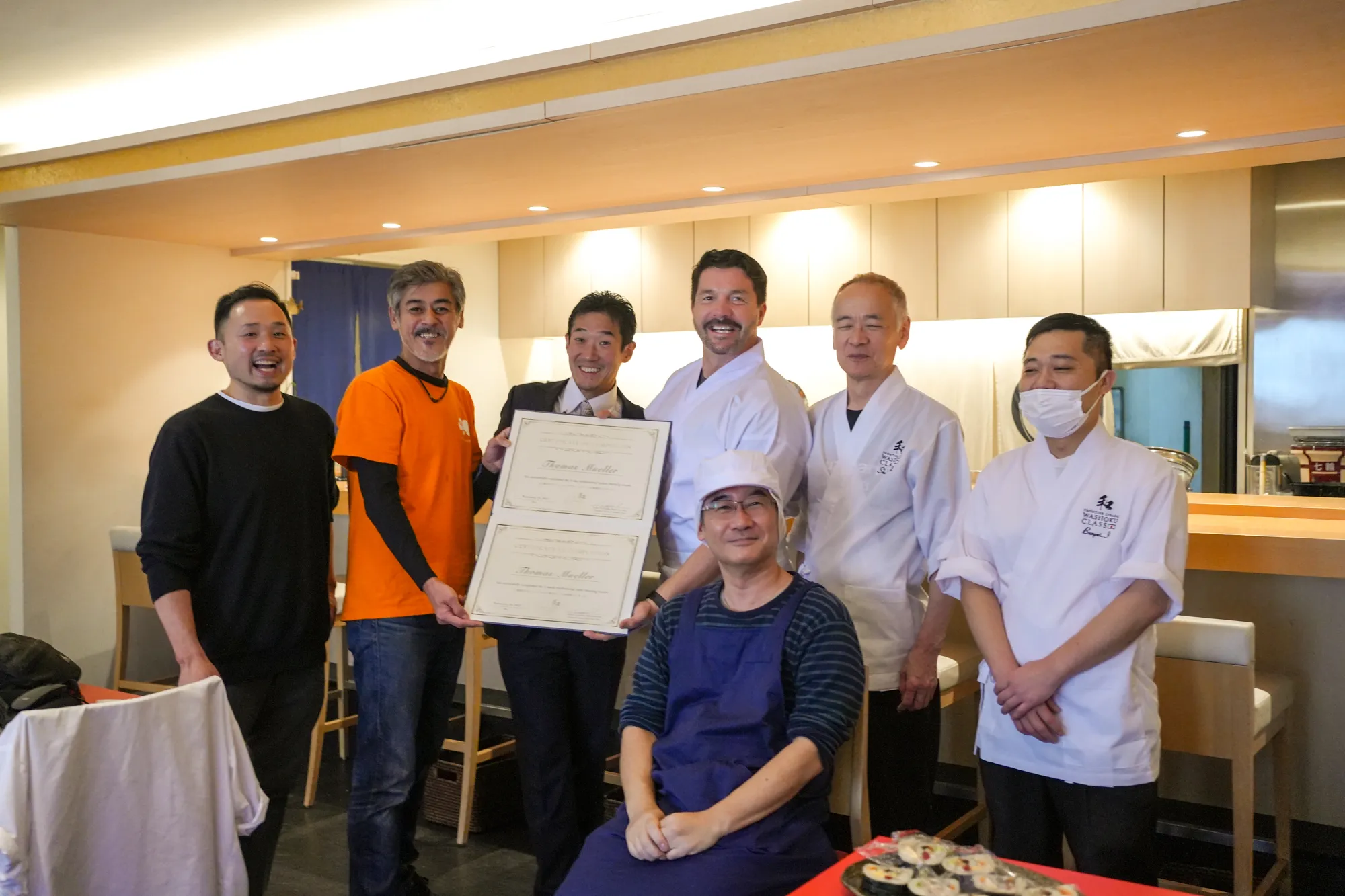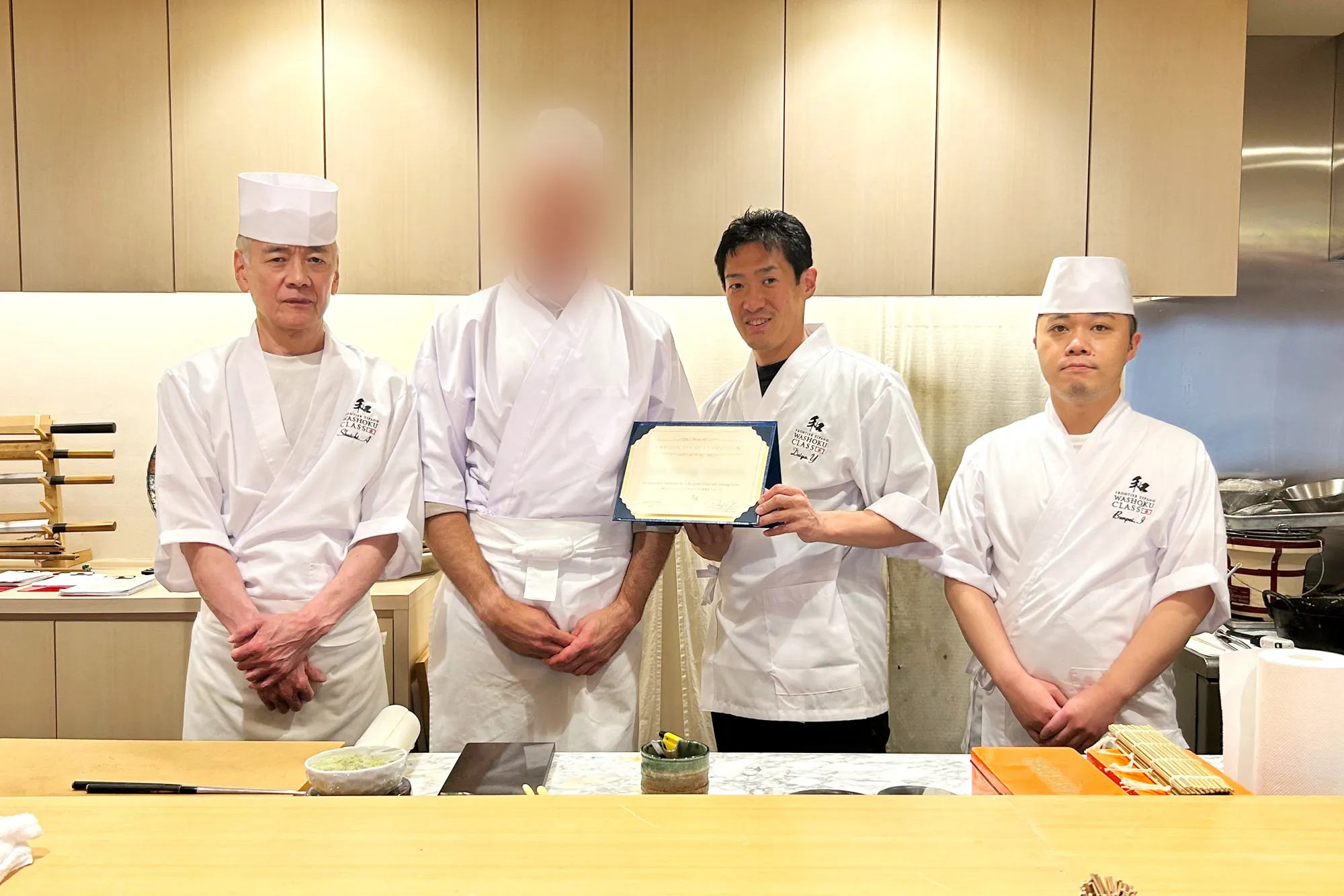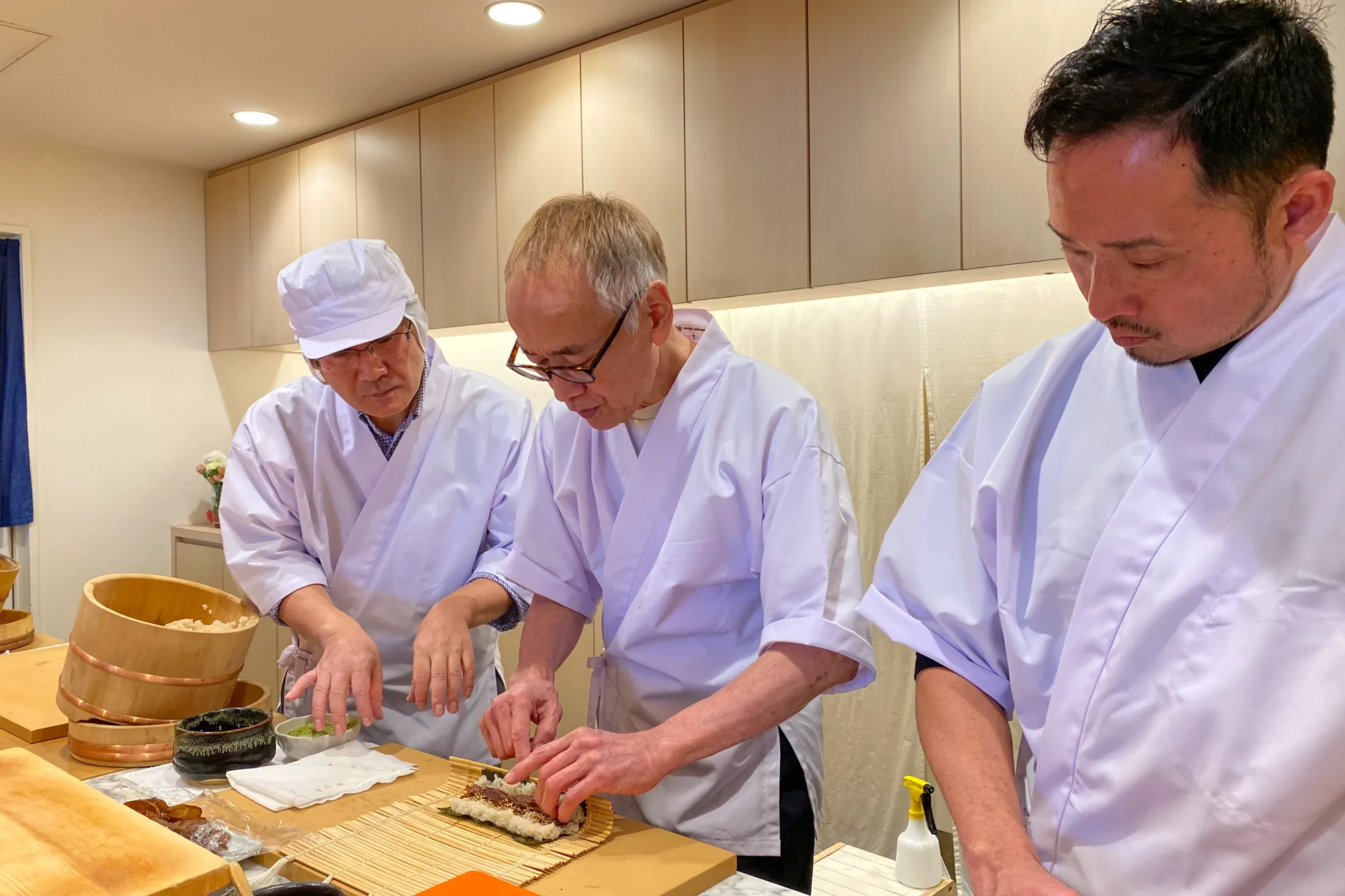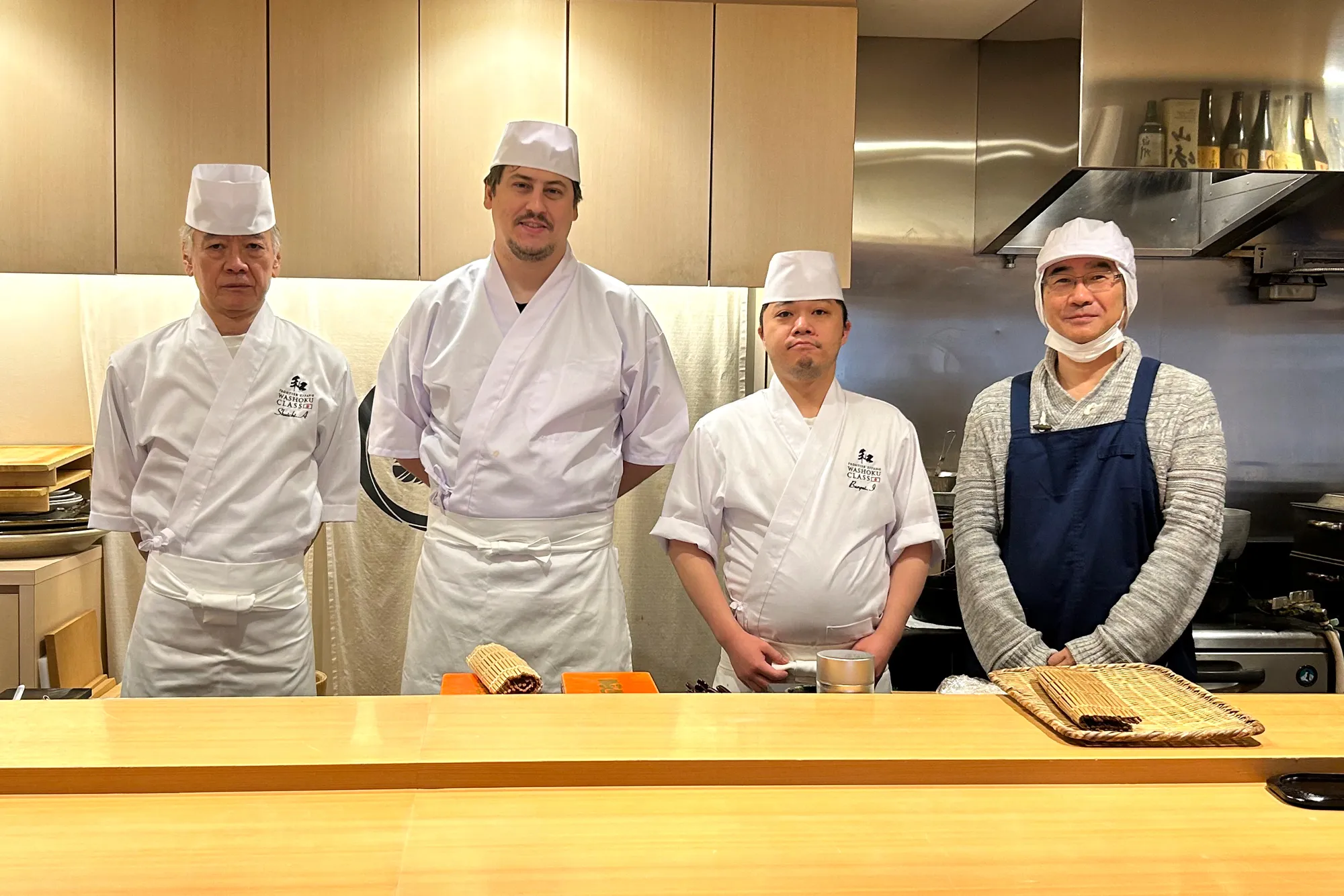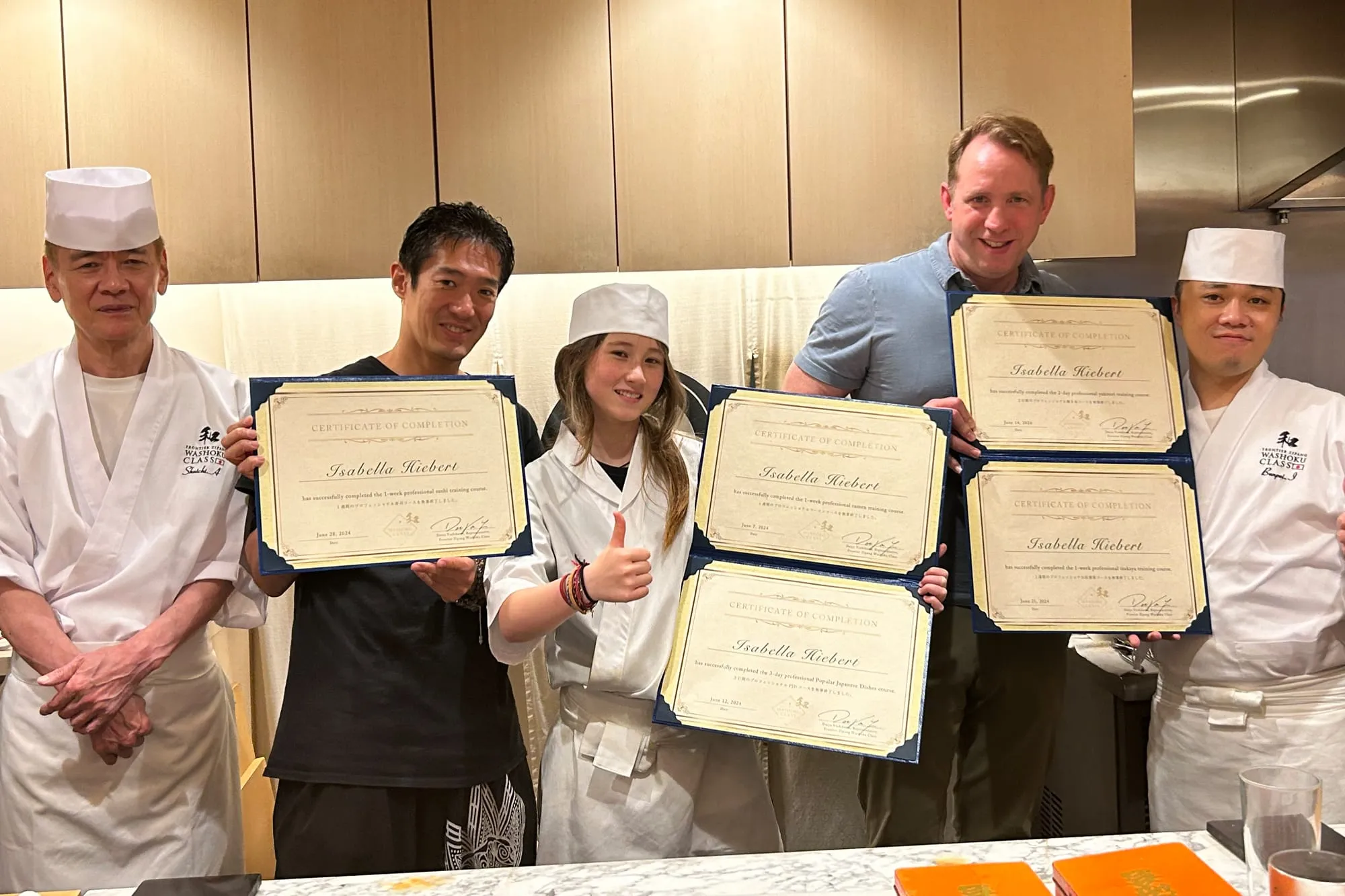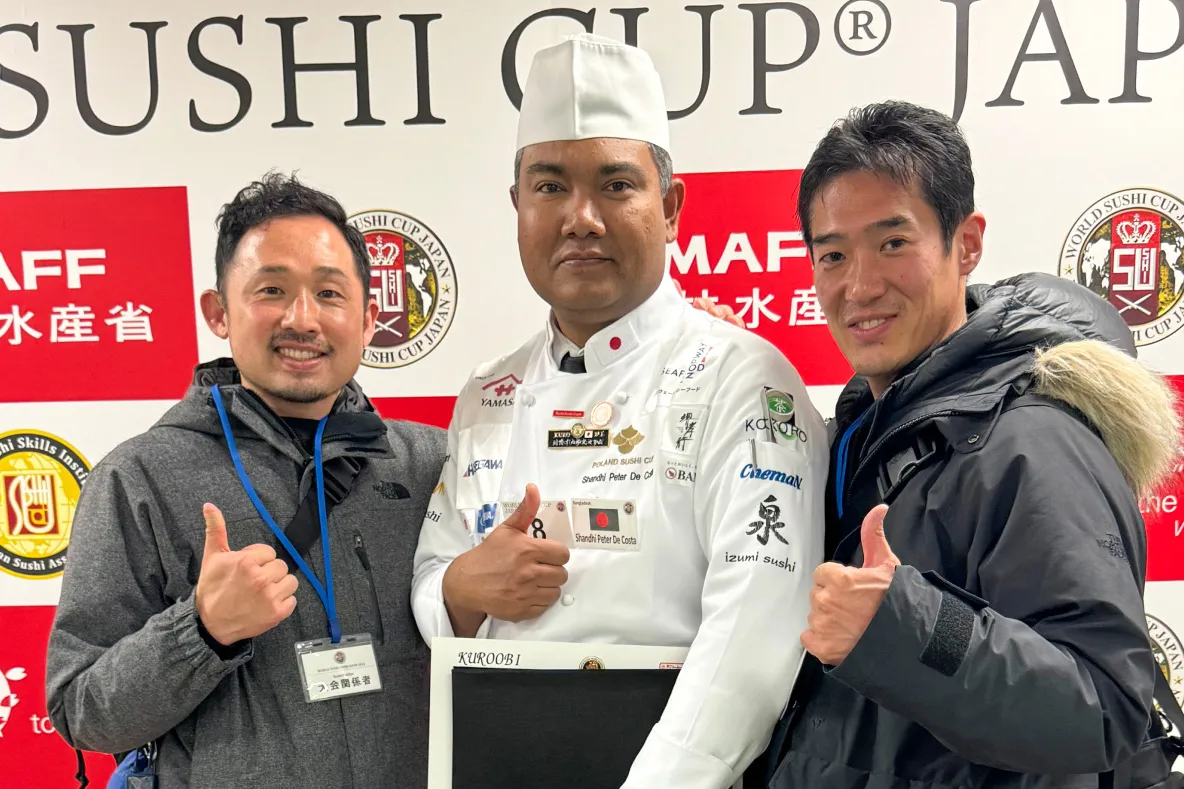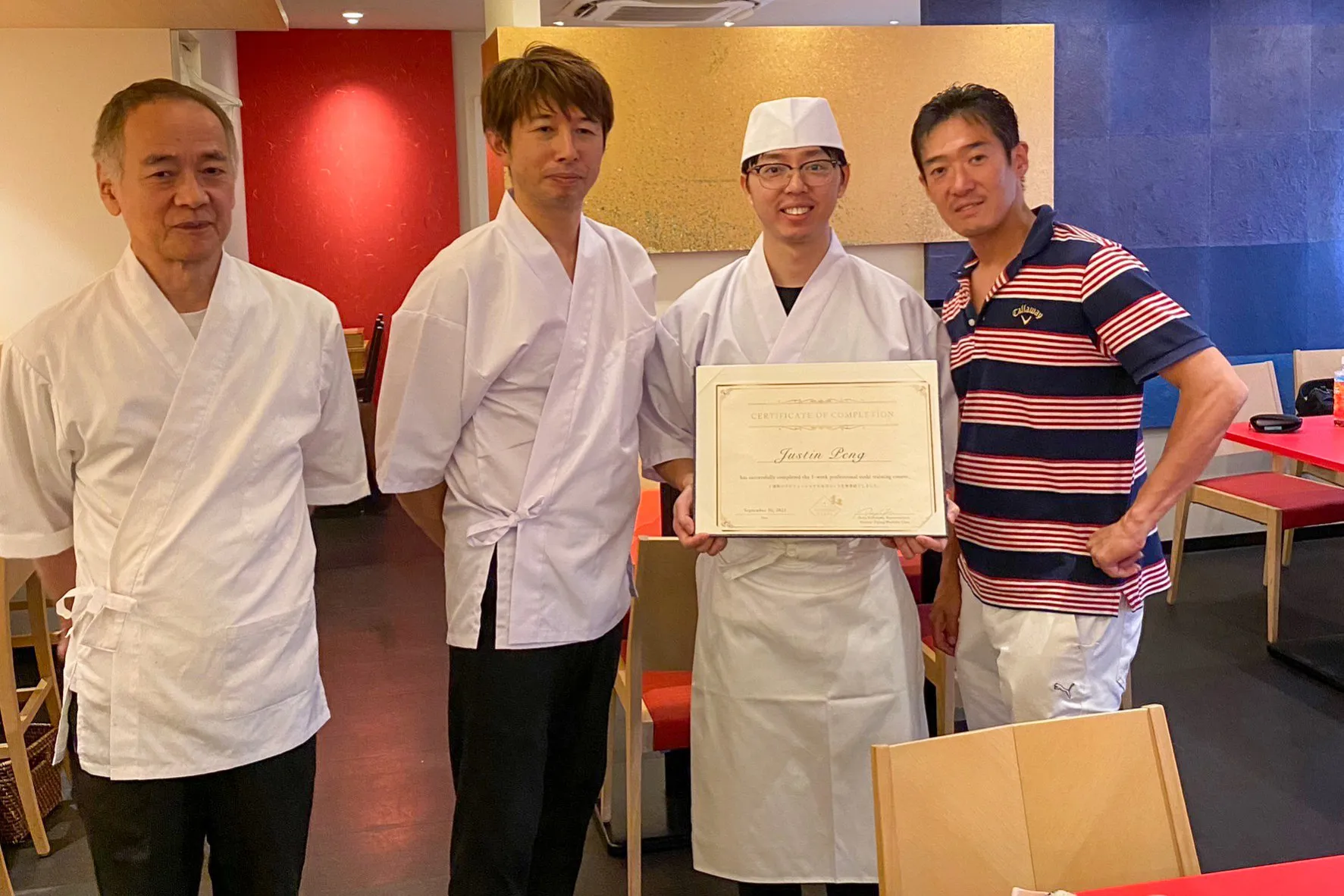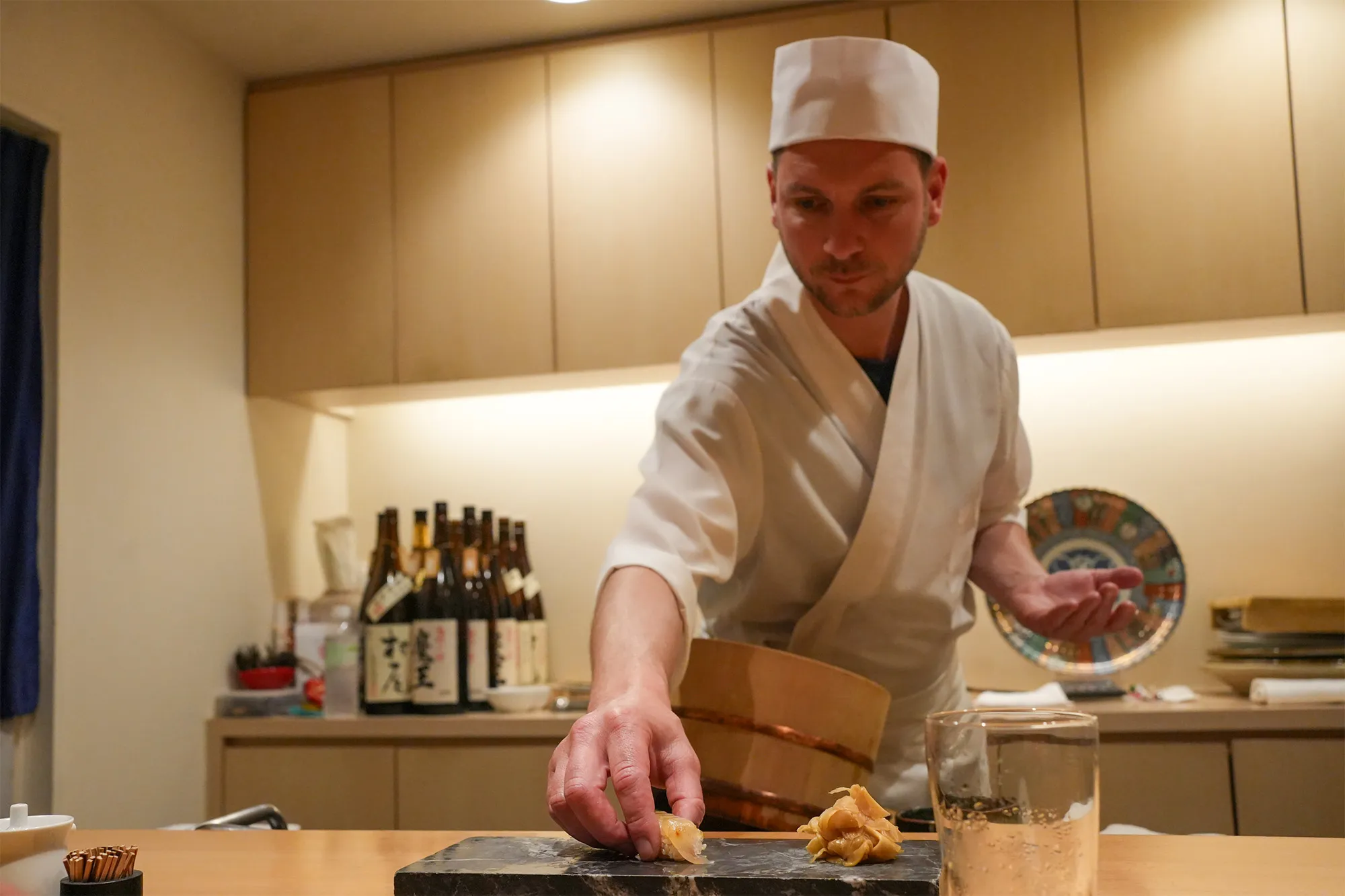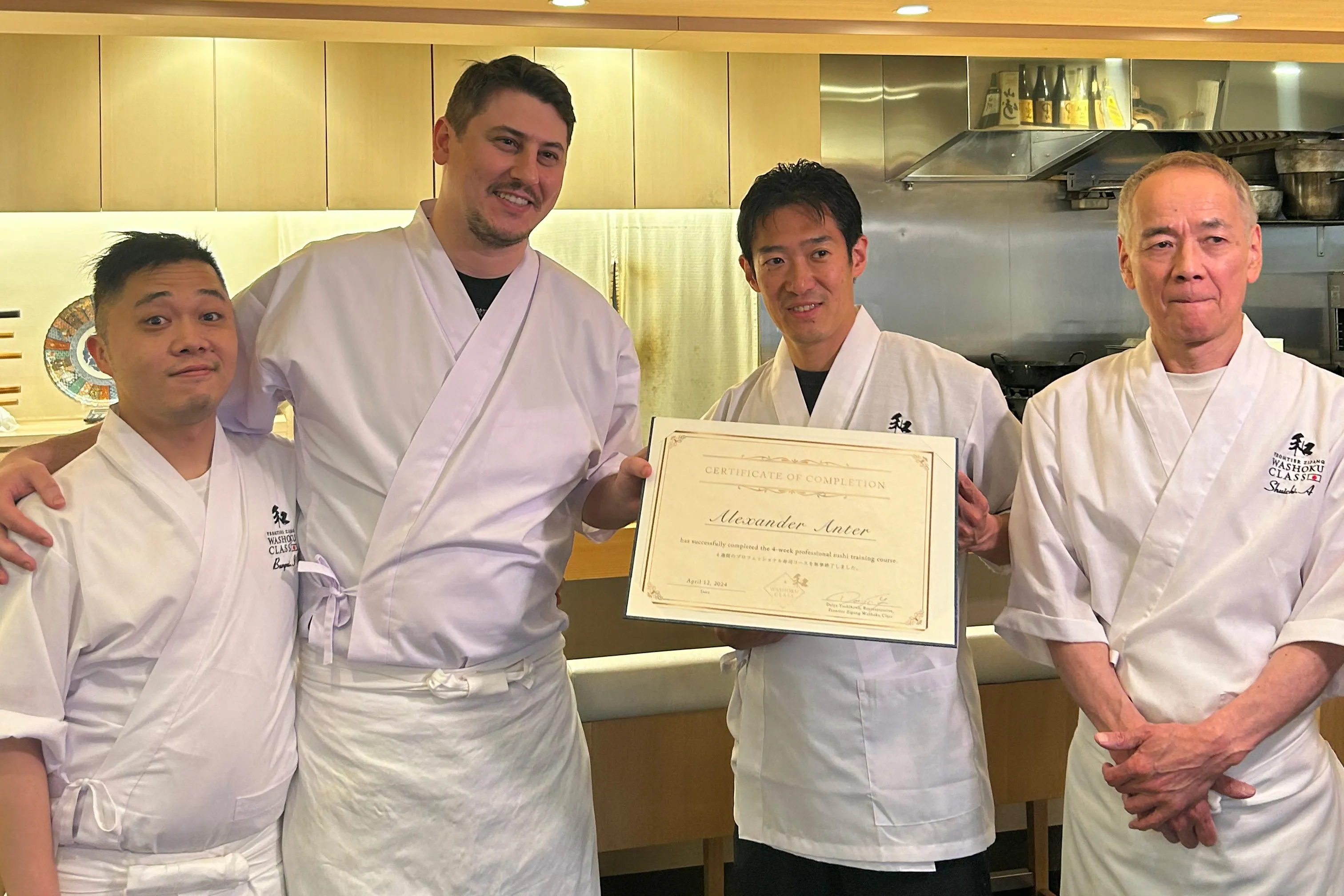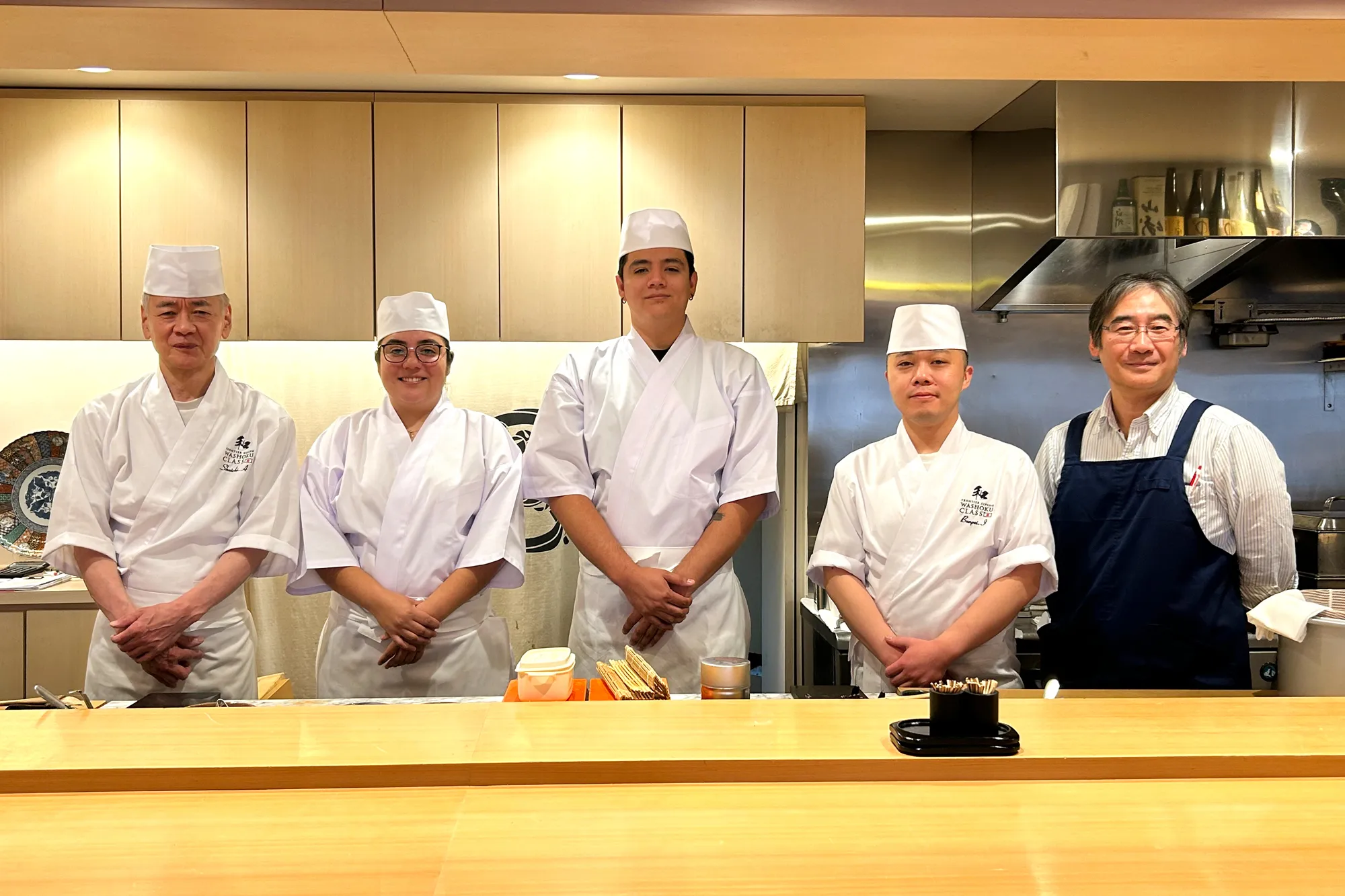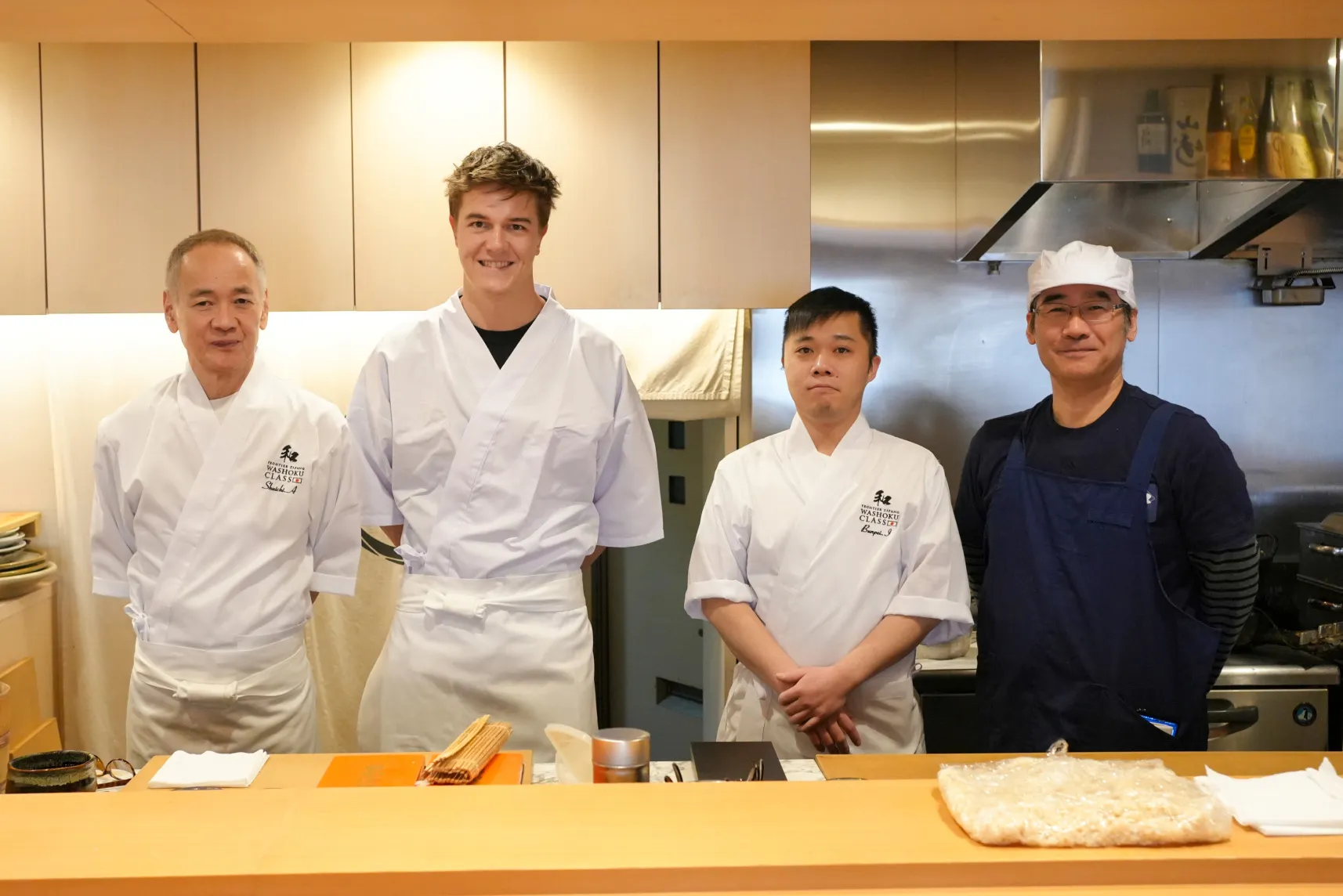Lesson Report: Two-Week Sushi & Ramen Course (Part1: 1-week Sushi)
Jun 22, 2025
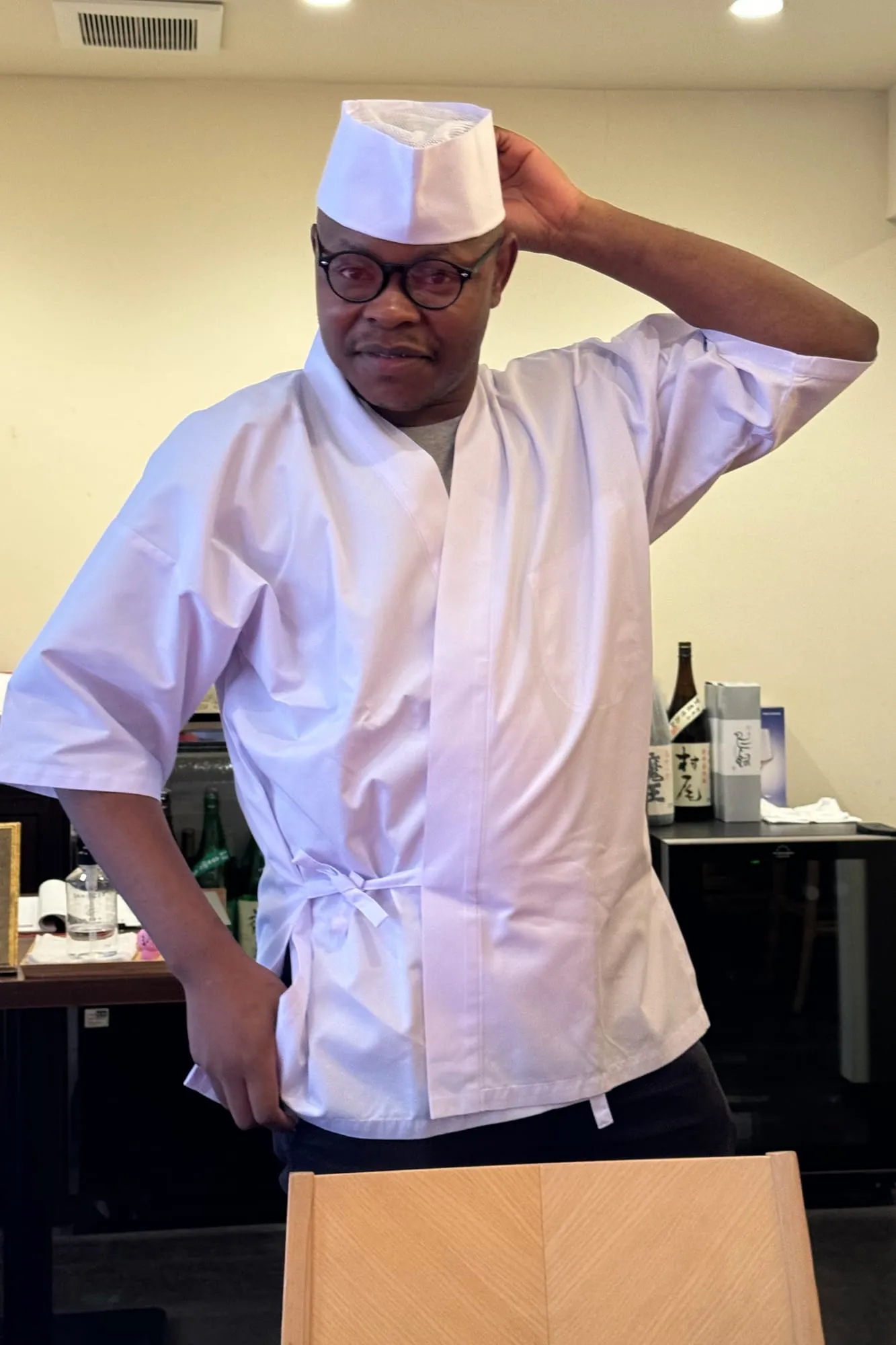
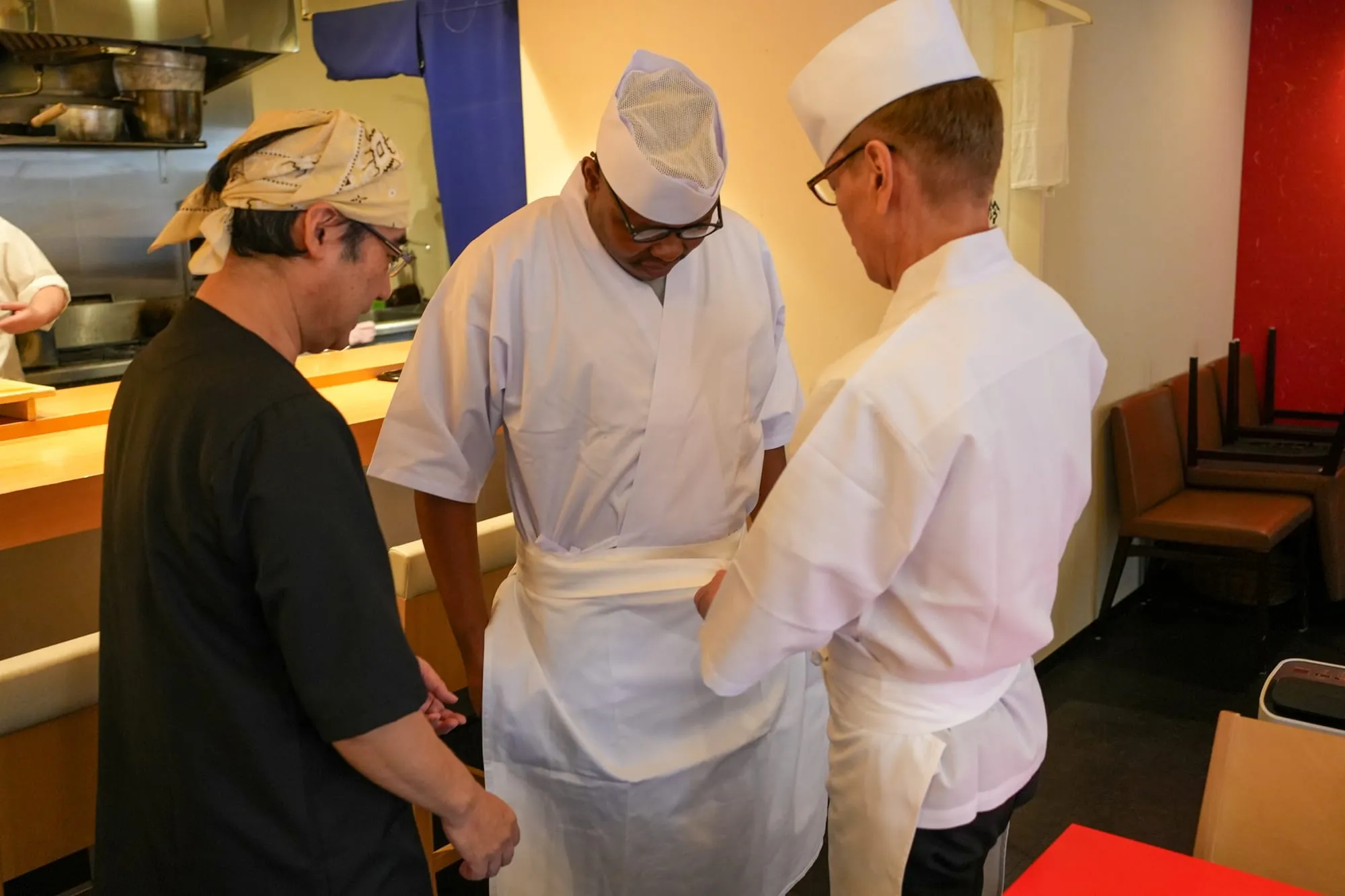
We are pleased to introduce Chef Teddy, a sushi chef from South Africa currently residing in Florida, USA. He has enrolled in a two-week course, dedicating one week to sushi and the other to ramen.
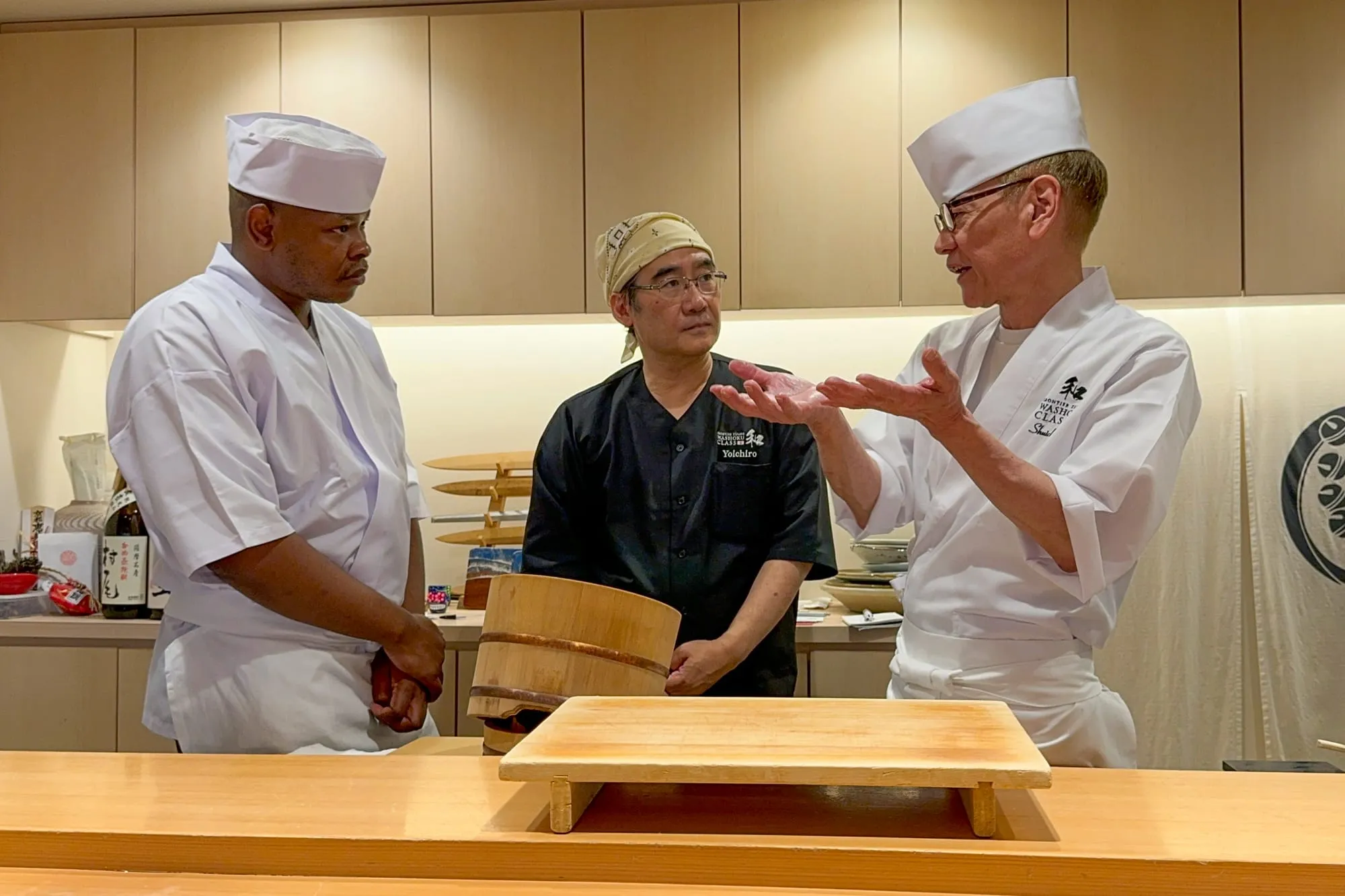
The training begins with a one-week sushi course, starting with the usual orientation. He has been working as a sushi chef for 4 to 5 years but has never received formal training. He aims to acquire authentic, traditional sushi techniques and knowledge in Japan. Eventually, he plans to return to South Africa to train aspiring sushi chefs. Although the course is only five days, we hope he will gain solid skills and knowledge to take back with him.
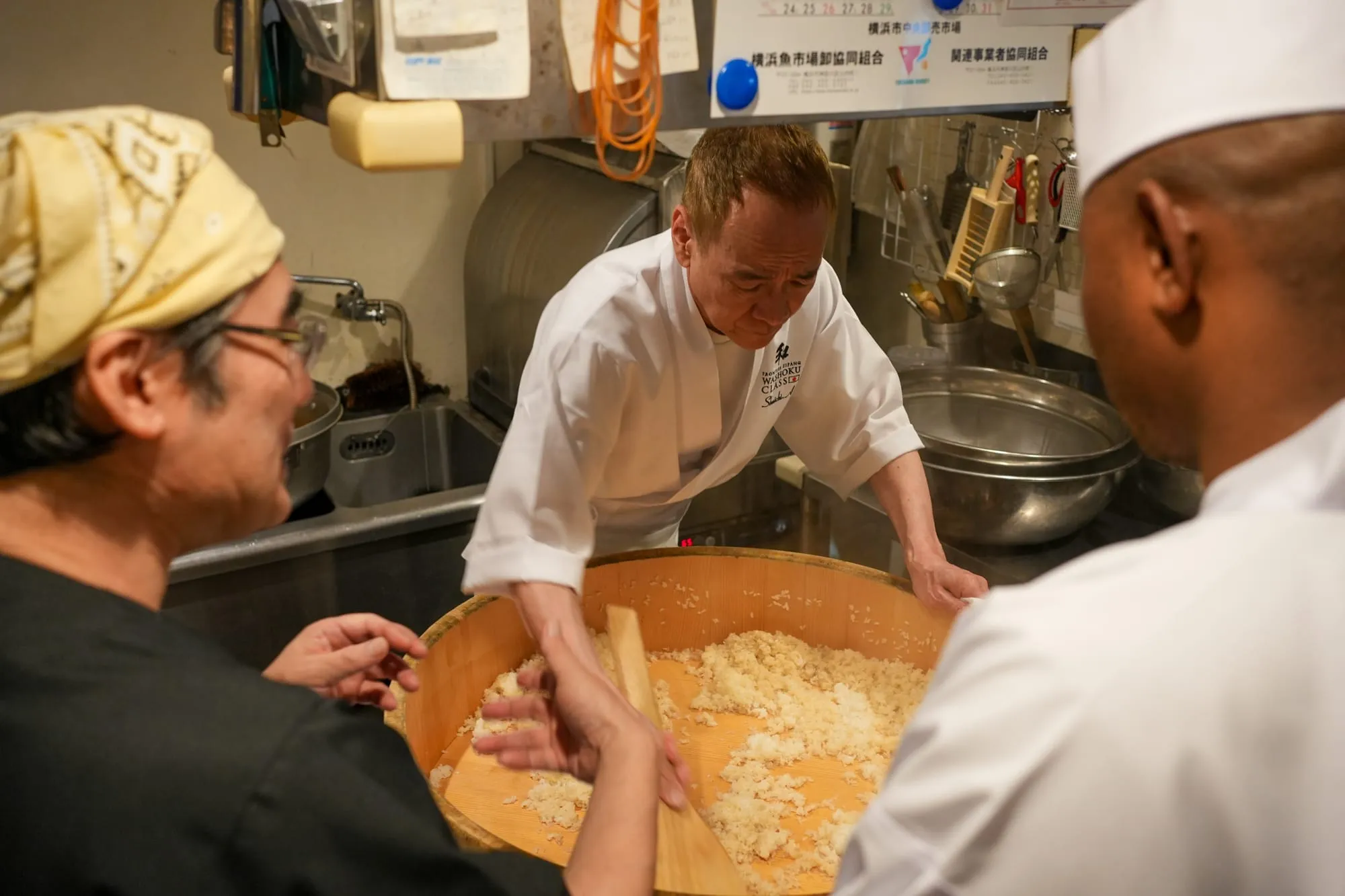
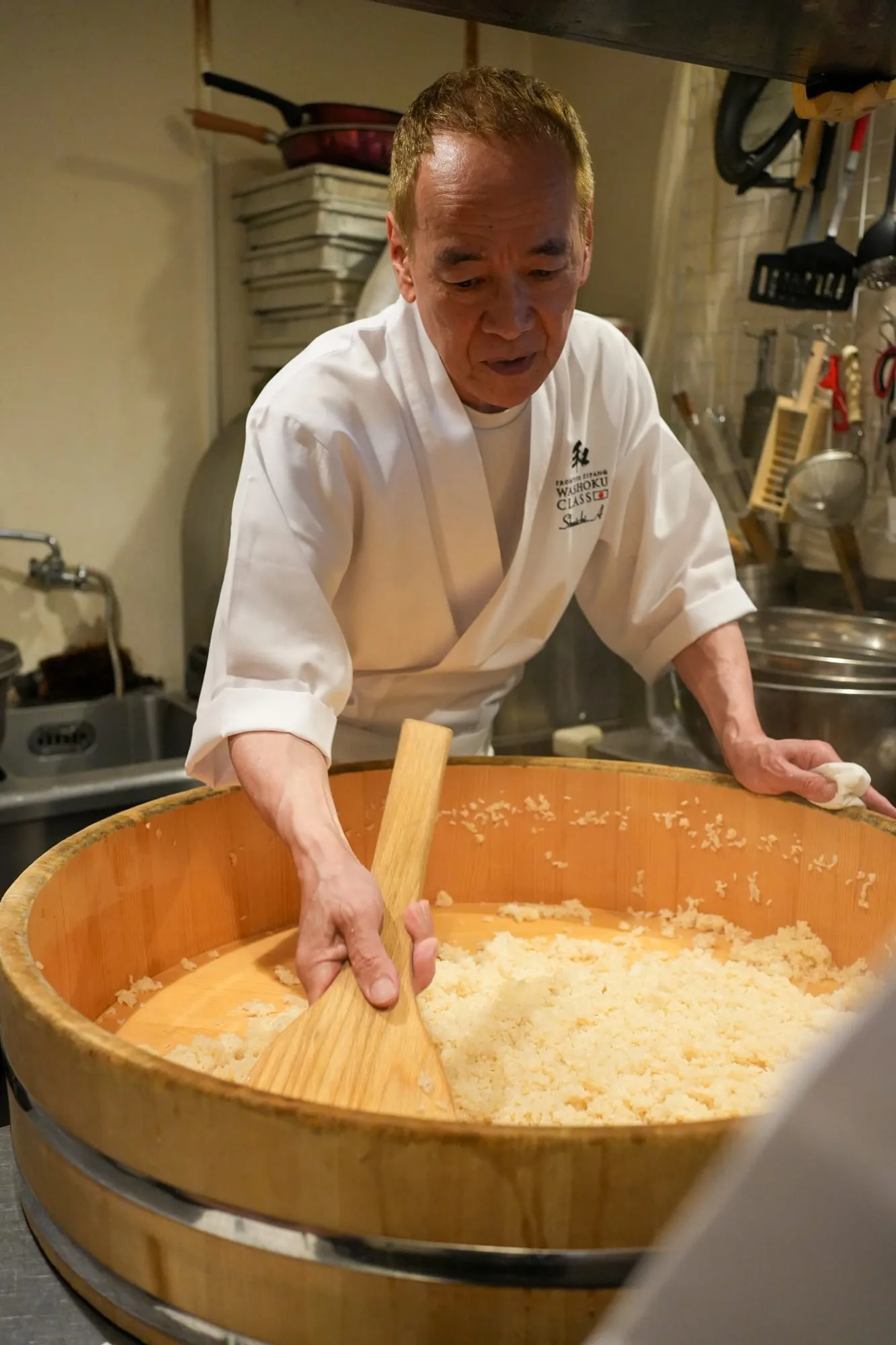
We will begin with preparing and seasoning the sushi rice. Since the rice used here differs from Japanese varieties, we’ll start by discussing the type of rice. Then, we’ll move on to preparing the sushi vinegar. This process is quite different from methods in the U.S., so we’ll proceed carefully, listening to the instructor’s guidance and asking questions whenever necessary.
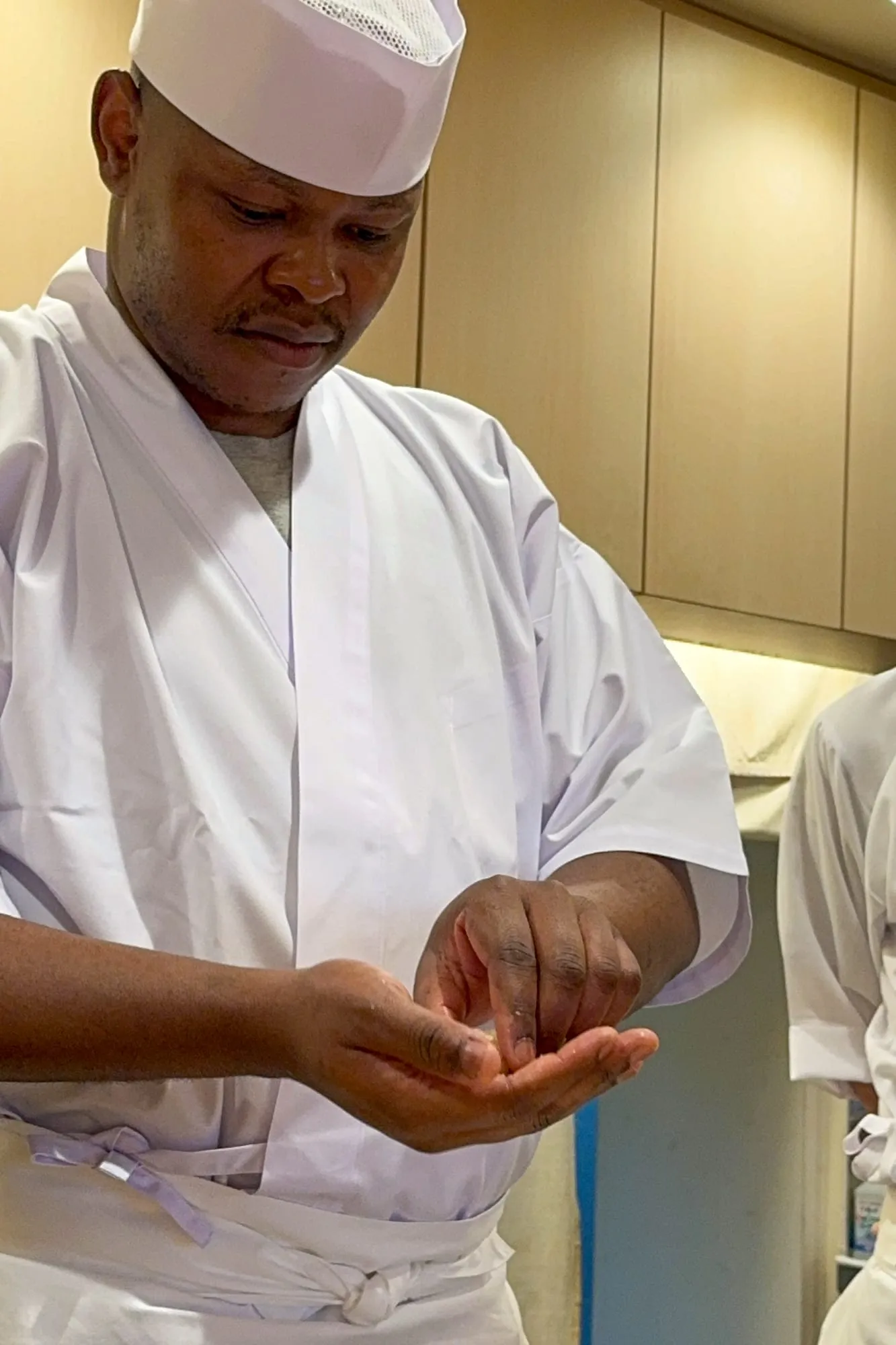
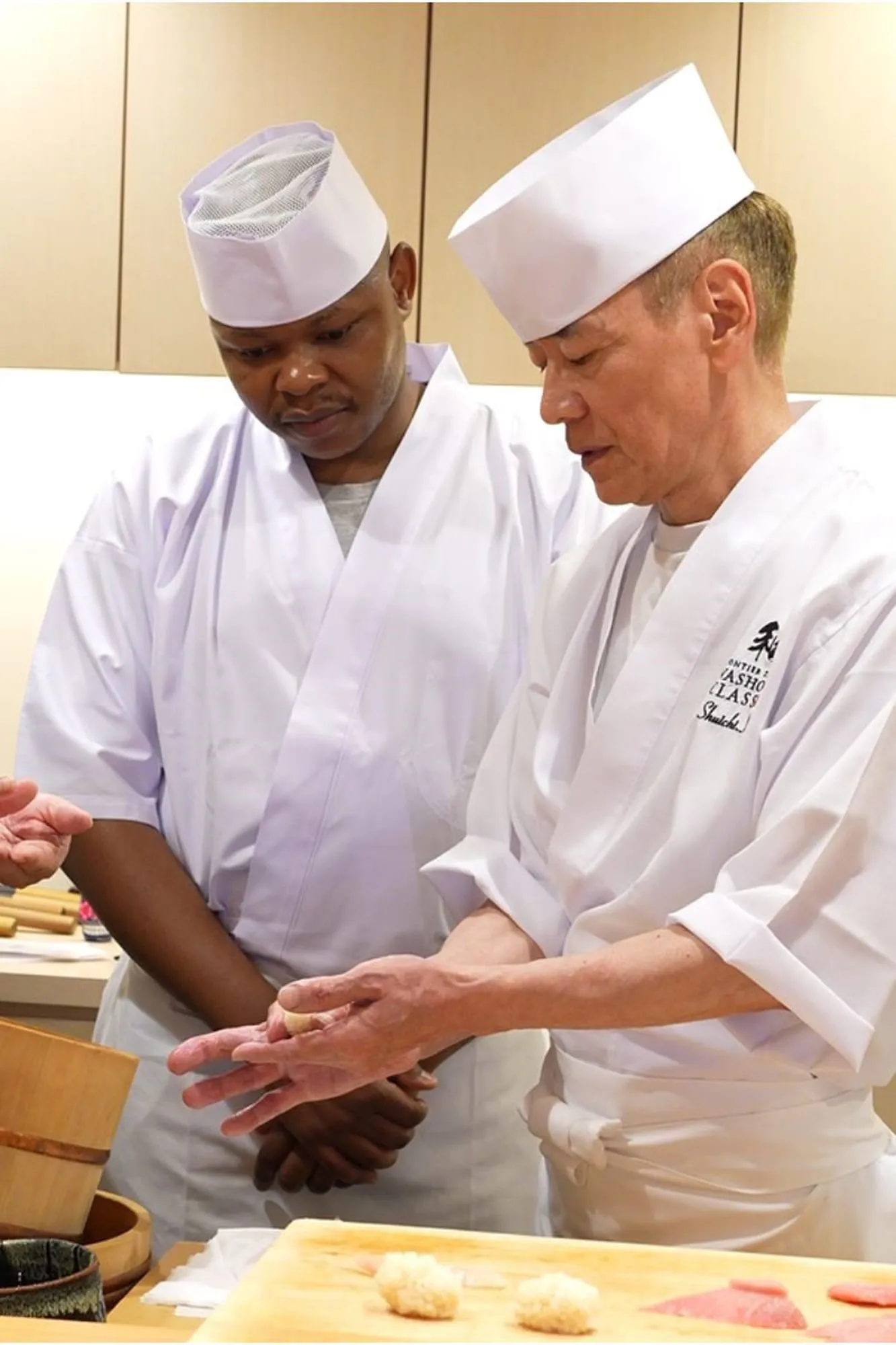
Before practicing shaping the rice balls, we observed the usual method of forming nigiri. While not incorrect, it didn’t quite qualify as traditional nigiri, so we will learn the instructor’s technique. (There are various ways to form nigiri.) Initially, he struggled, but after a few attempts, he seemed to grasp the technique.
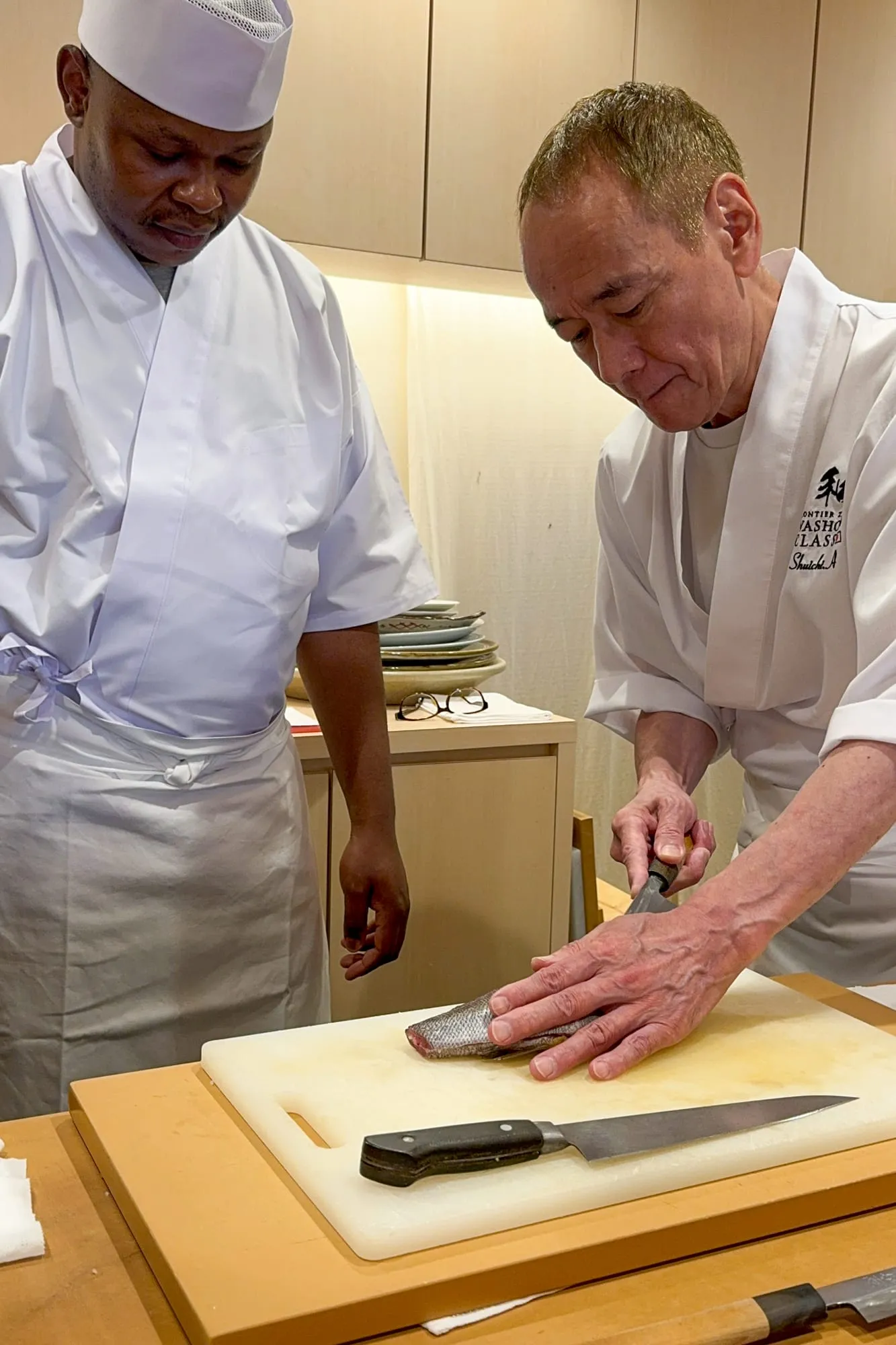
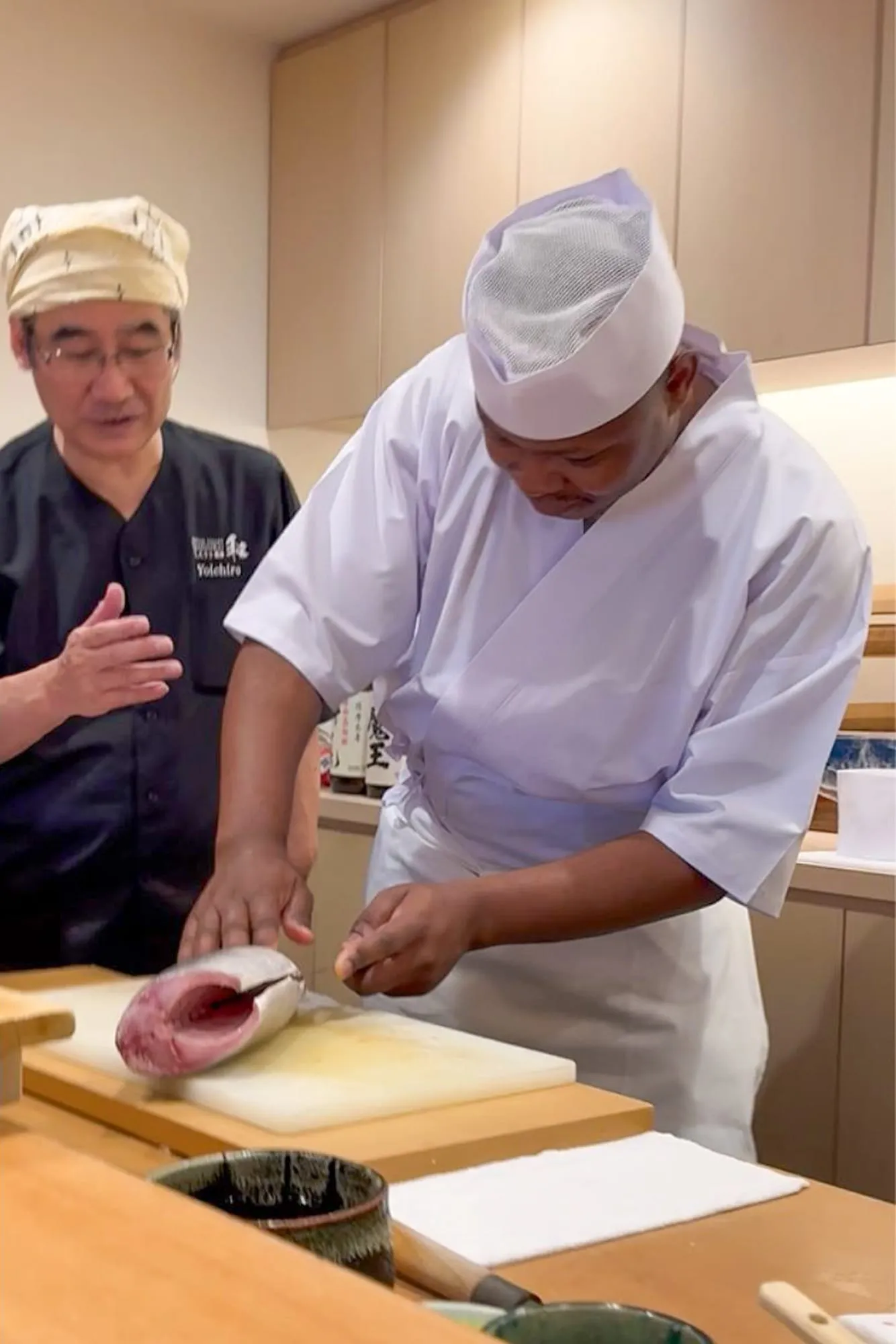
Next, we moved on to fish filleting. Following the instructor’s demonstration and guidance, he skillfully and carefully filleted the fish, clearly demonstrating his proficiency with the knife. What was particularly surprising was that, despite being left-handed, he was using a traditional right-handed Japanese knife. Nonetheless, he handled it with remarkable precision and ease, which was truly impressive!
During the fish filleting practice, as we discussed the structure and handling of the knife, it became clear that adopting the proper technique was essential. He understood that using a left-handed knife would be more appropriate for him.
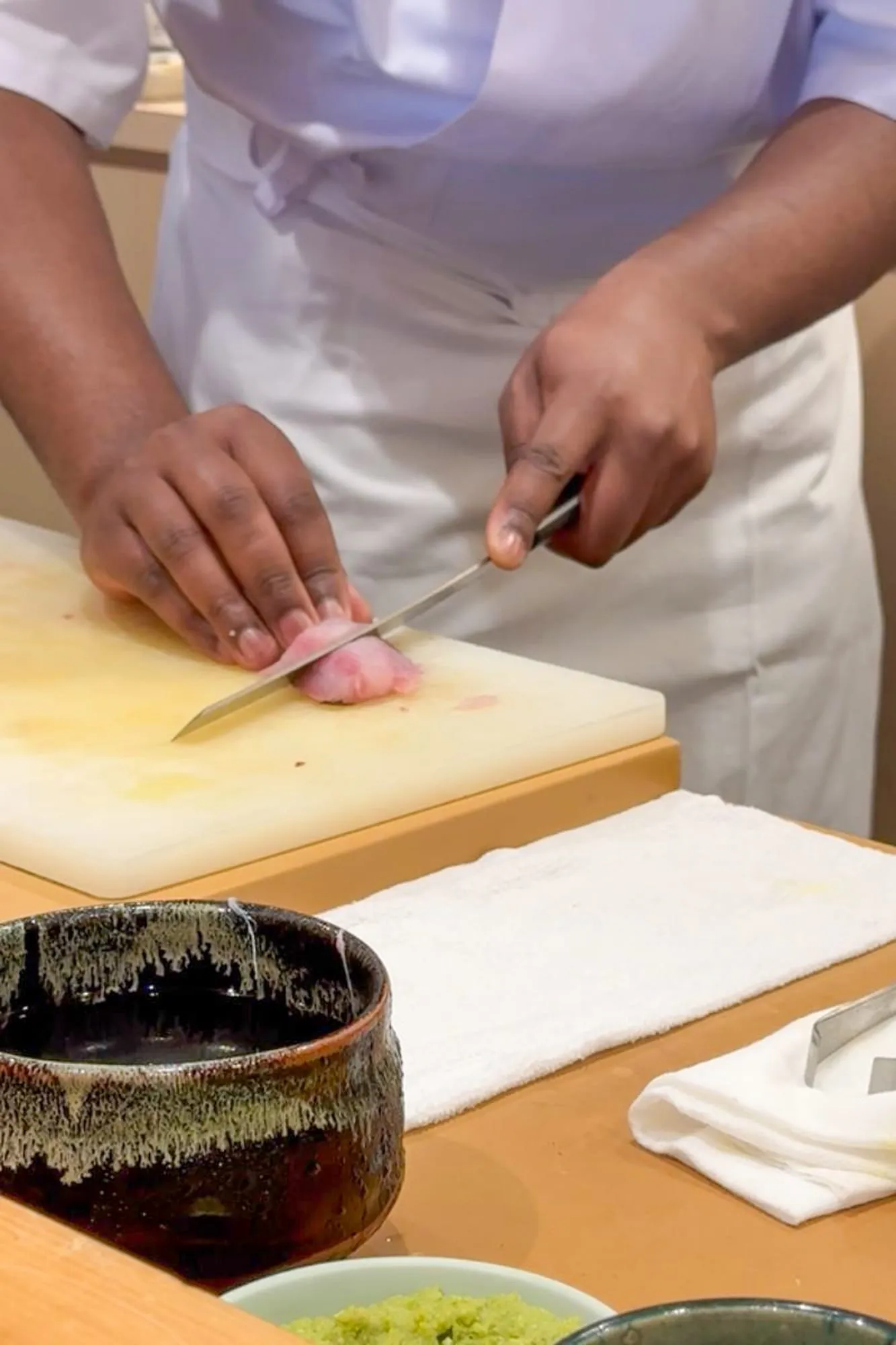
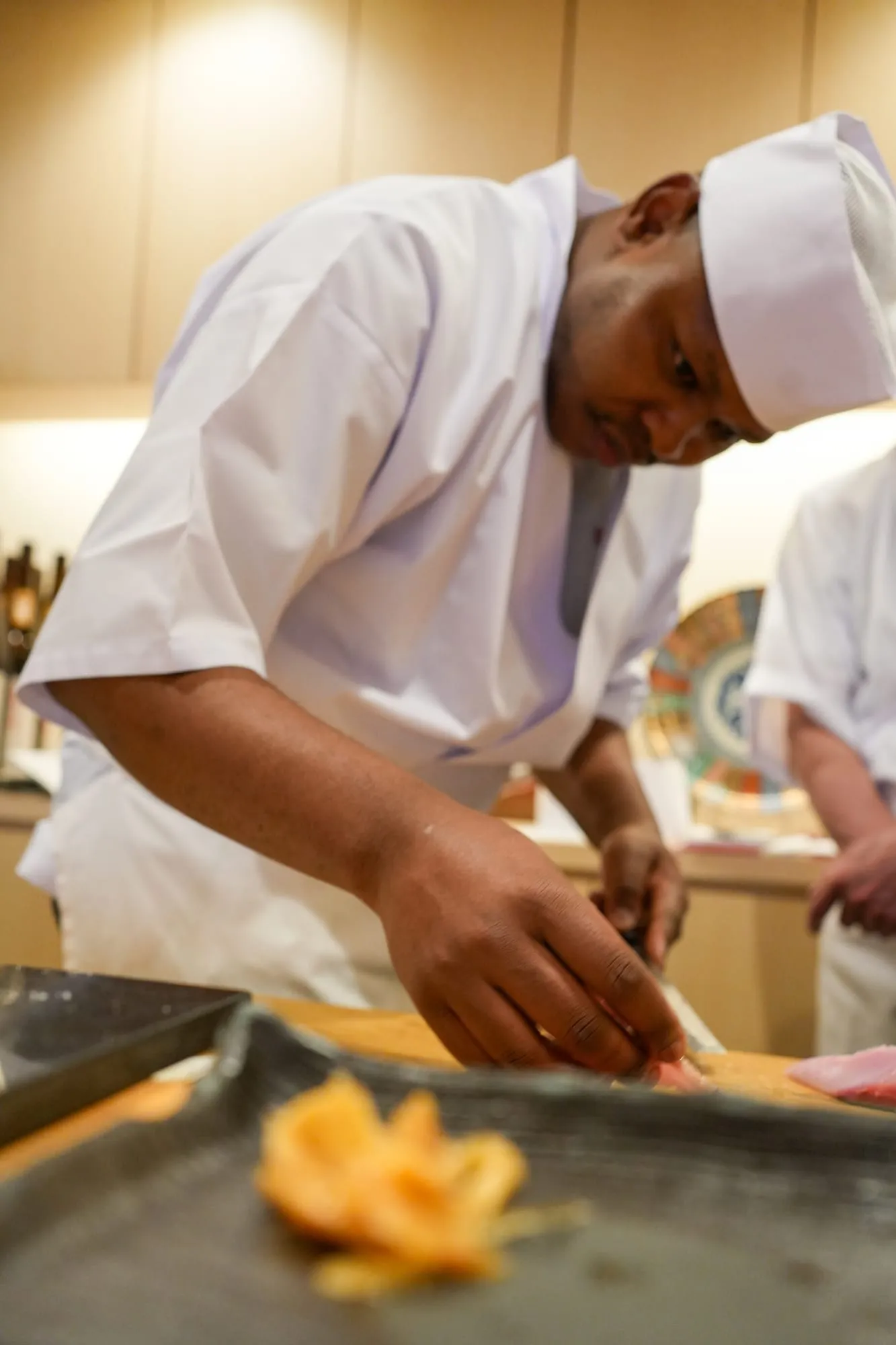
His slicing technique is precise, but there is some inconsistency in the thickness of the cuts. Therefore, we instructed him to utilize the entire length of the knife in one smooth motion to achieve uniform slices.
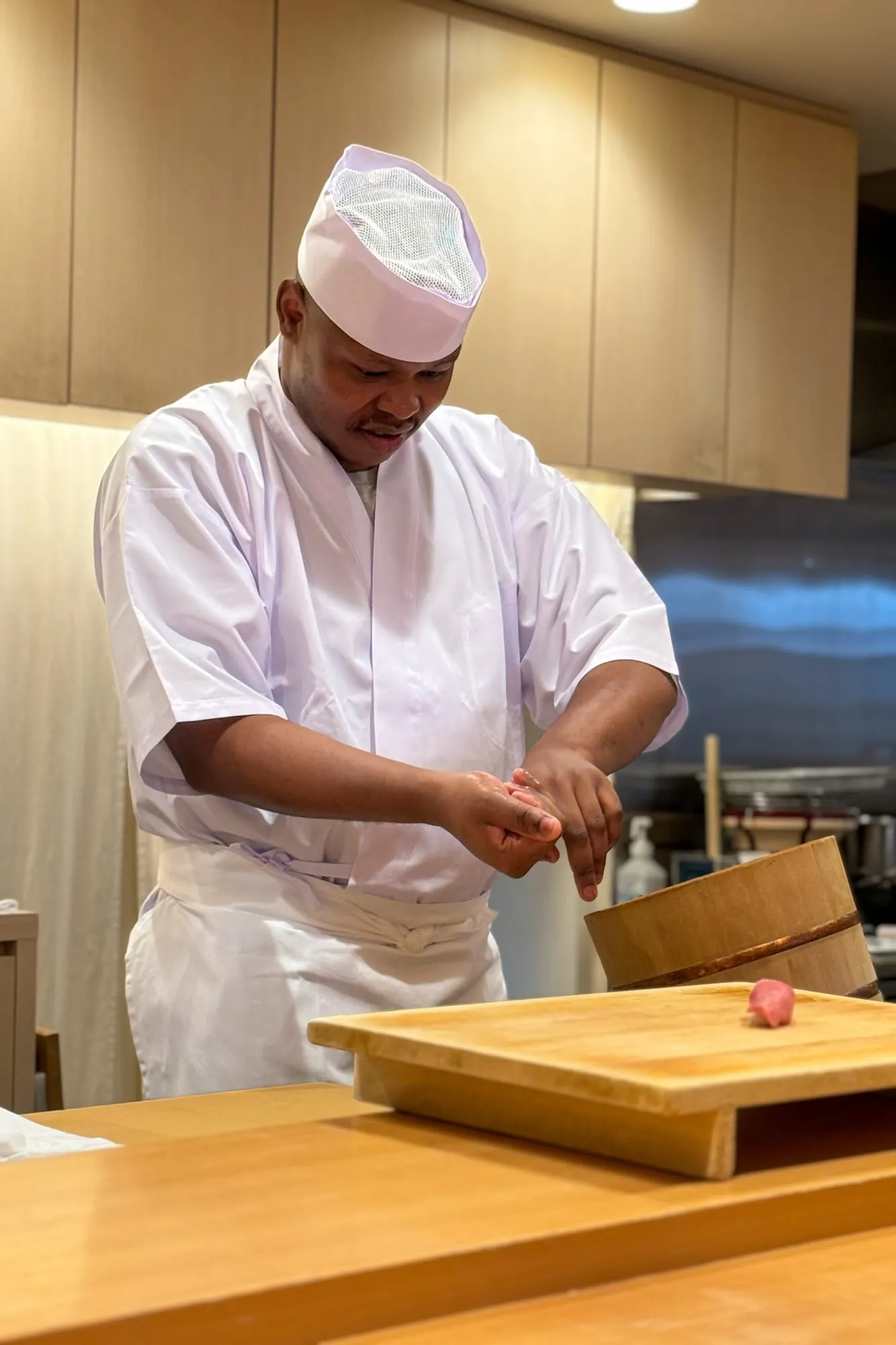
In shaping the nigiri, he had memorized the steps well and his technique wasn’t bad. However, he was applying a bit too much pressure. By having the instructor guide his hand to demonstrate the appropriate amount of force, Teddy was able to relax his grip. As a result, the shape of the nigiri improved slightly.
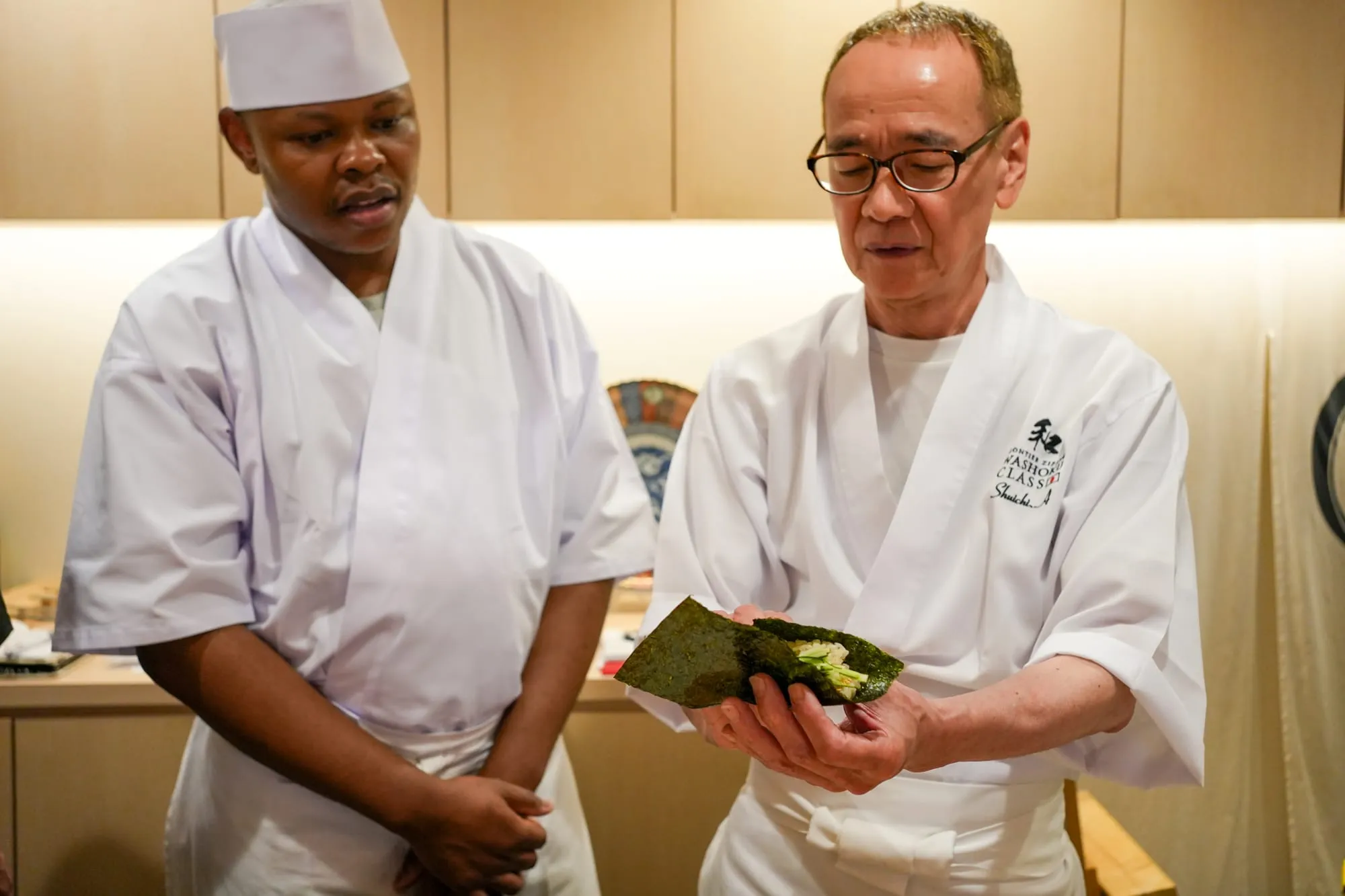
In preparing the hand rolls, he encountered a method quite different from what he had previously known. However, by observing the instructor’s technique, he was able to execute it skillfully.
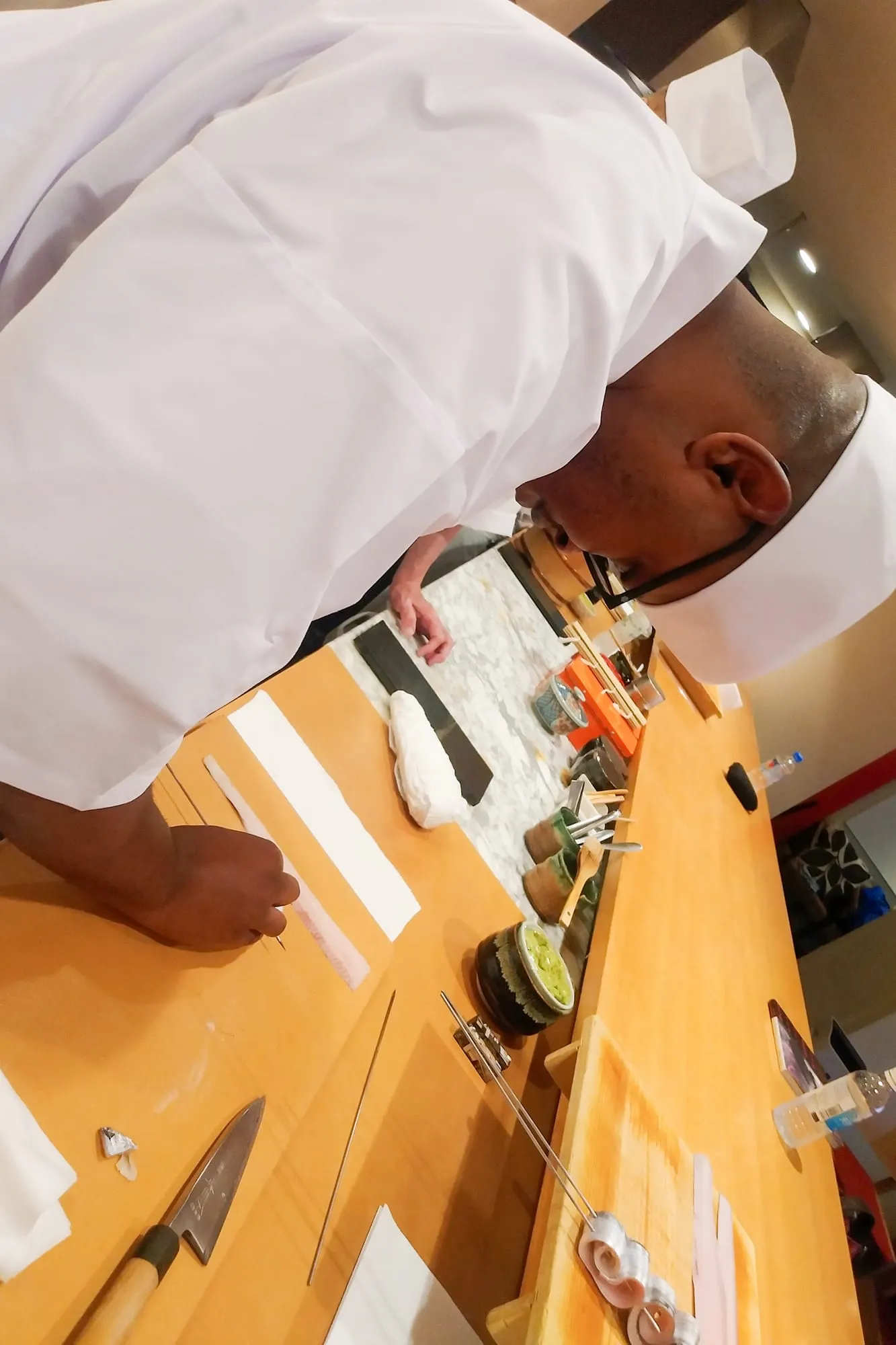
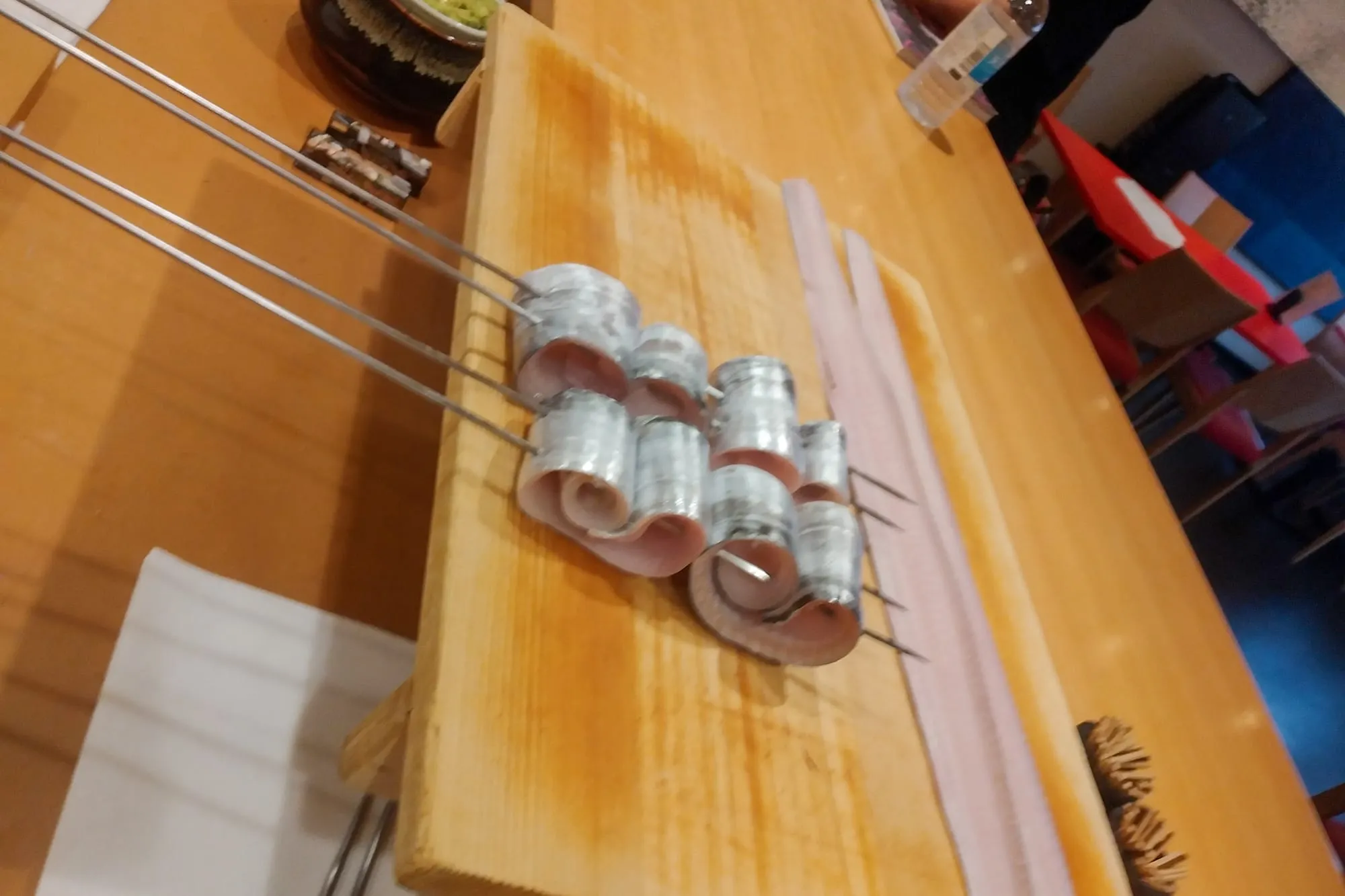
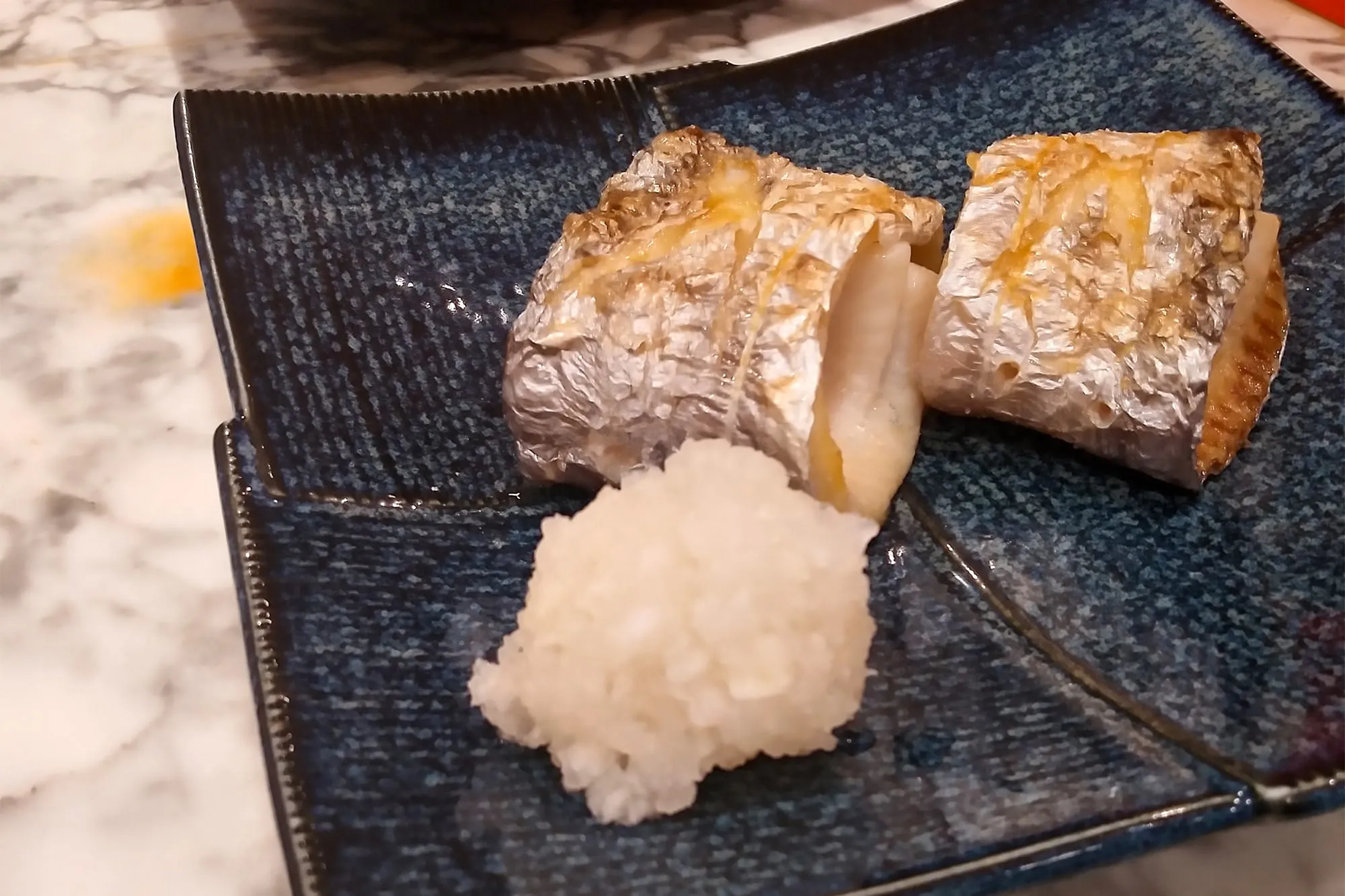
Having a solid foundation in fish filleting, he took his skills to the next level by attempting to fillet a ribbonfish—a challenging task. Despite its difficulty, he managed to fillet it beautifully. In slicing, he practiced techniques for both nigiri and grilled dishes. He also received instruction on preparing fish for grilling.
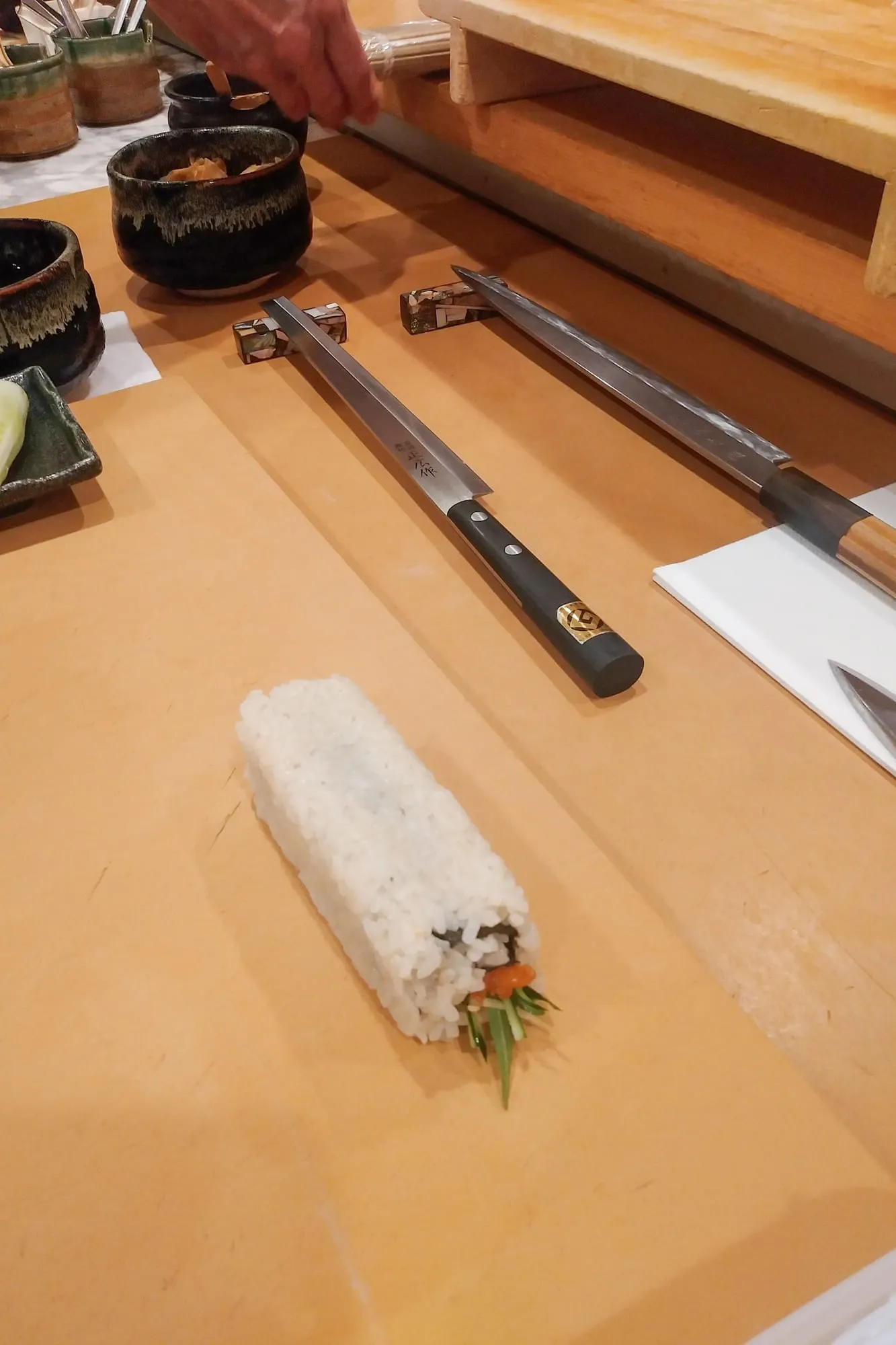
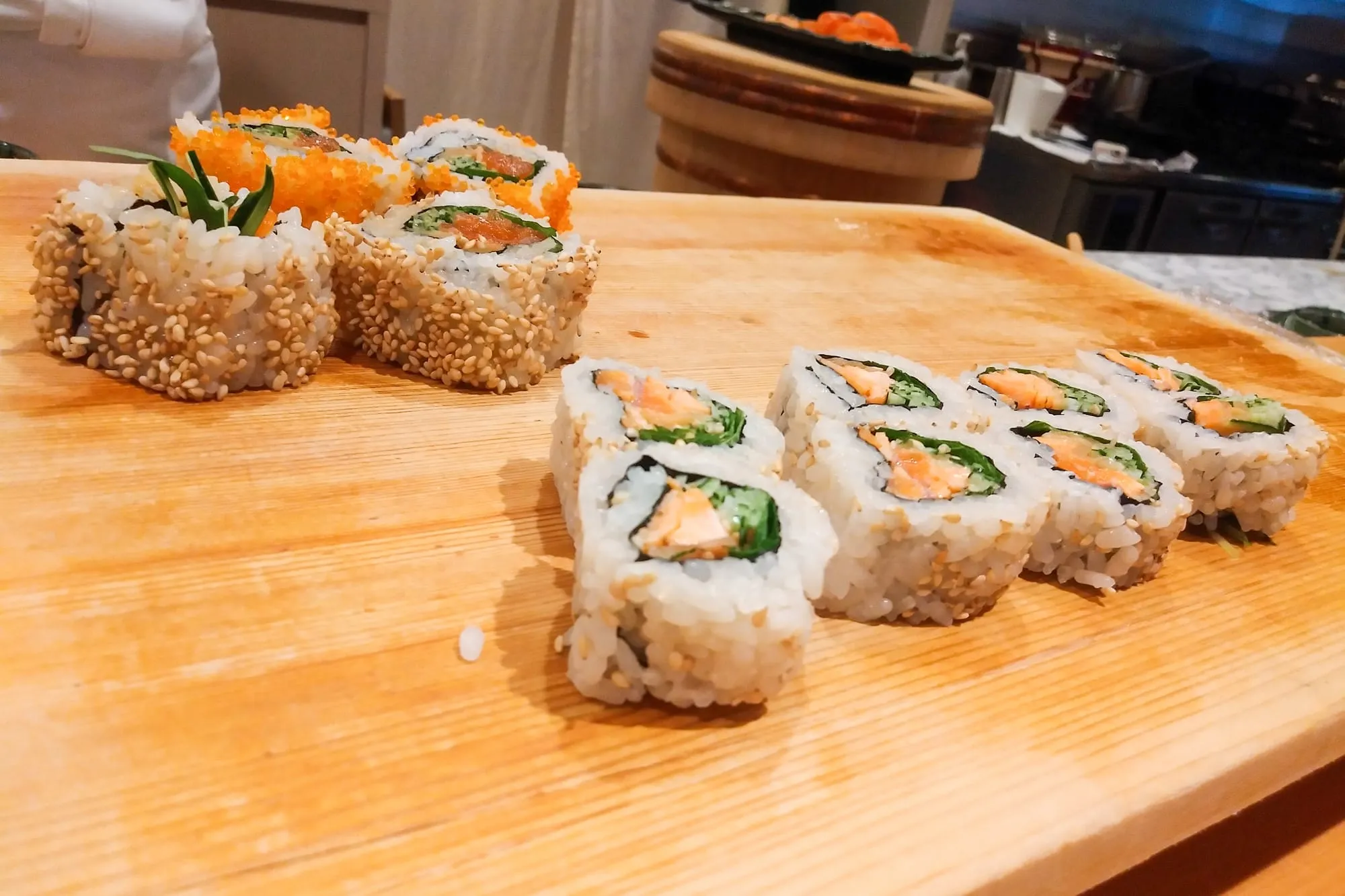
He will also learn pressed sushi variations and the inside-out roll technique, essential for making California rolls and similar styles.
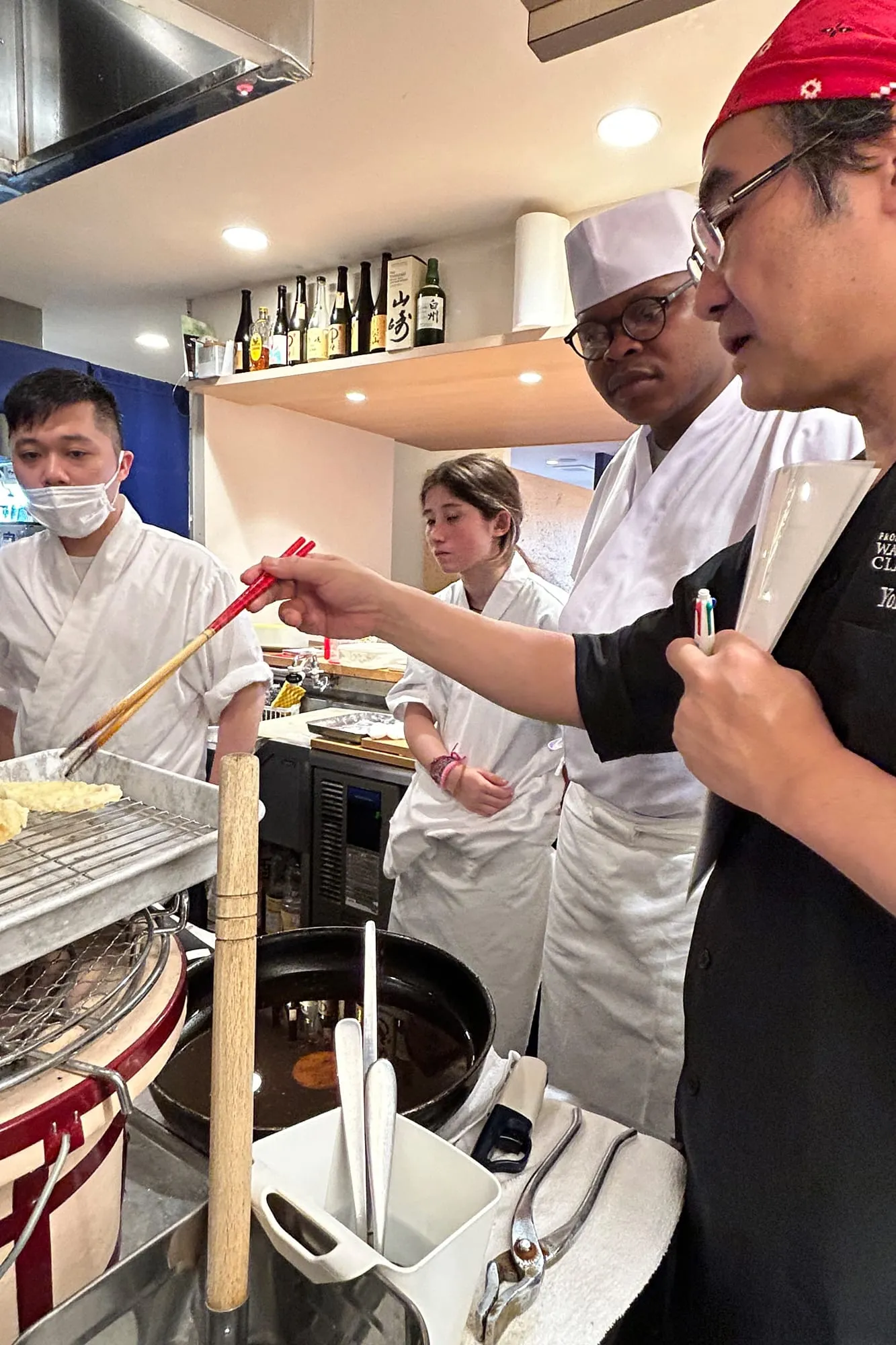
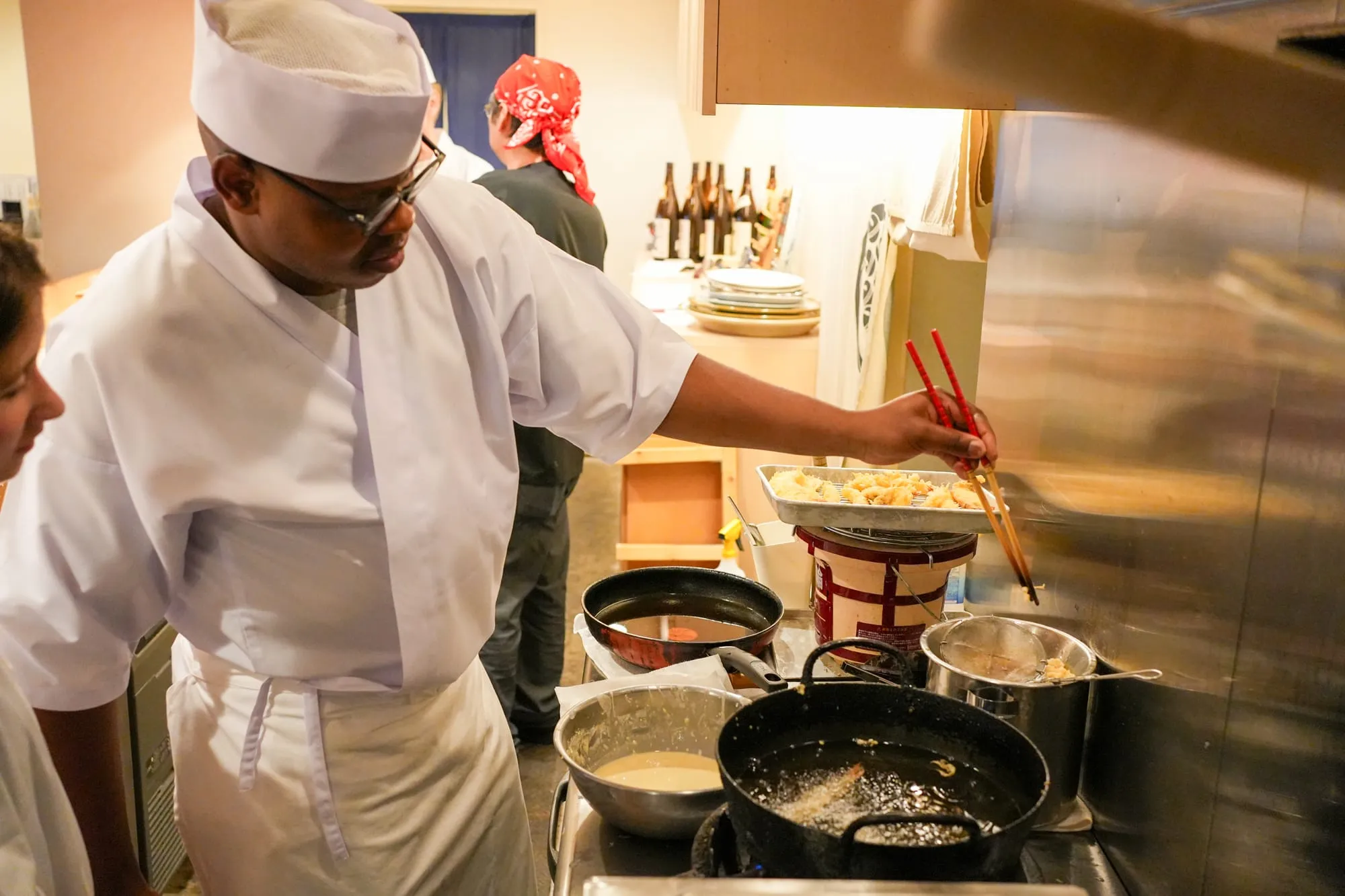
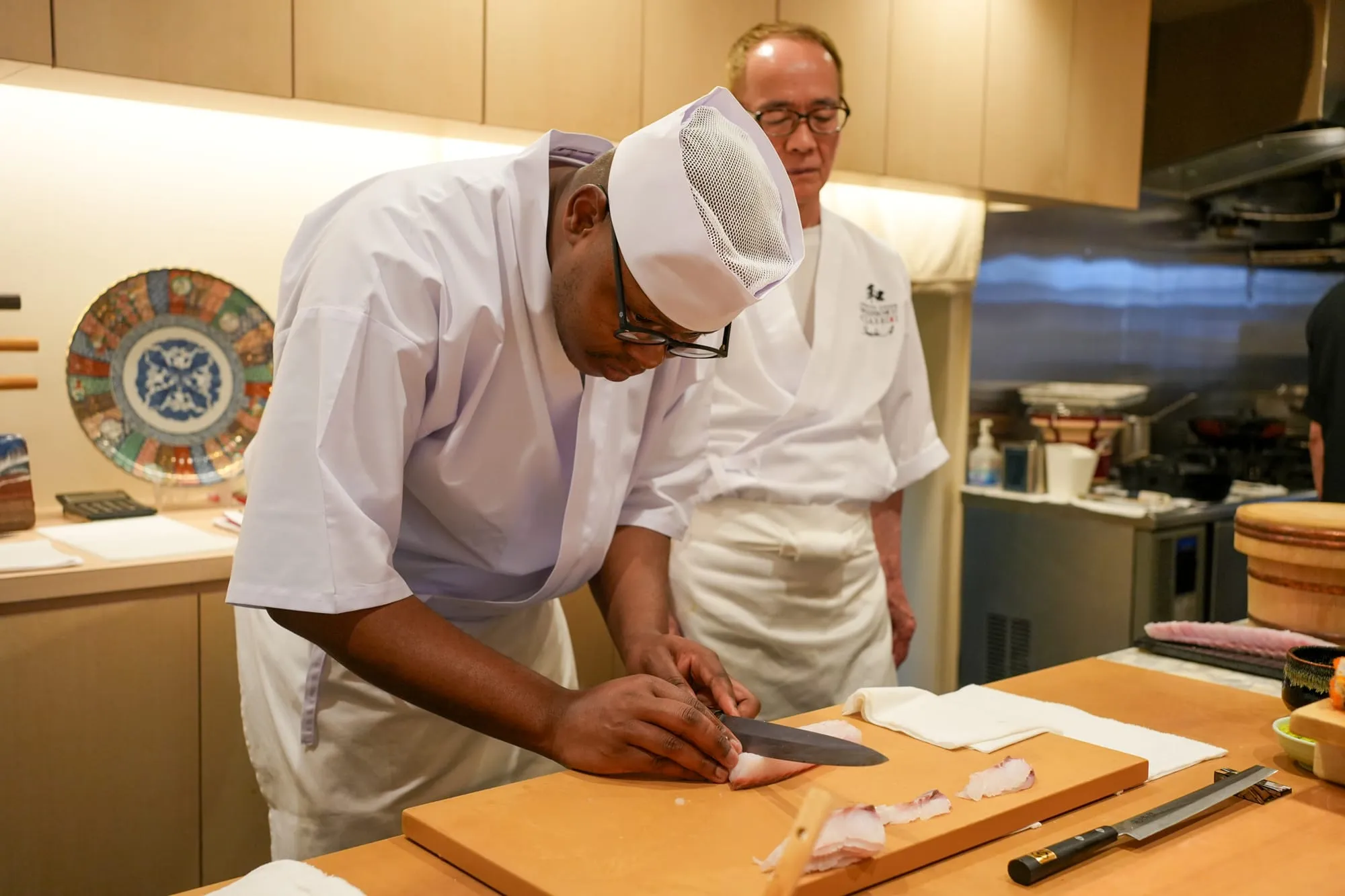
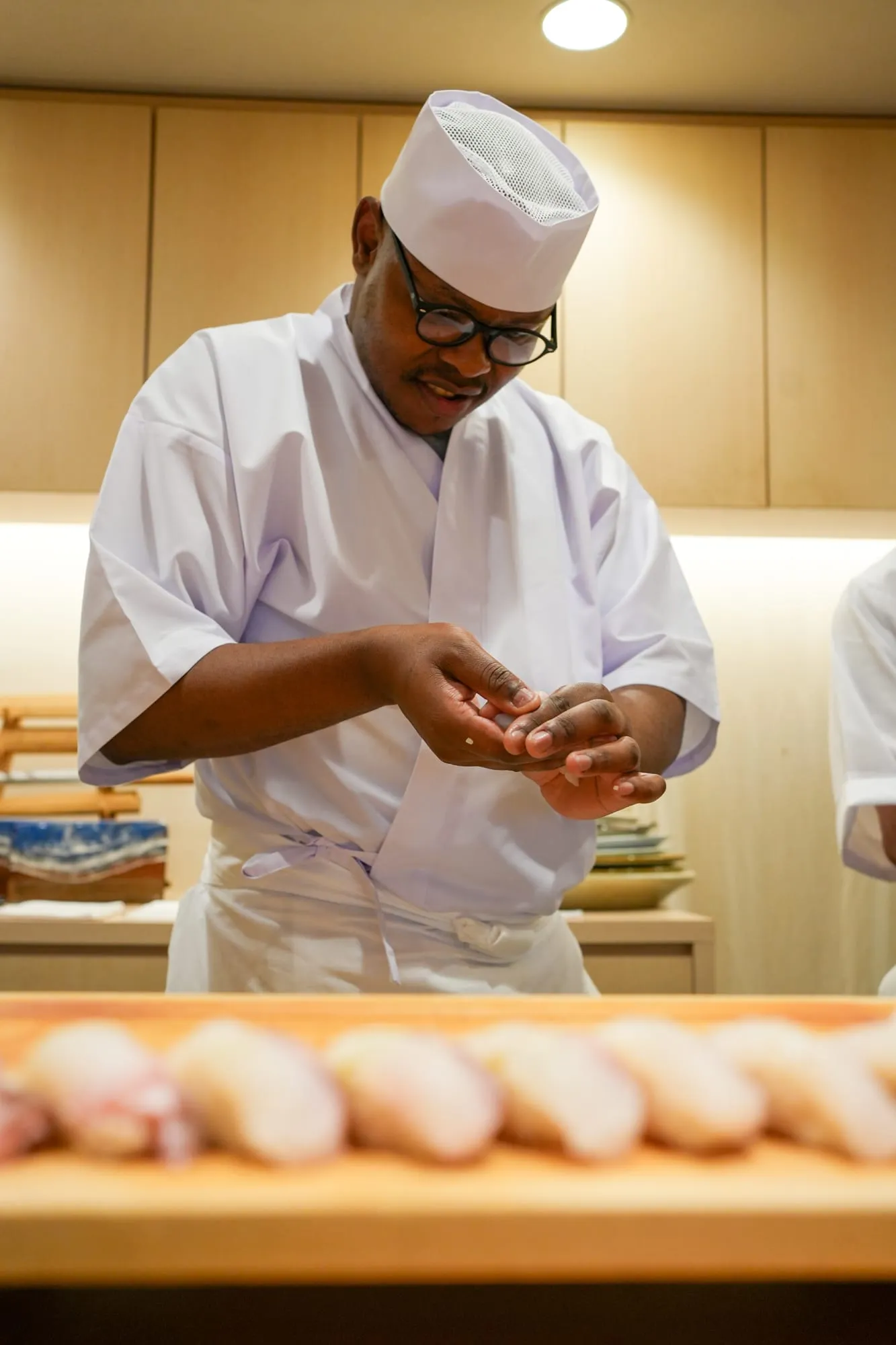
The tempura batter in Japan is traditionally light and pale, while in the U.S., it’s common to achieve a darker, golden-brown color. However, in Japan, this darker hue often indicates over-frying. We emphasized that a lighter, crispier texture is preferable, and he grasped this concept well. He further honed his skills by filleting various types of fish, including the challenging ribbonfish, and practiced slicing techniques for both nigiri and grilled dishes. His knife skills and rice handling have improved significantly. Additionally, he experimented with various toppings, comparing and contrasting them to enhance his understanding and technique.
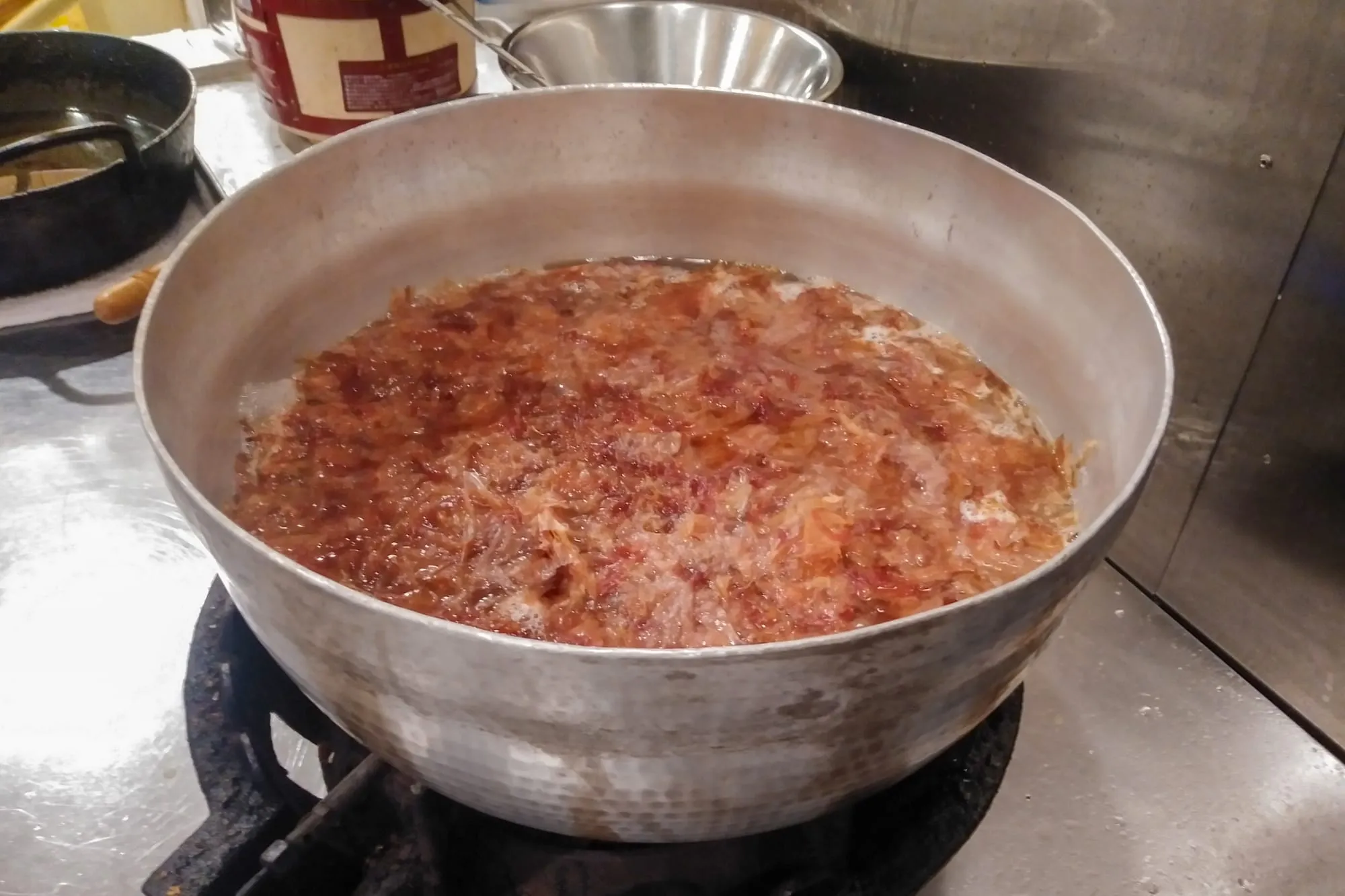
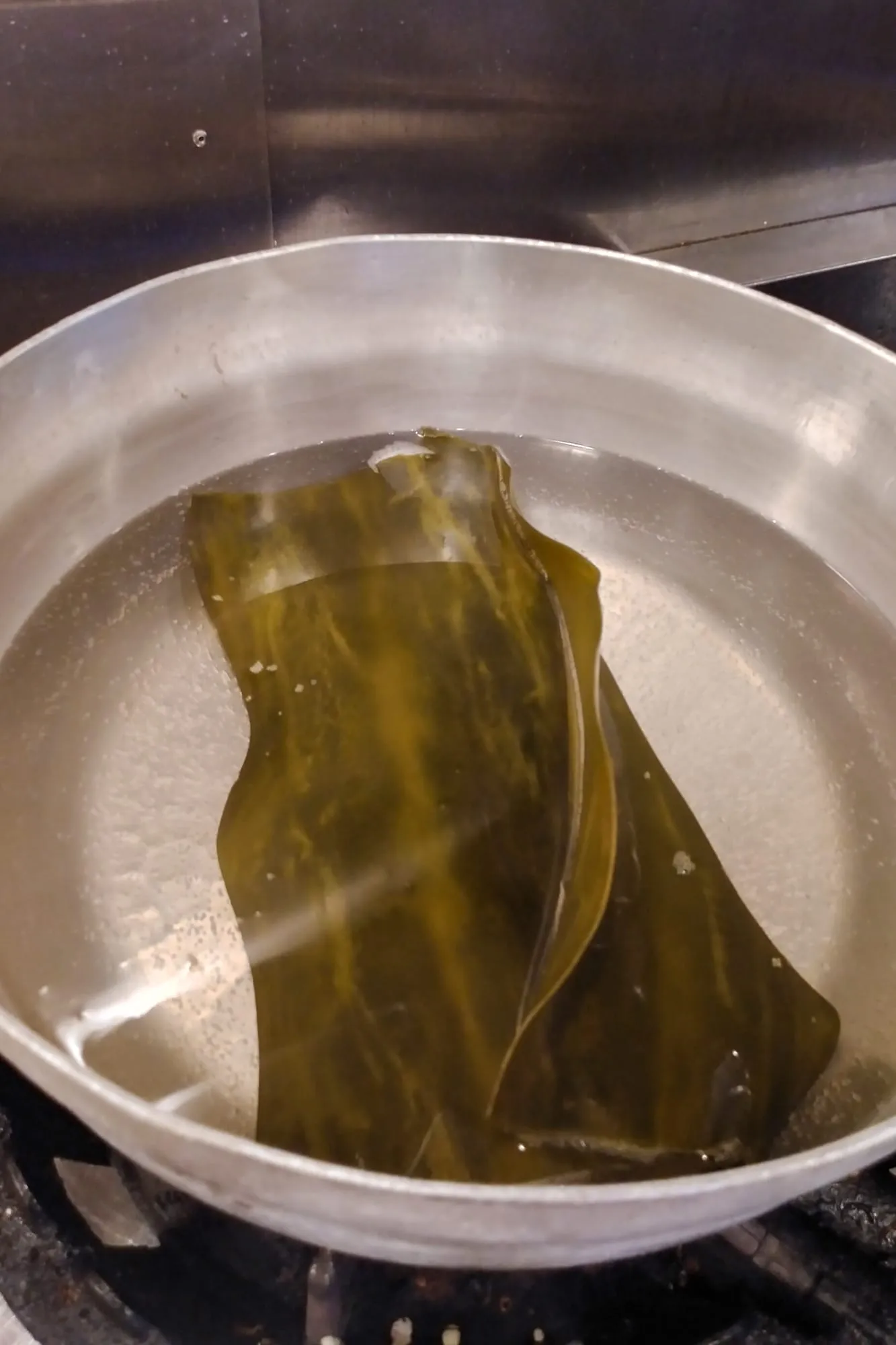
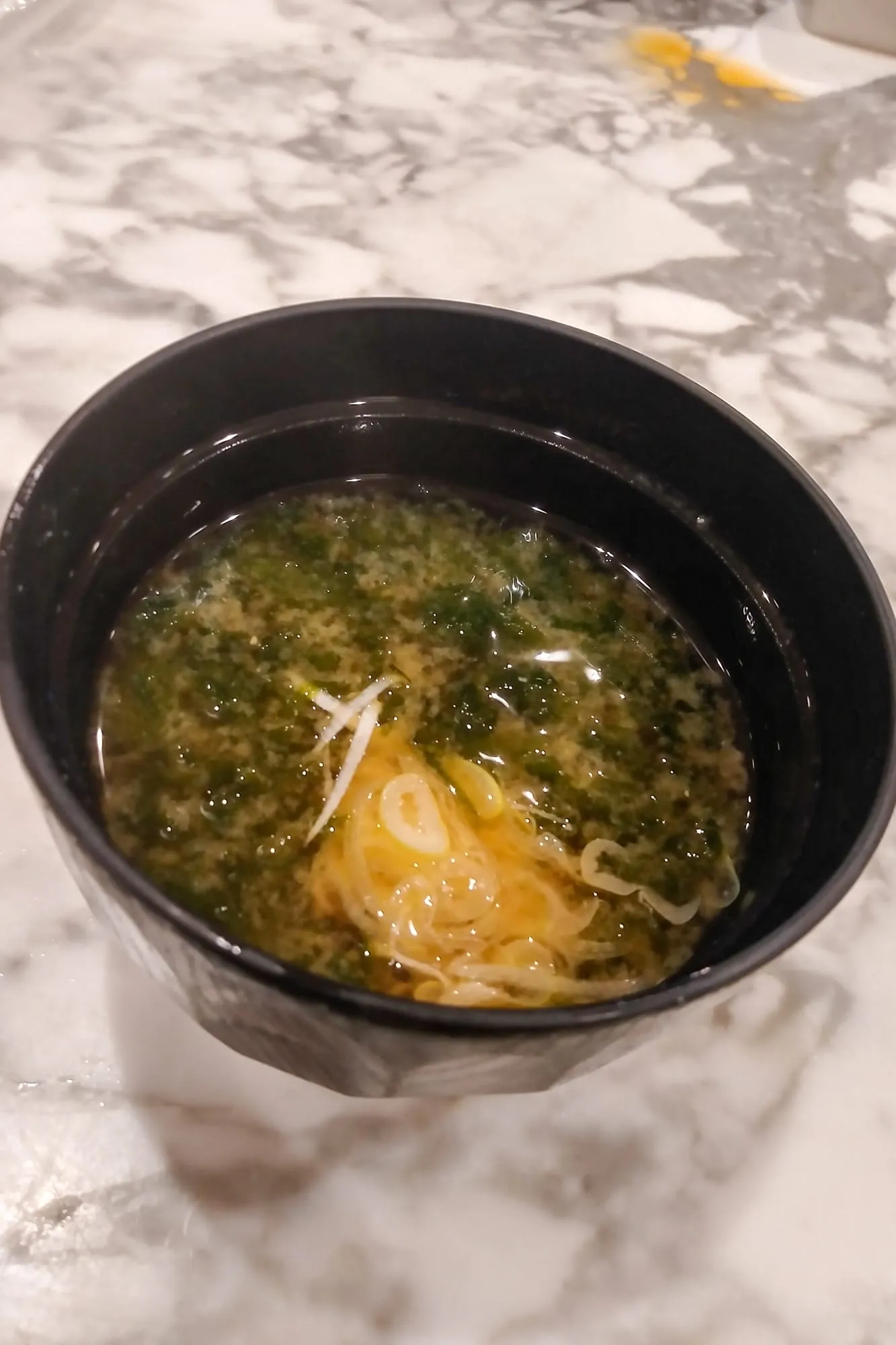
Today, we focused on dashi, an essential component of Japanese cuisine. Teddy learned that there are various types of dashi, each suited for different dishes. Using the dashi prepared earlier, we made miso soup. He was accustomed to using instant versions, so this was his first time experiencing the traditional method. He was delighted by the rich and authentic flavor.
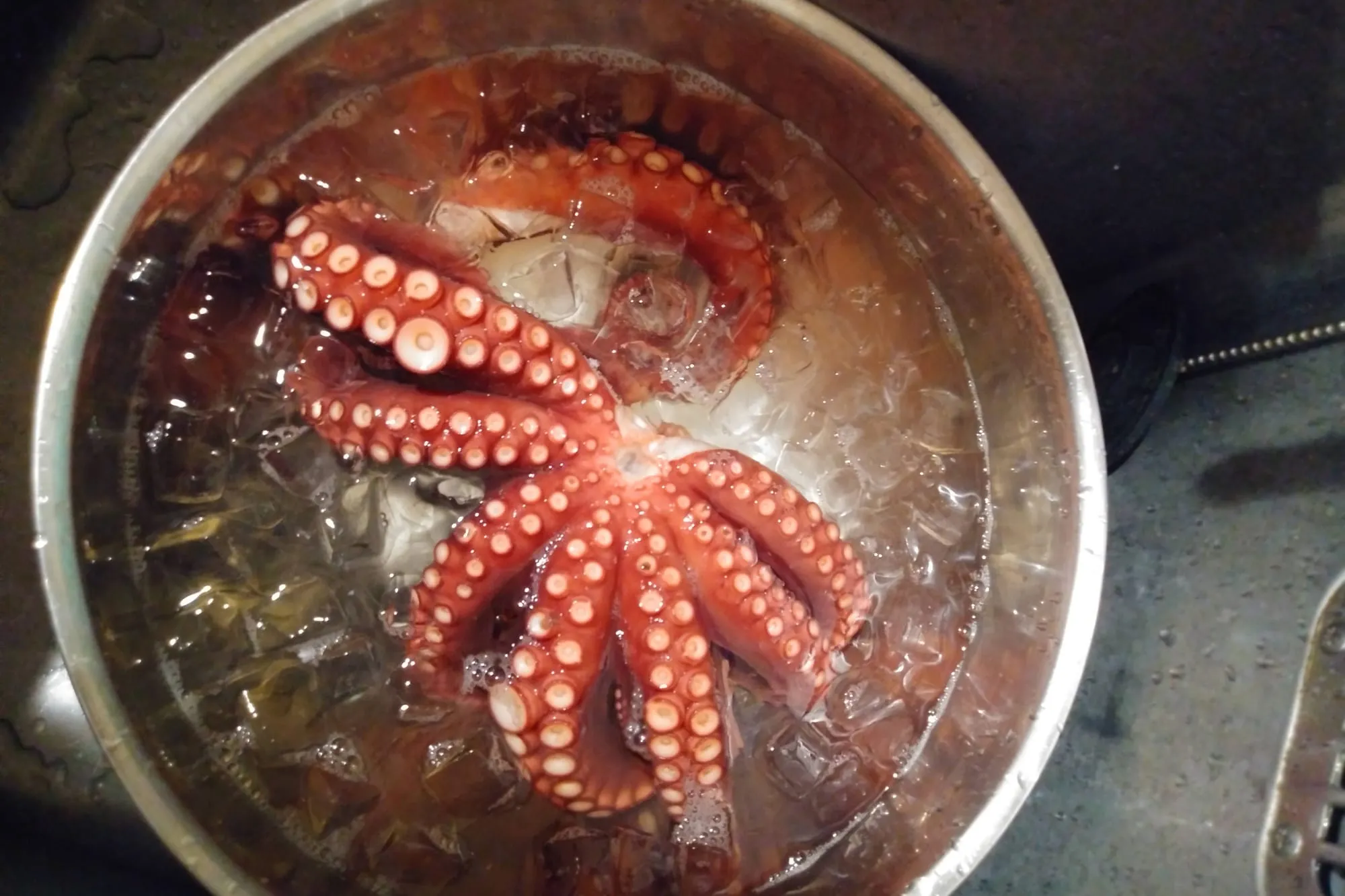
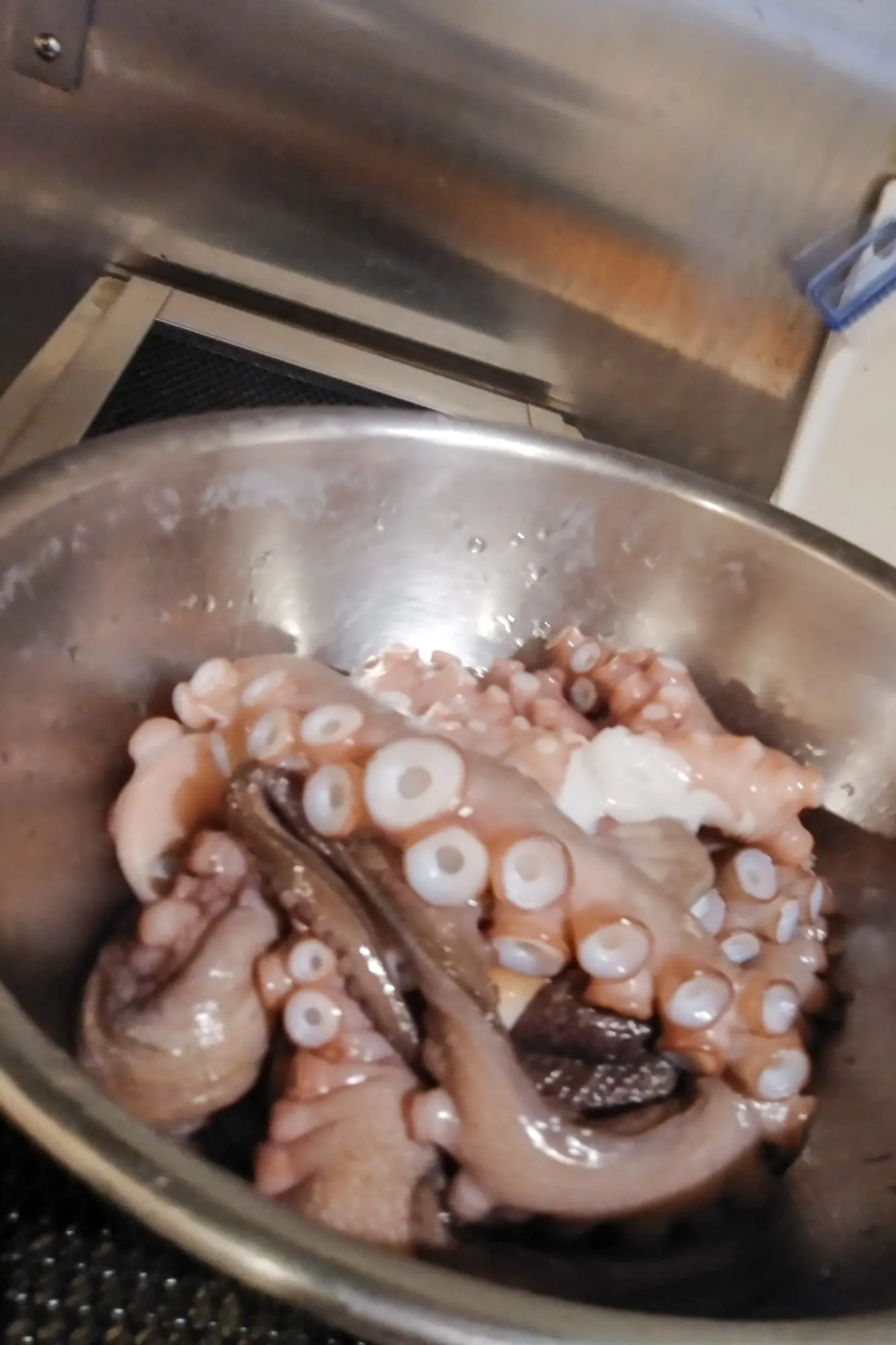
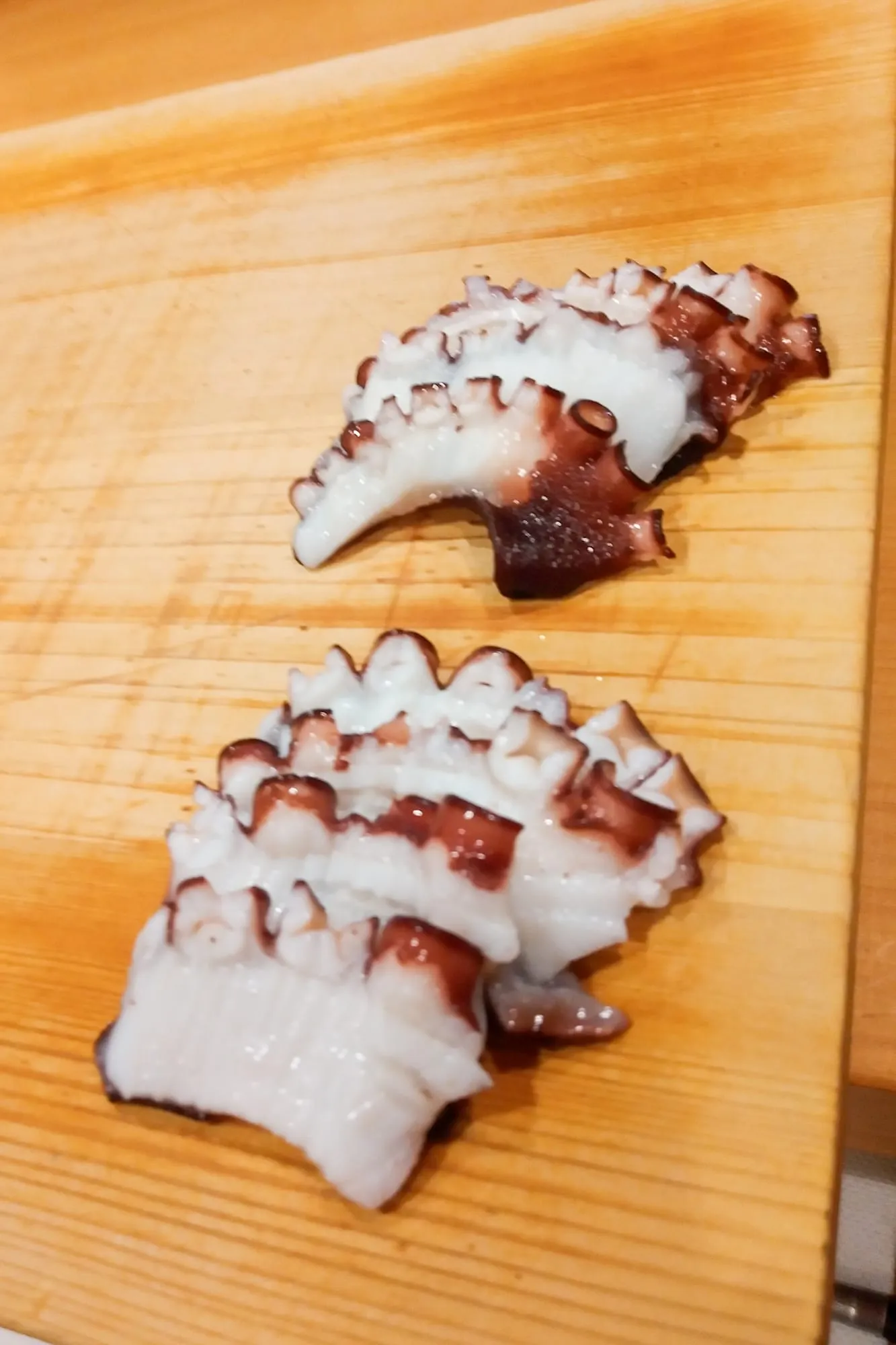
At his request, he learned how to prepare octopus from scratch. While he typically uses pre-boiled octopus, he wanted to understand the entire process. He was guided through the steps of cleaning, tenderizing, and boiling the octopus, gaining hands-on experience in the traditional preparation methods.
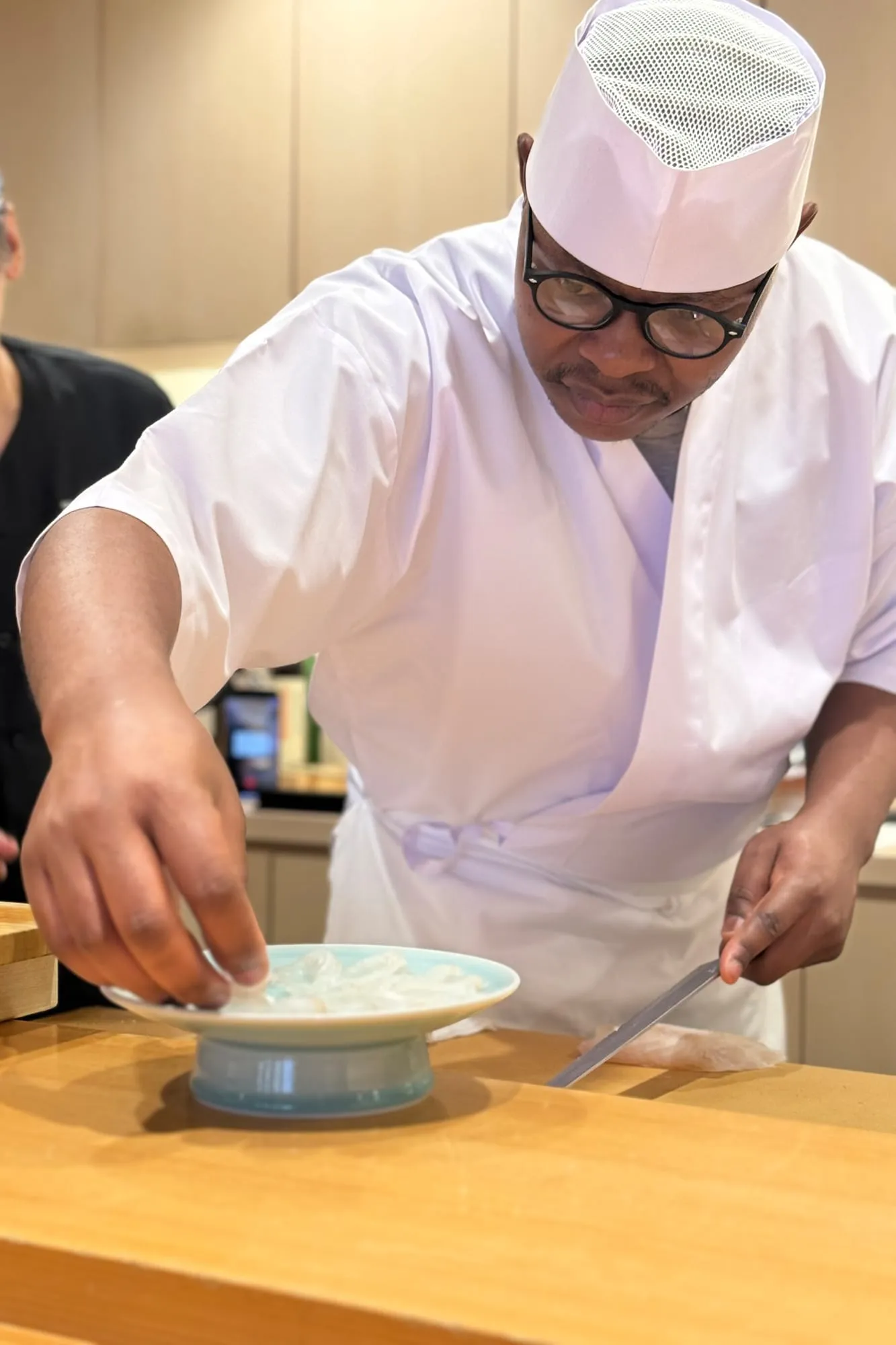
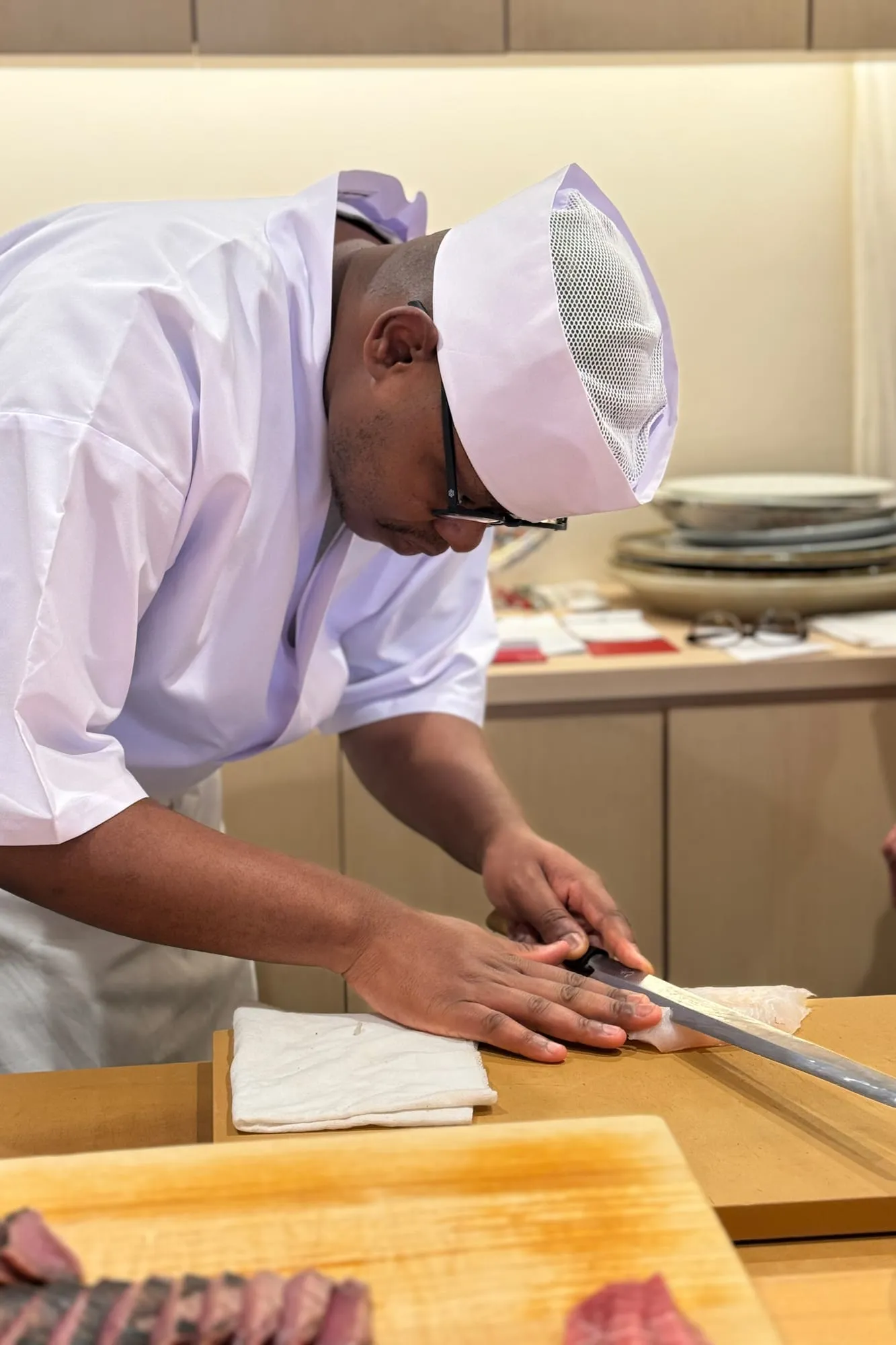
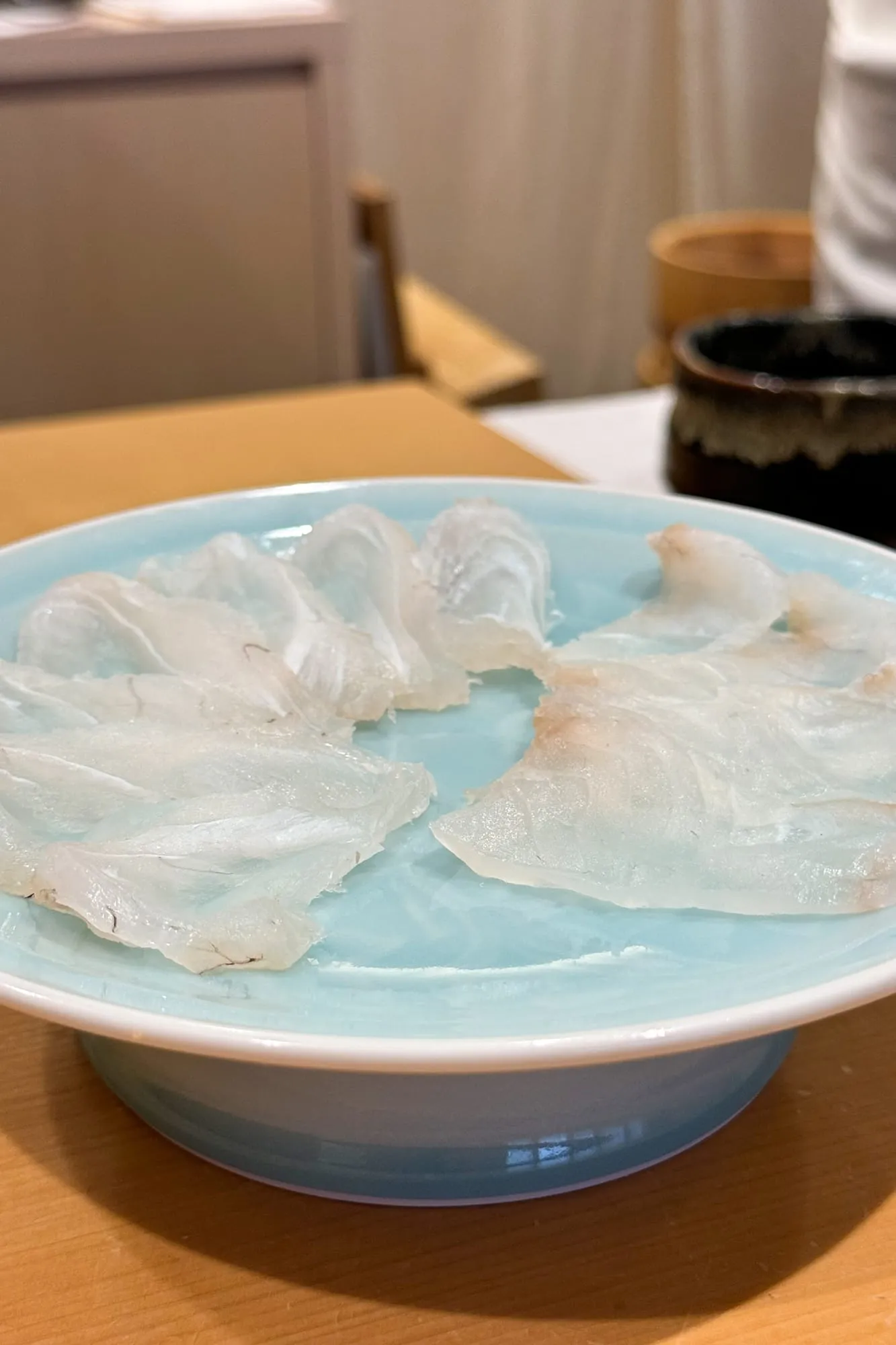
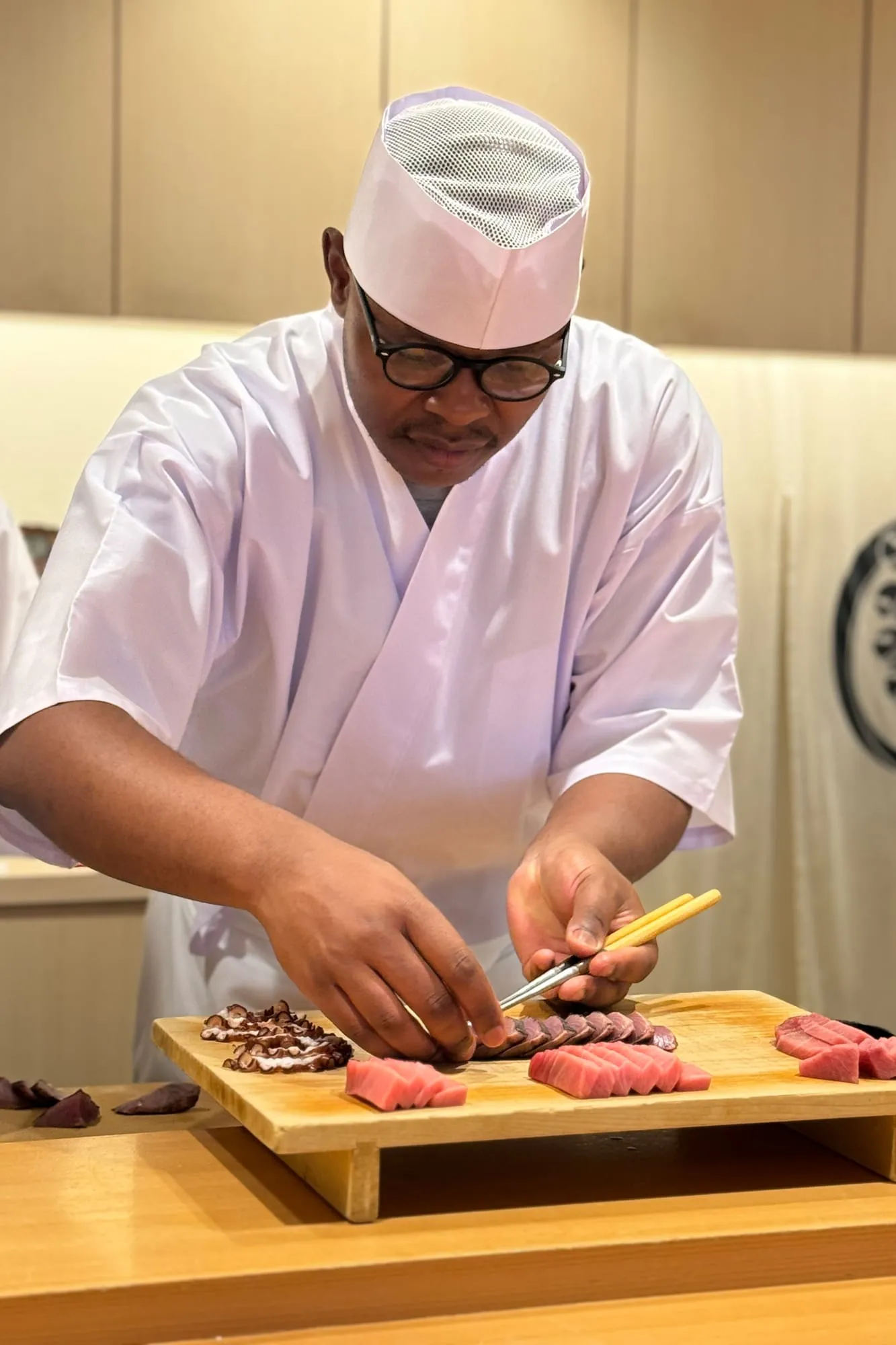
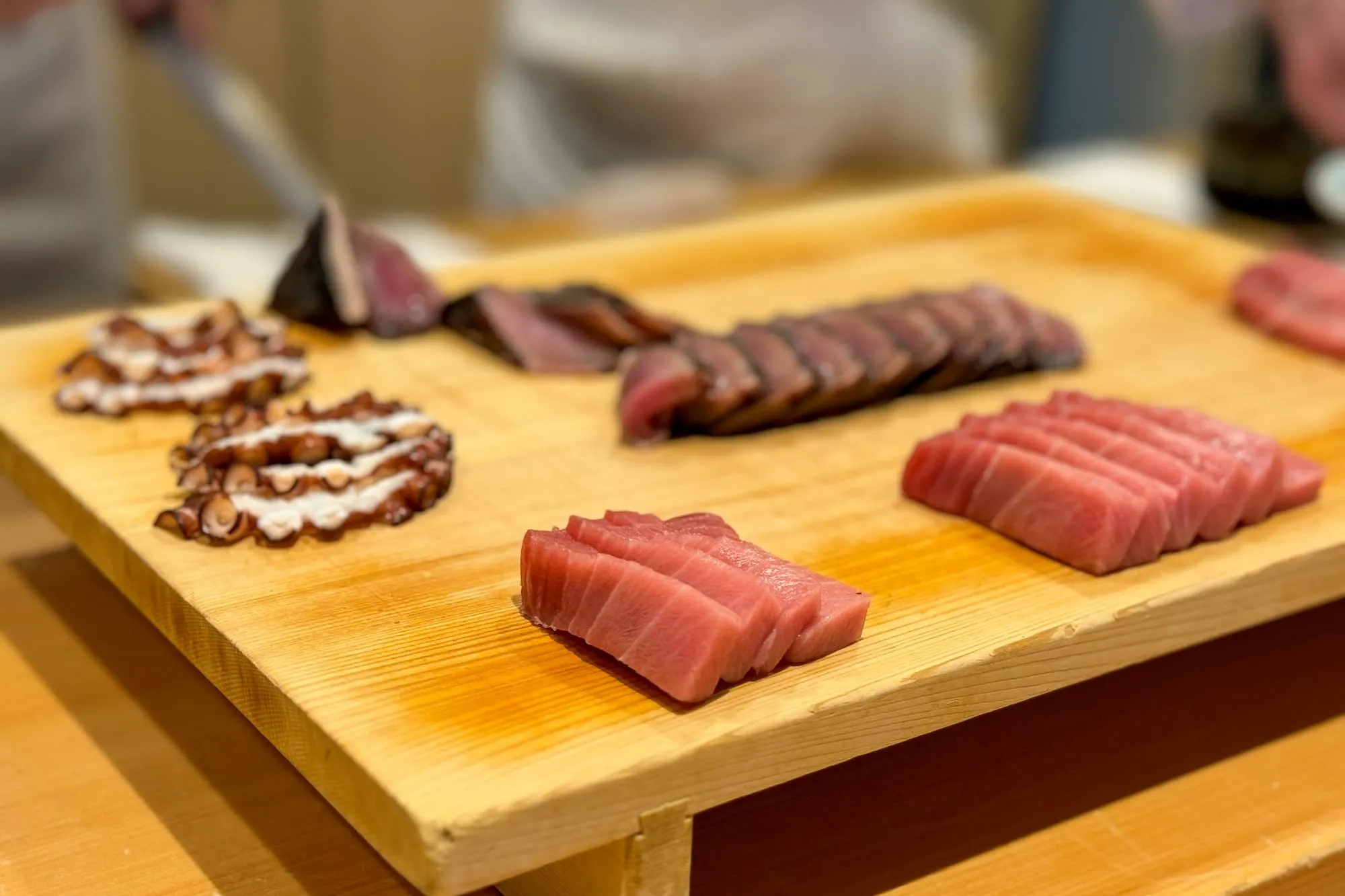
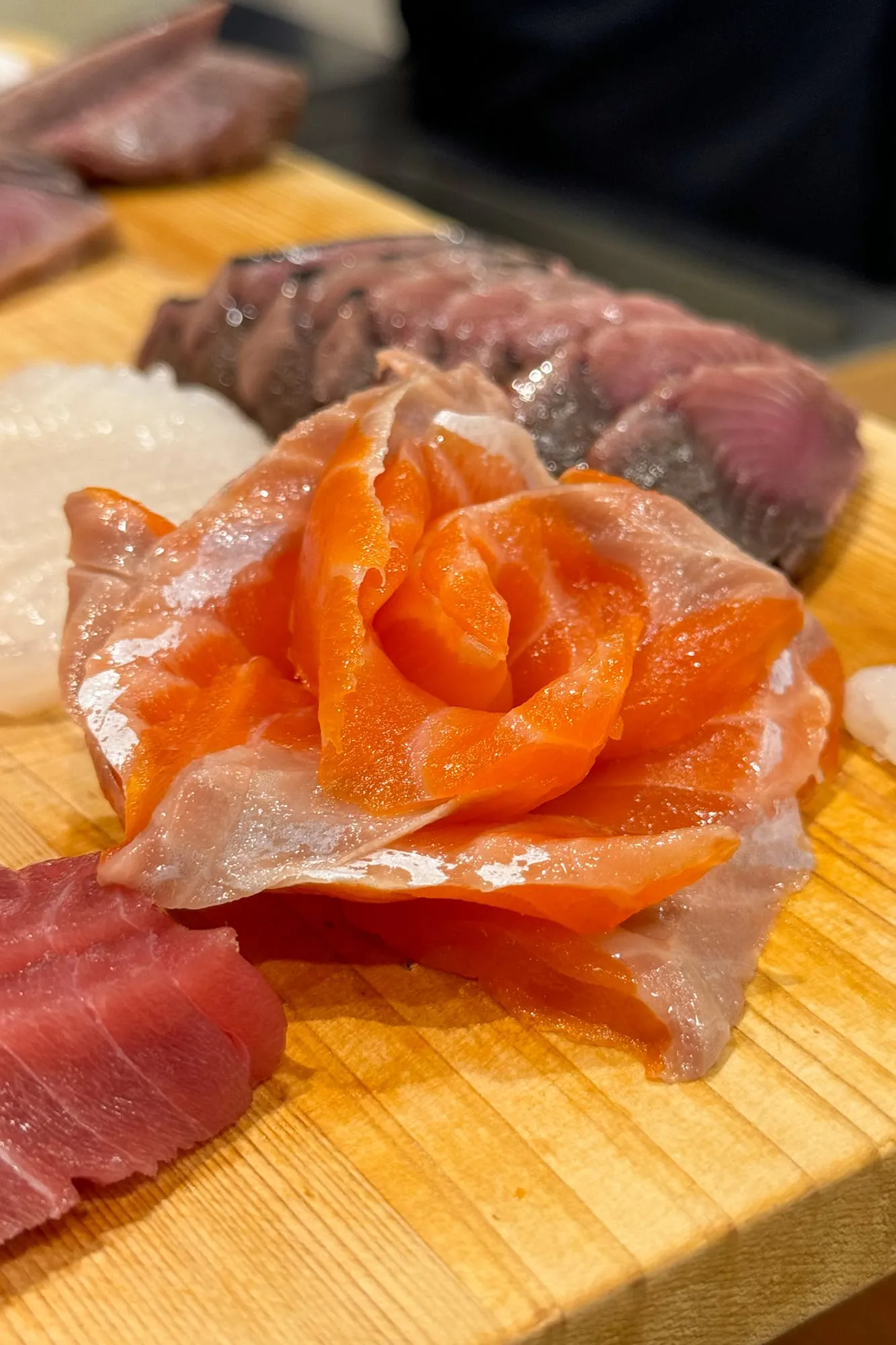
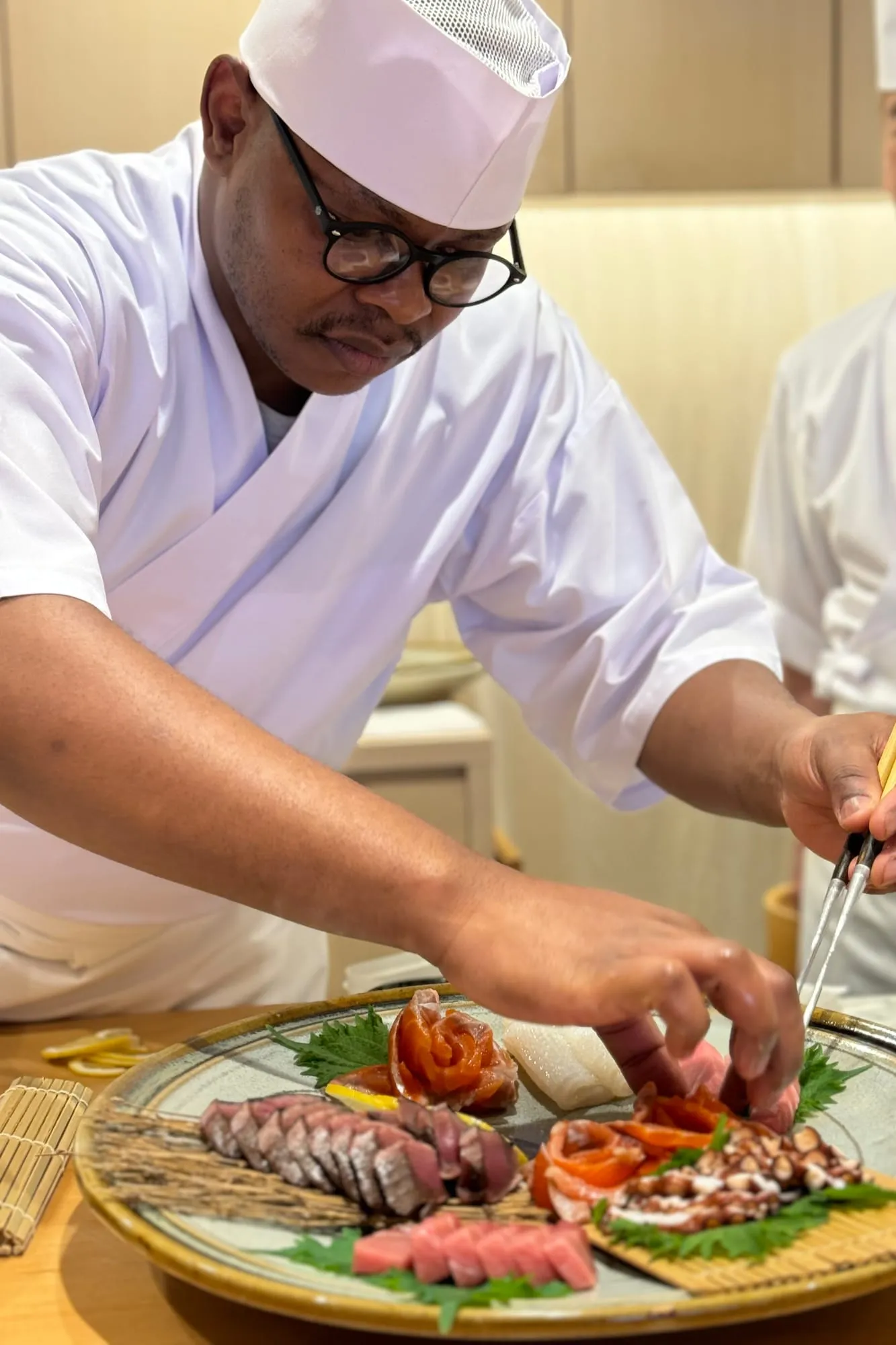
He learned that there are fundamental principles to plating sashimi. To make it visually appealing, the process begins with selecting the right plate.
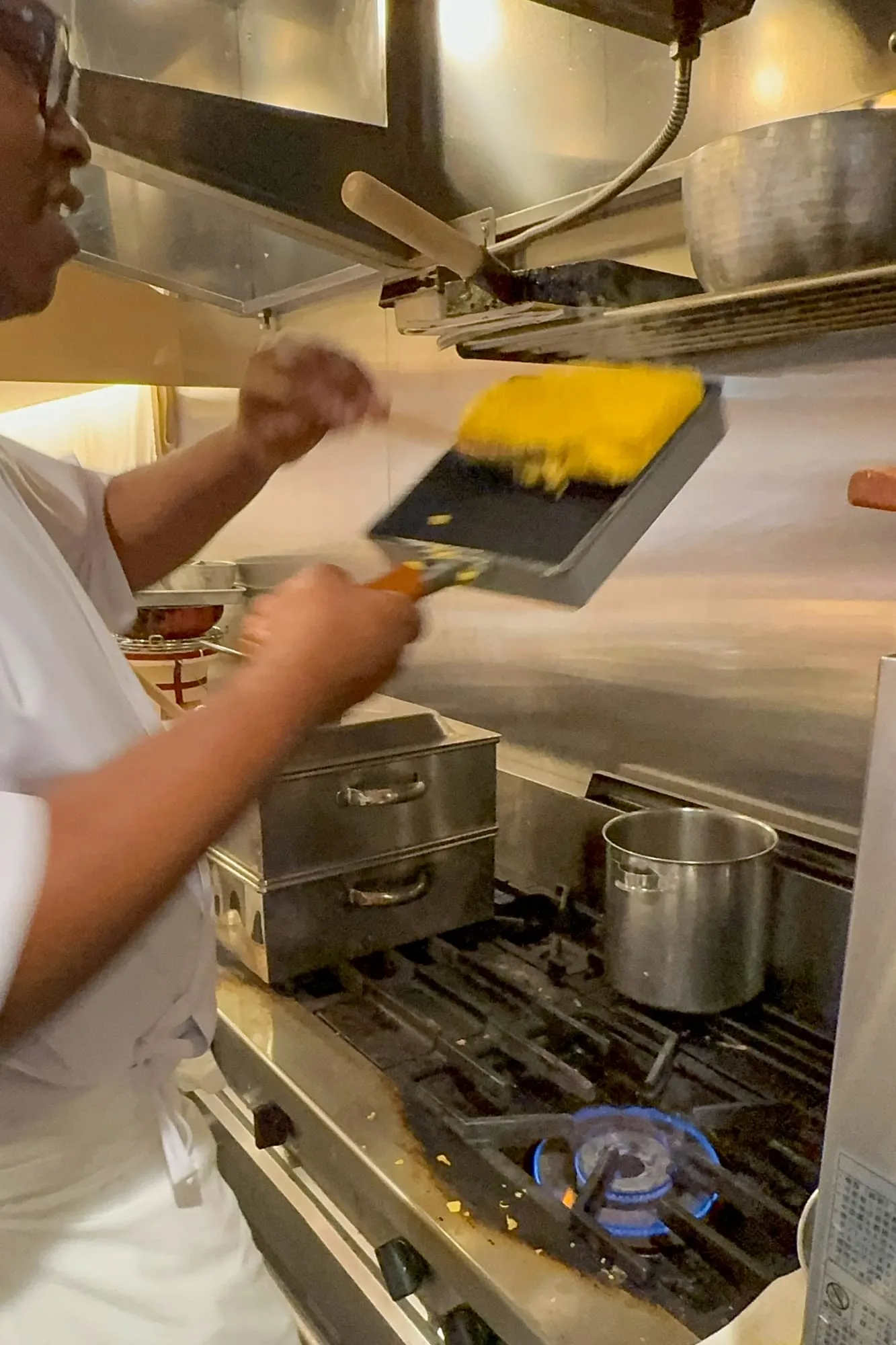
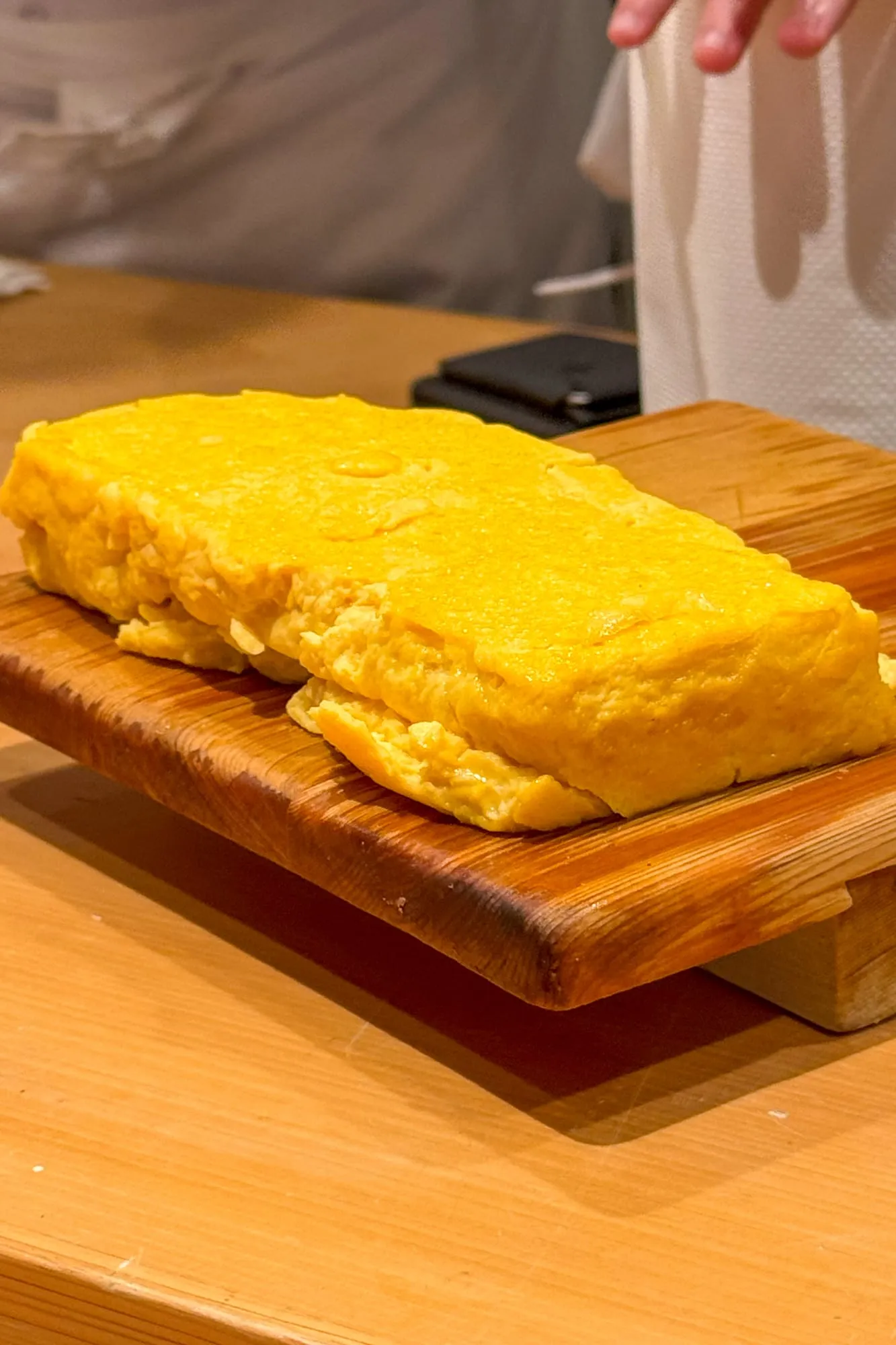
He embarked on the challenge of making tamagoyaki, a dish that many find tricky. The technique differs significantly from other cooking methods, making it challenging to master. However, through detailed instruction and repeated practice, he began to grasp the concept and successfully rolled his first tamagoyaki. With continued practice, he is on his way to perfecting this skill.
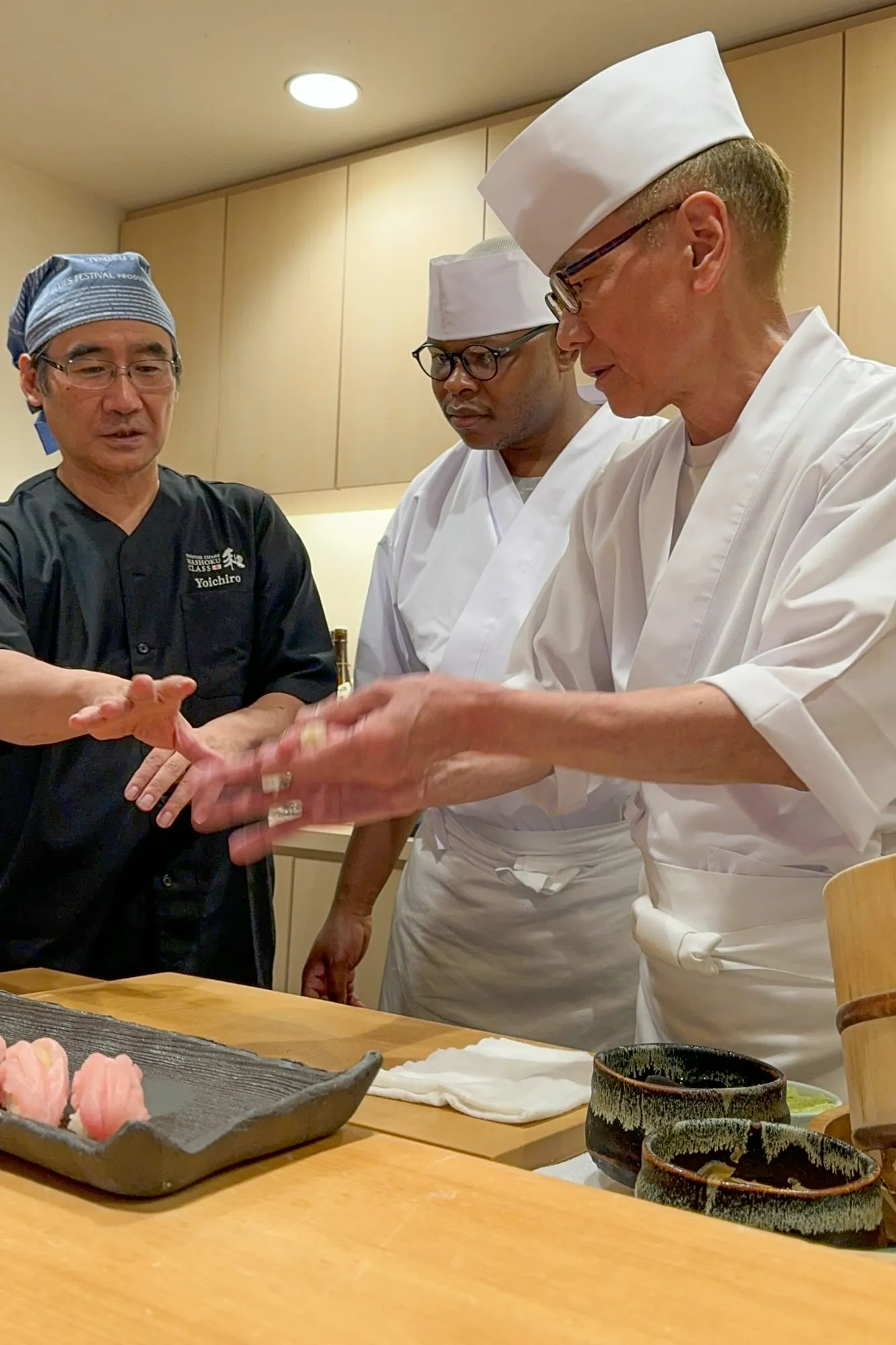
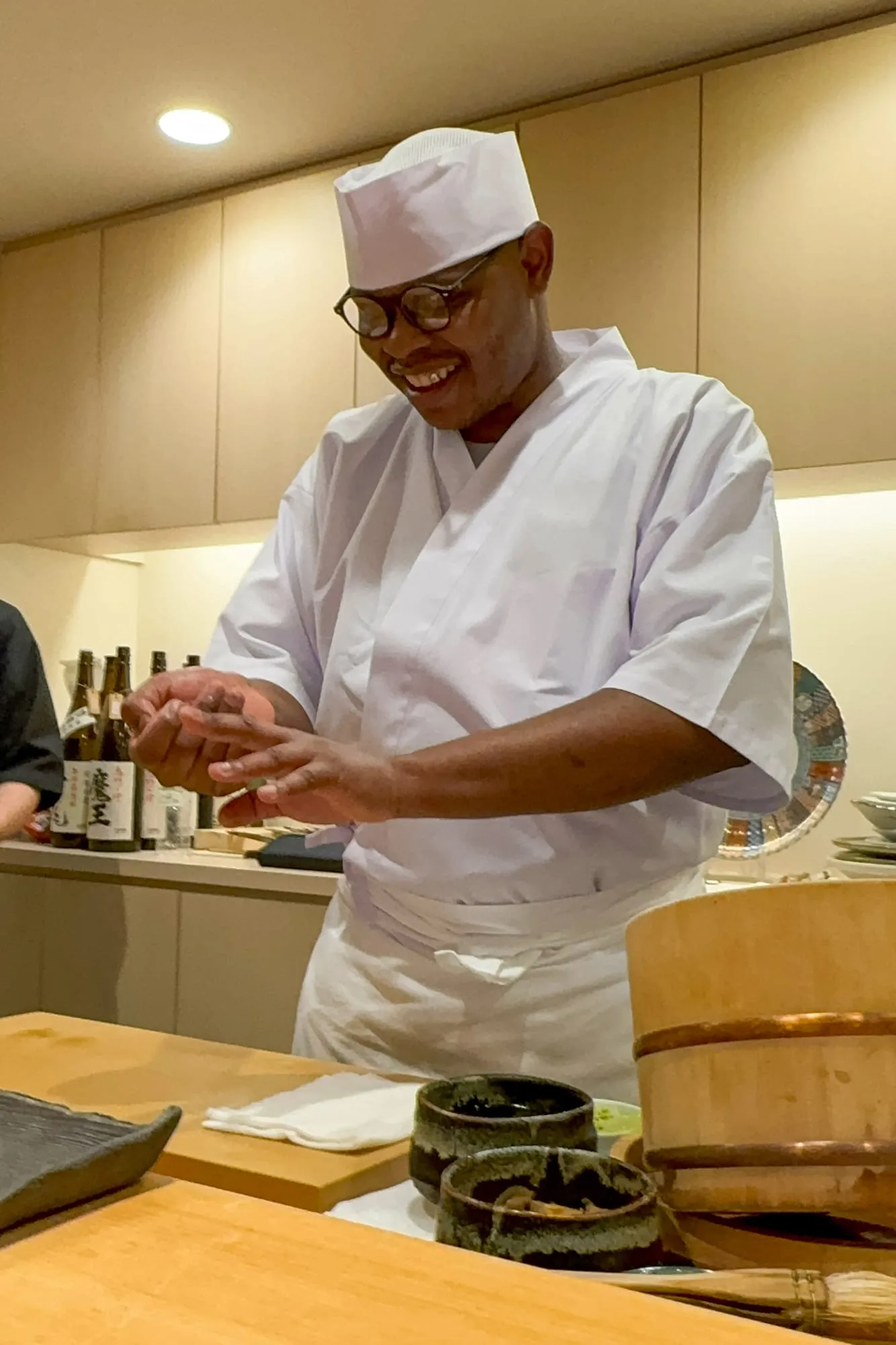
His nigiri technique has significantly improved. With advanced guidance, he was able to refine his approach, resulting in even more precise and aesthetically pleasing sushi.
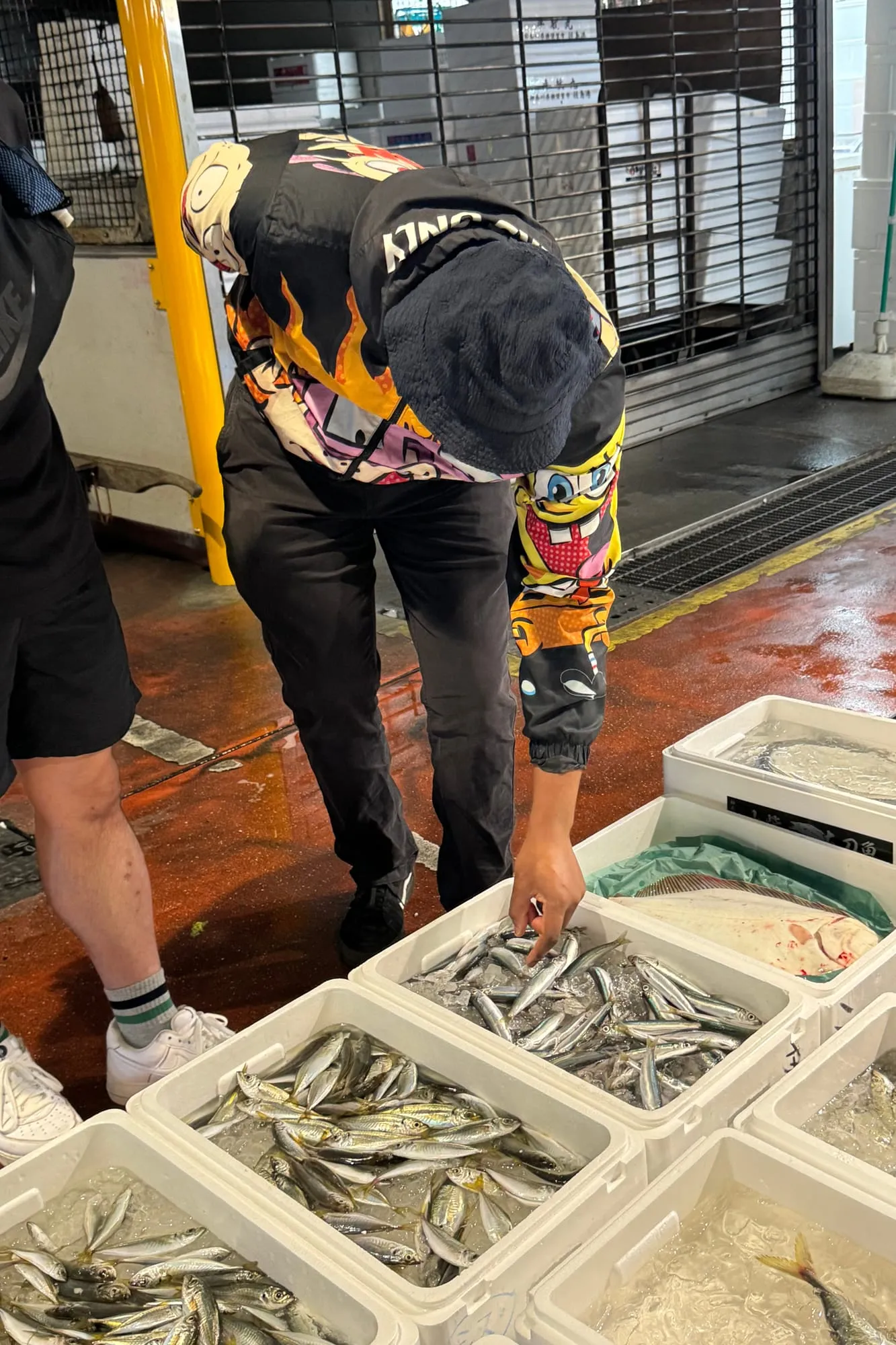
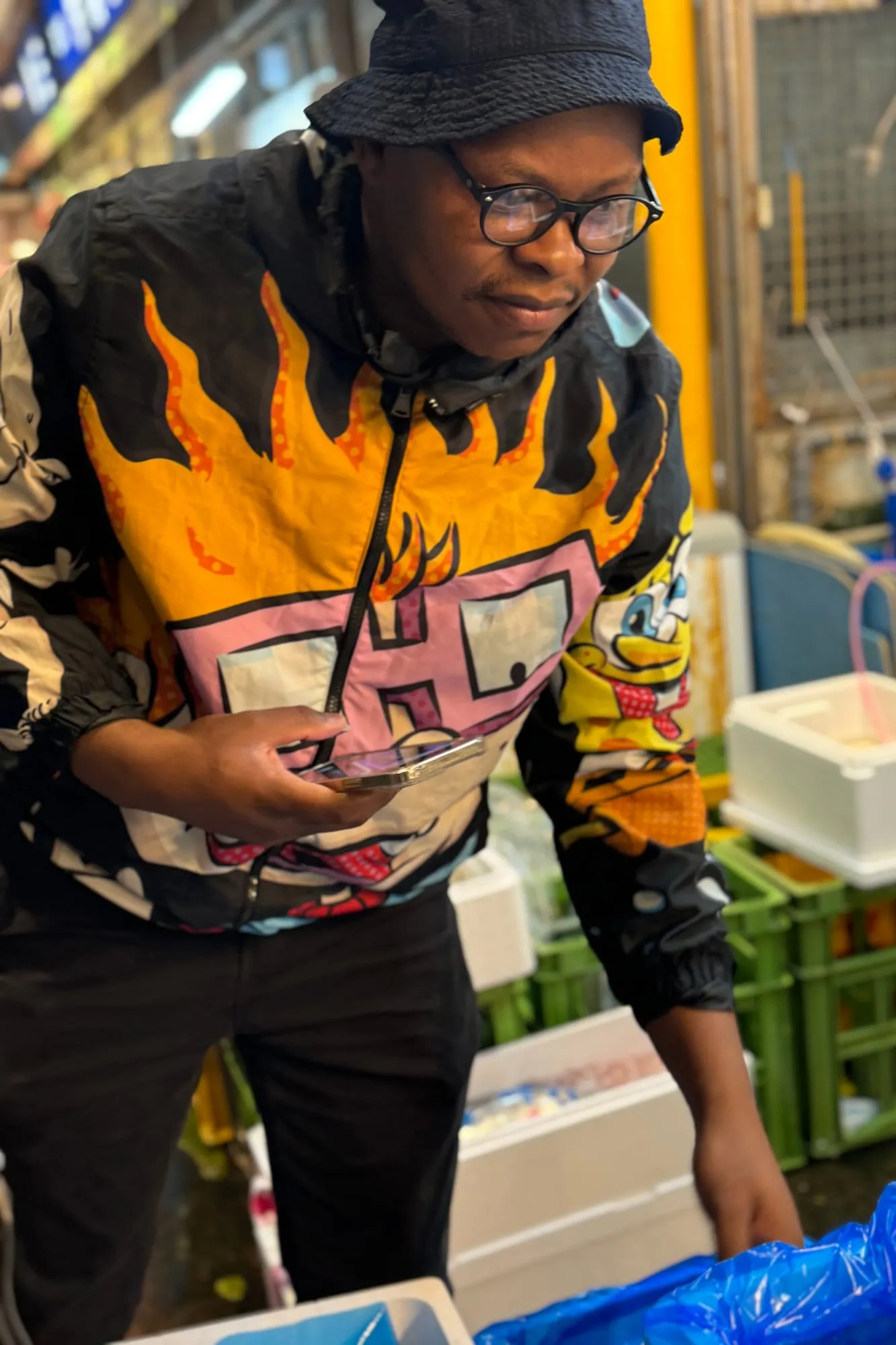

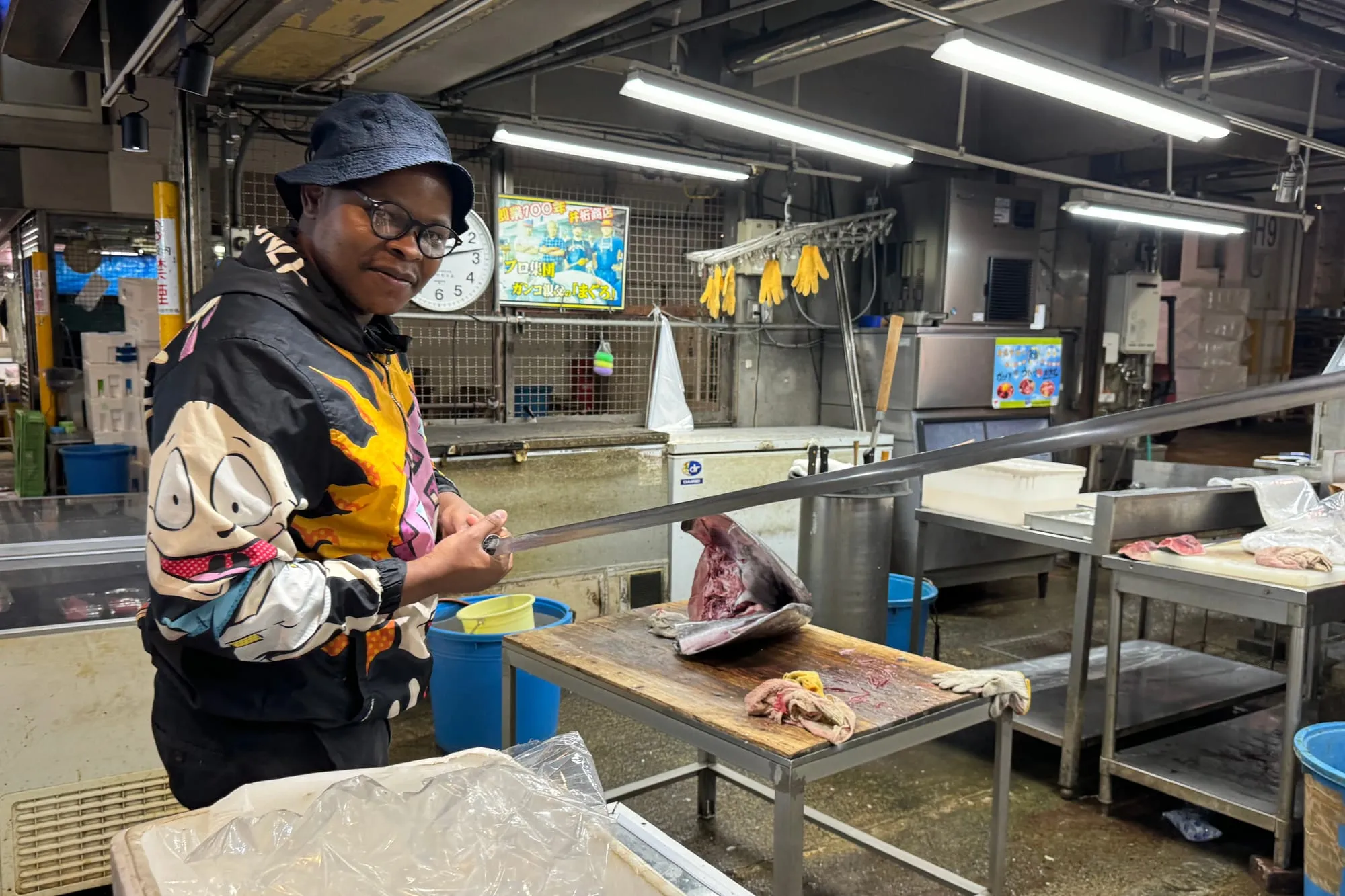
Today, we visited a Japanese fish market. He was fascinated, as he had never seen anything like it in his home country or in the U.S. He eagerly observed various fish species, asking questions and expressing genuine interest in the diverse marine life on display.
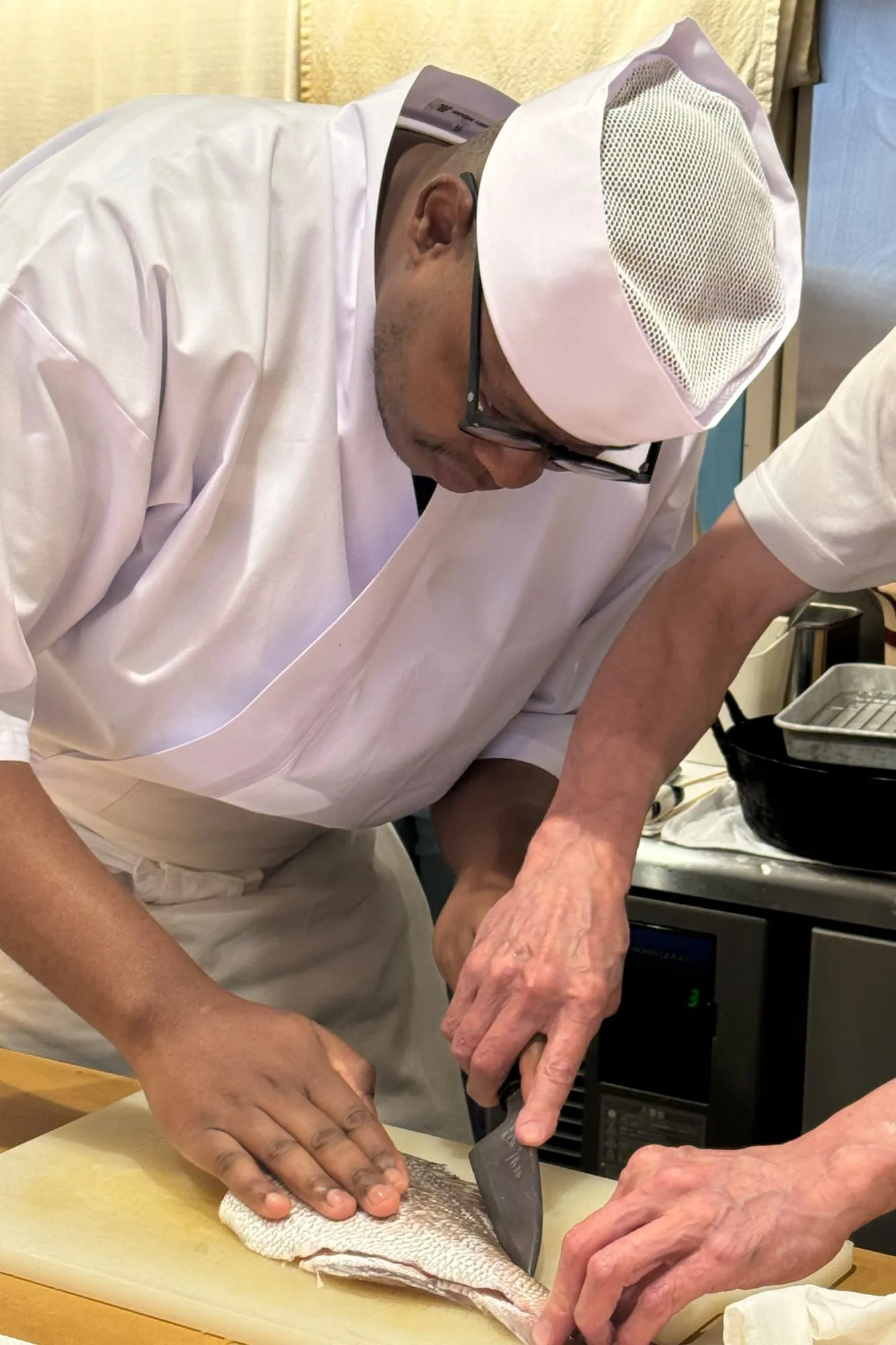
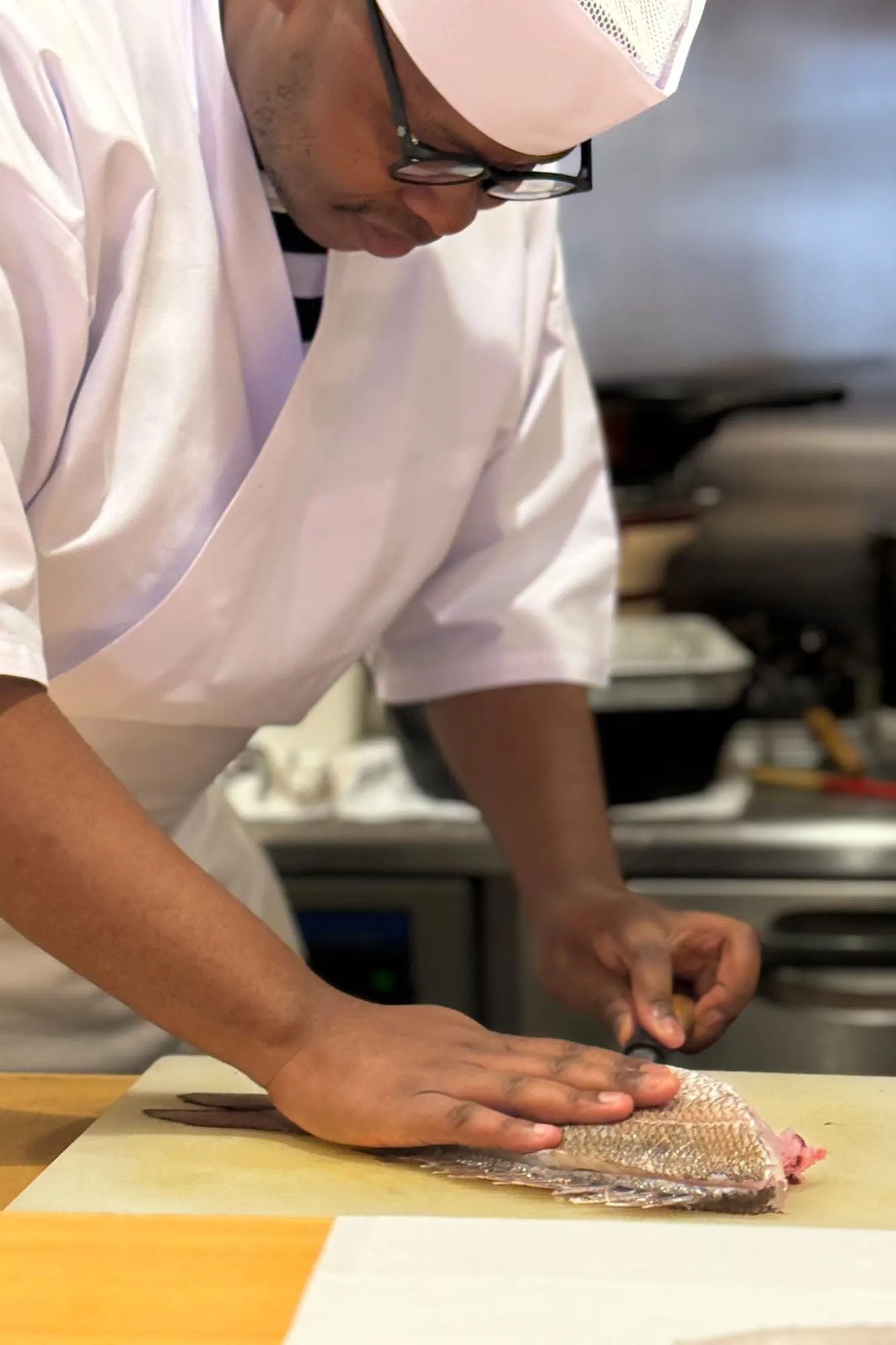
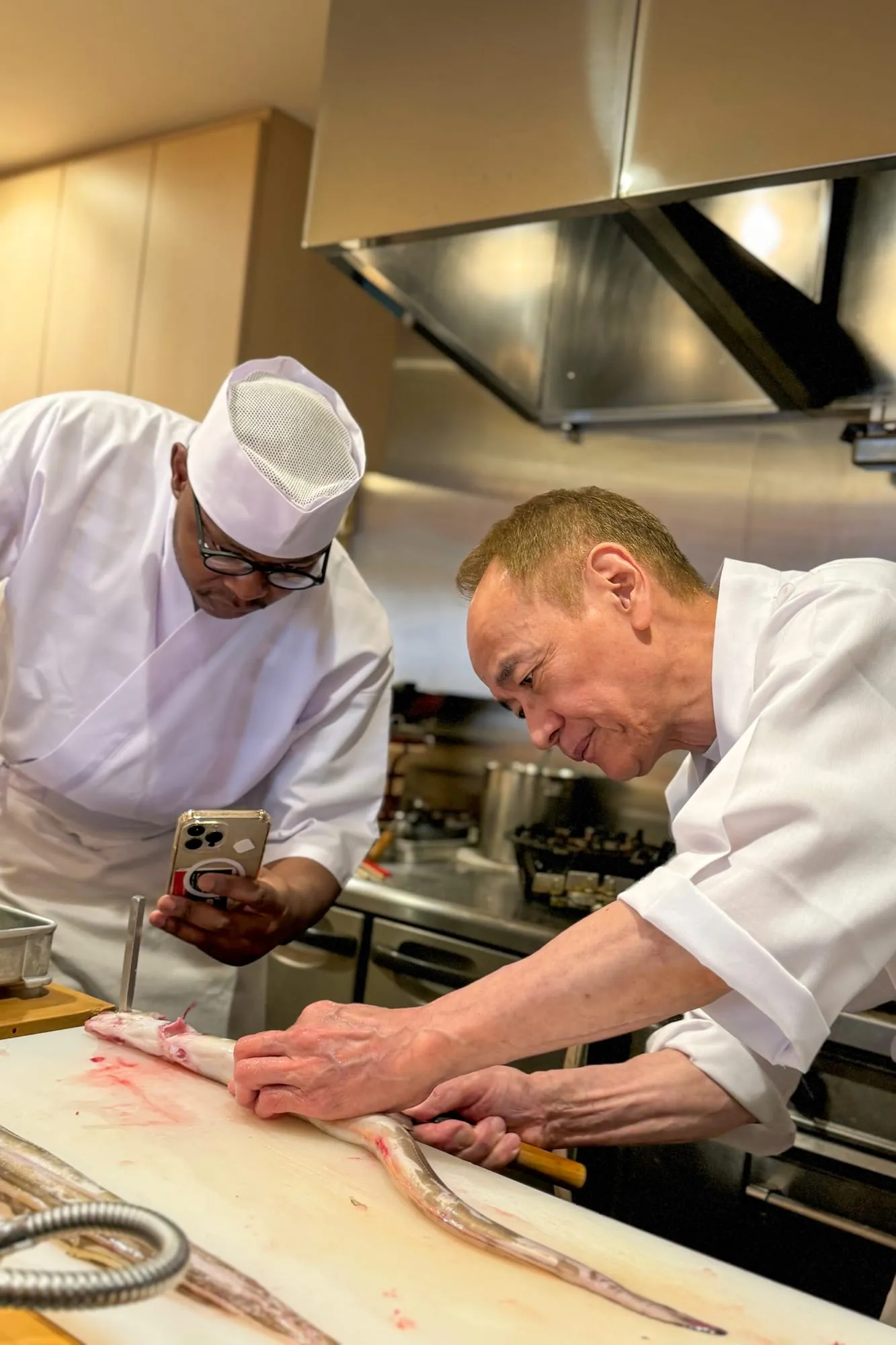
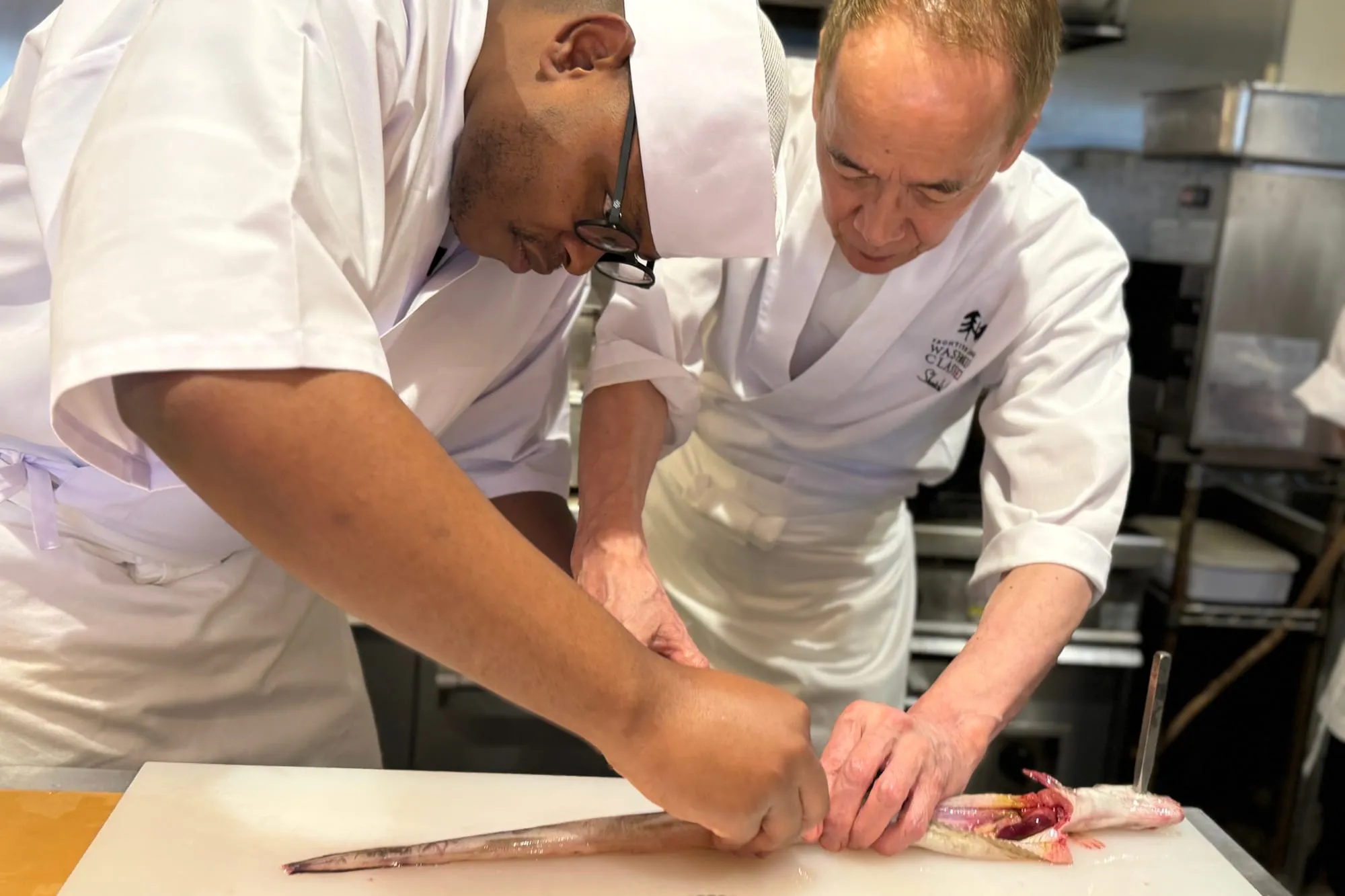
After returning to the restaurant, he practiced filleting tai (sea bream) and aji (horse mackerel). He also learned how to prepare anago (saltwater eel). Initially, he was only scheduled to observe the preparation of anago, but upon expressing a desire to try it himself, he received guidance at key points and successfully filleted about 10 eels. By the end, he was able to handle the process with increasing proficiency.
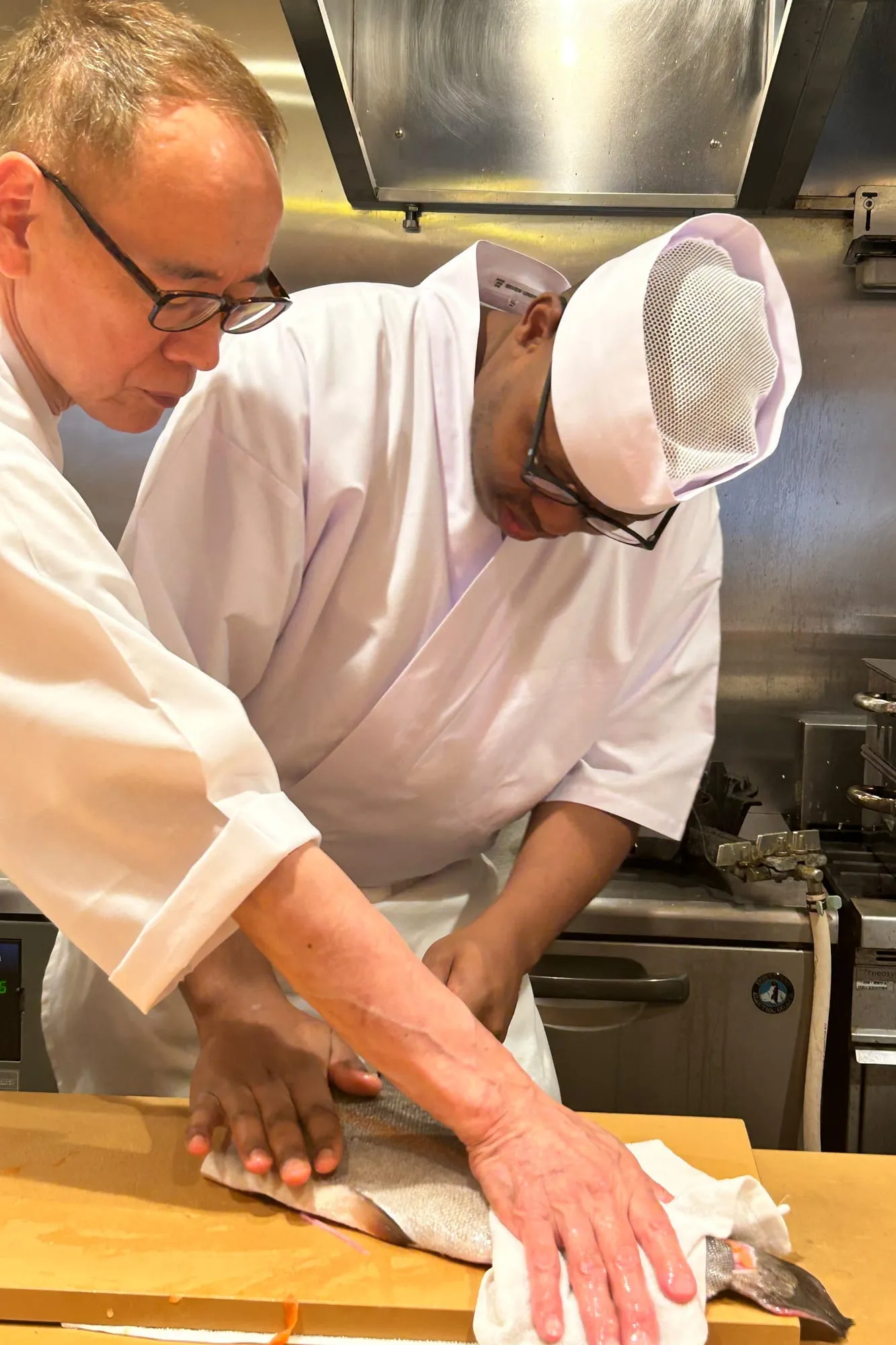
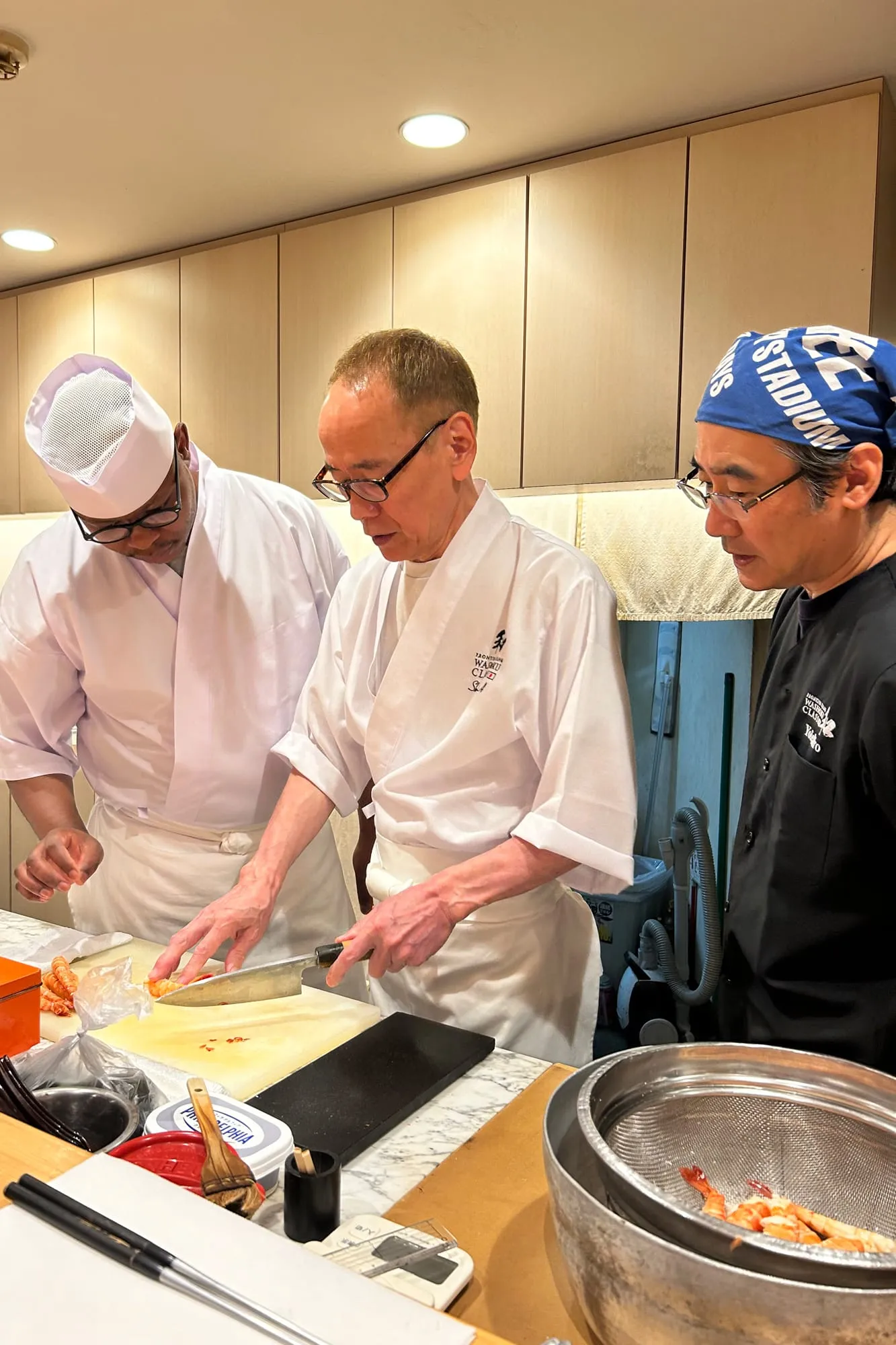
On the final day, he practiced filleting masu (trout) and preparing shrimp.
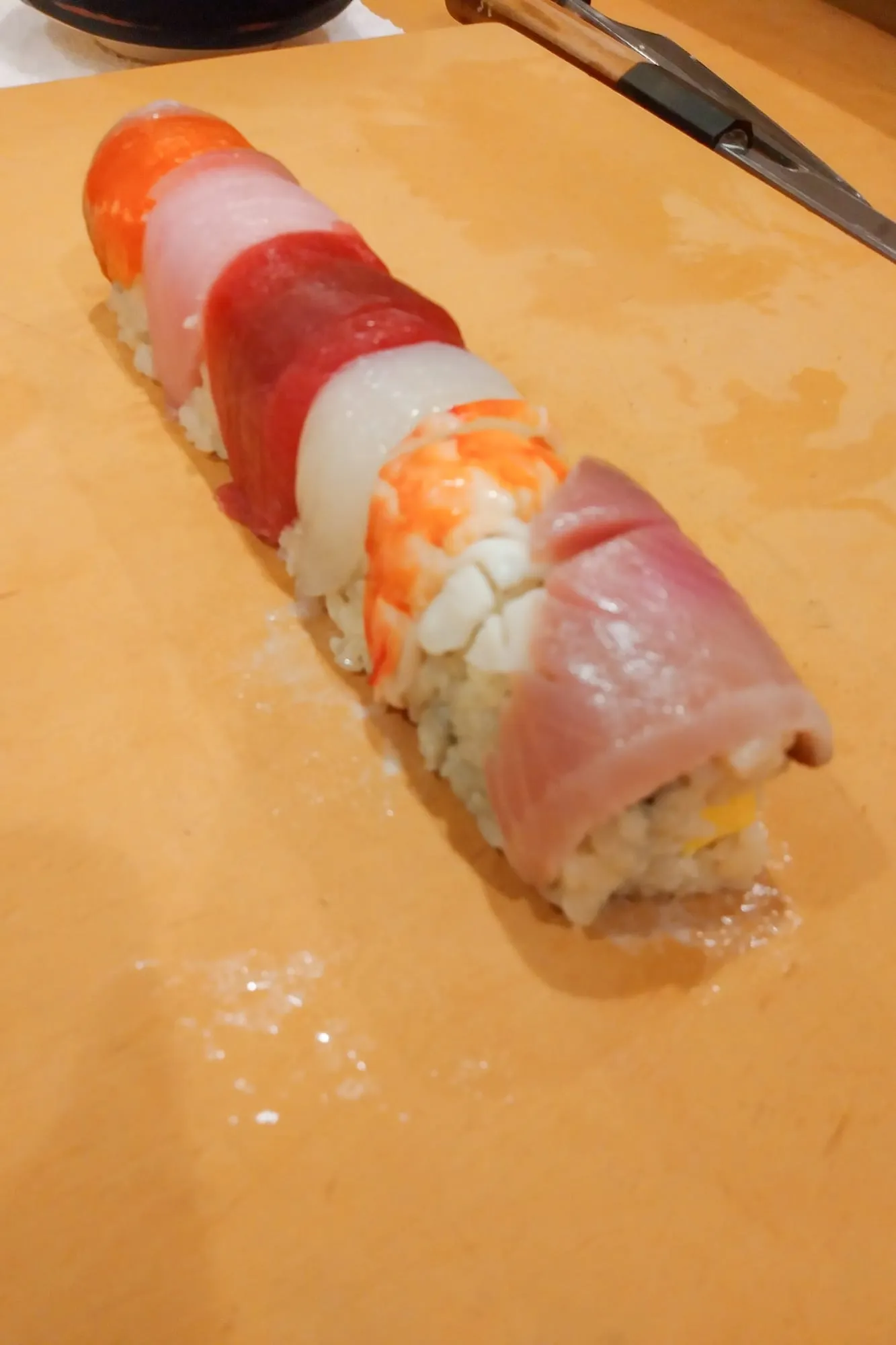
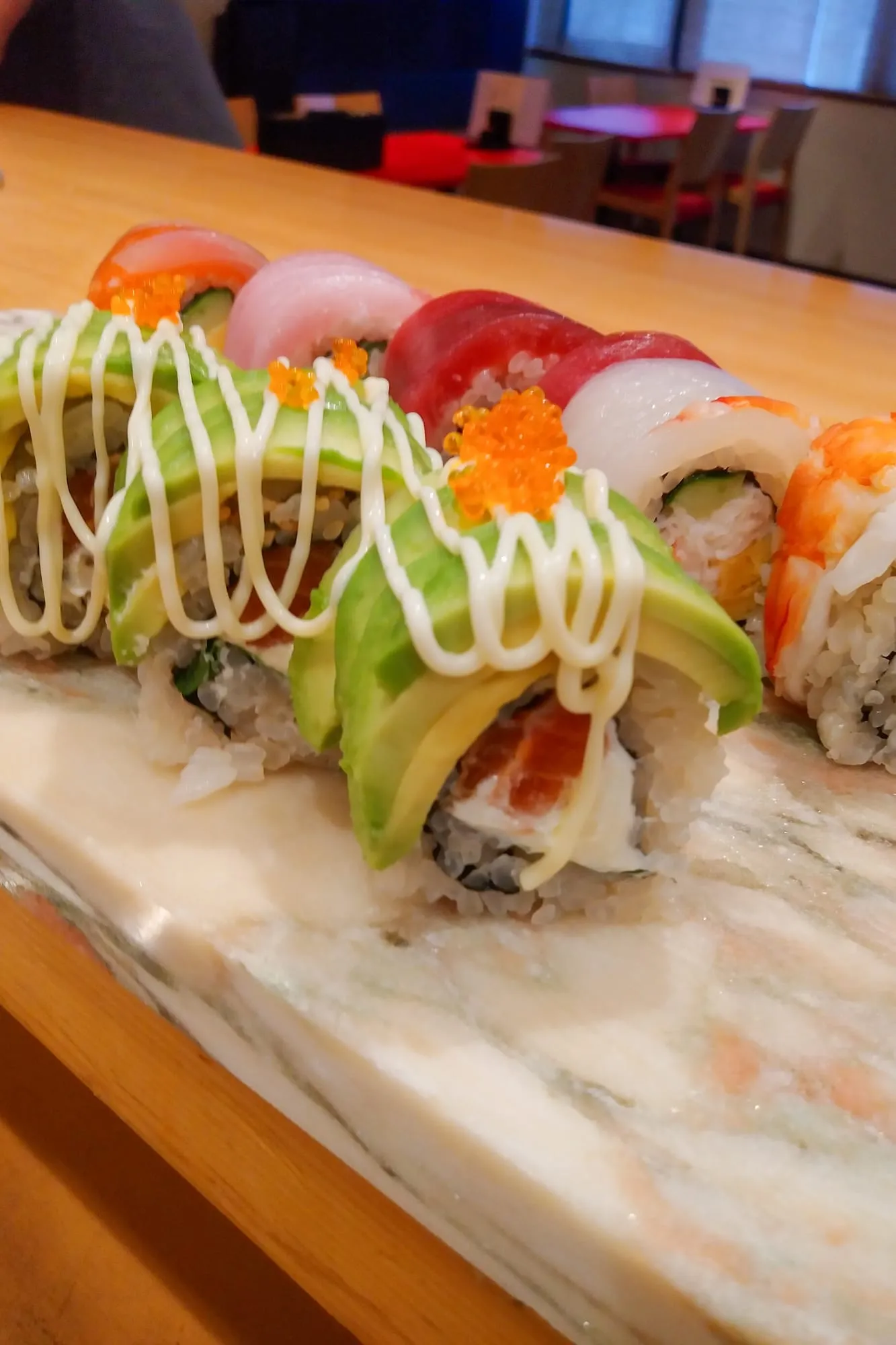
He learned how to make uramaki, the inside-out sushi roll essential for California rolls. He experimented with various fillings, combining ingredients like avocado, cucumber, and imitation crab, rolling them with the rice on the outside.
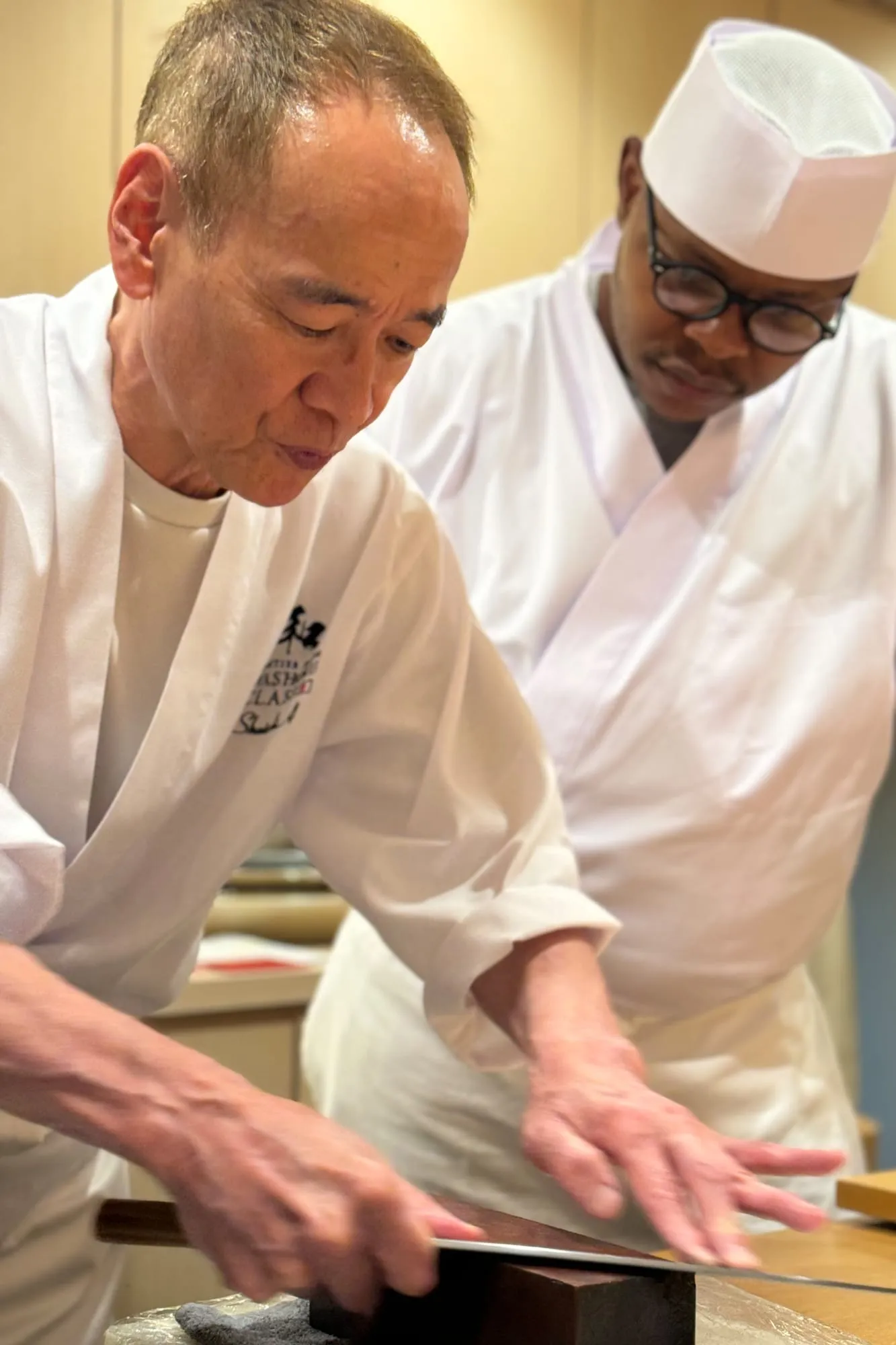
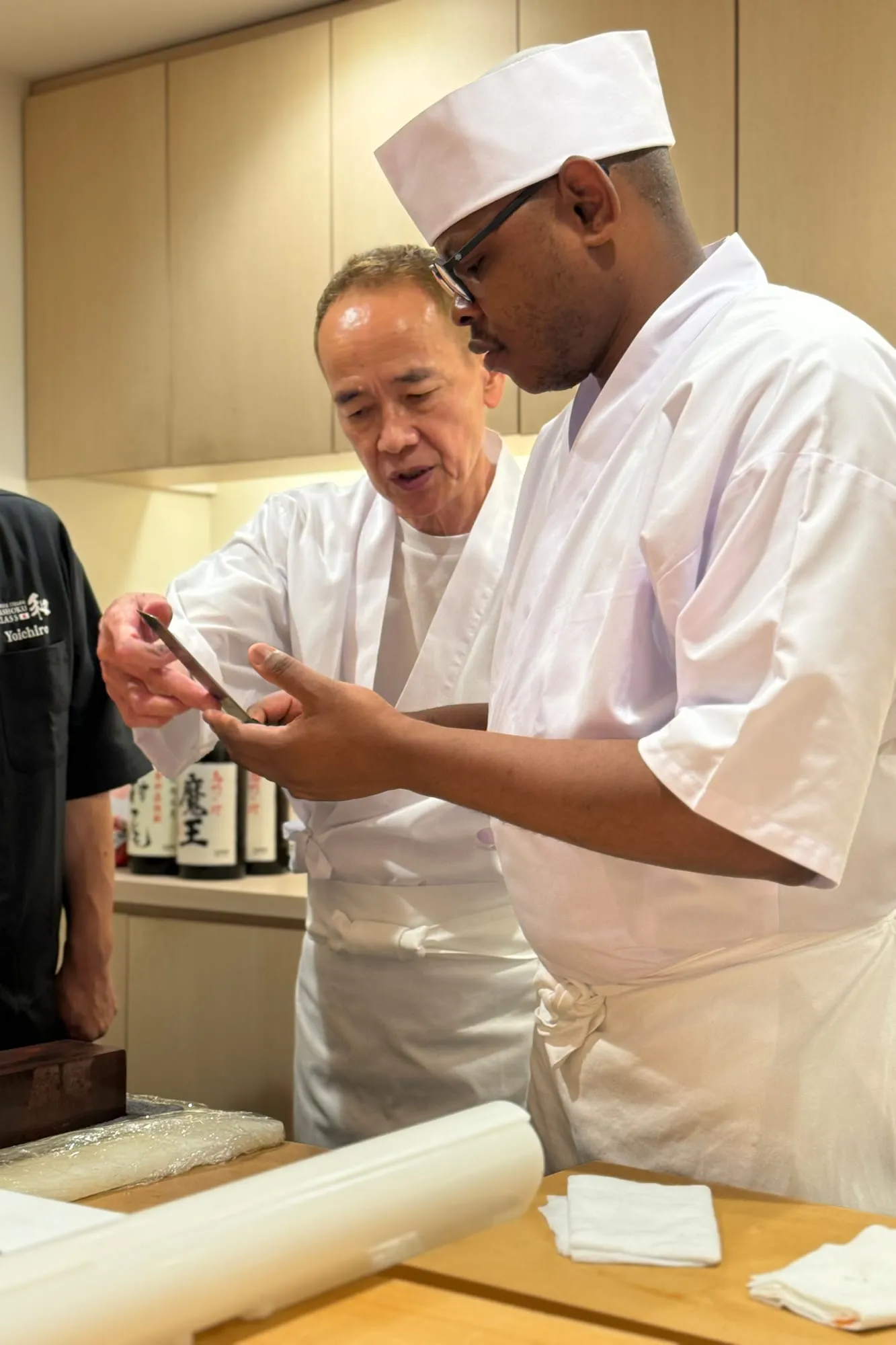
We provided Teddy with instruction on sharpening and maintaining knives. This experience has likely helped him develop a deeper connection with his knife, treating it as an extension of himself and fostering a greater sense of care and responsibility.
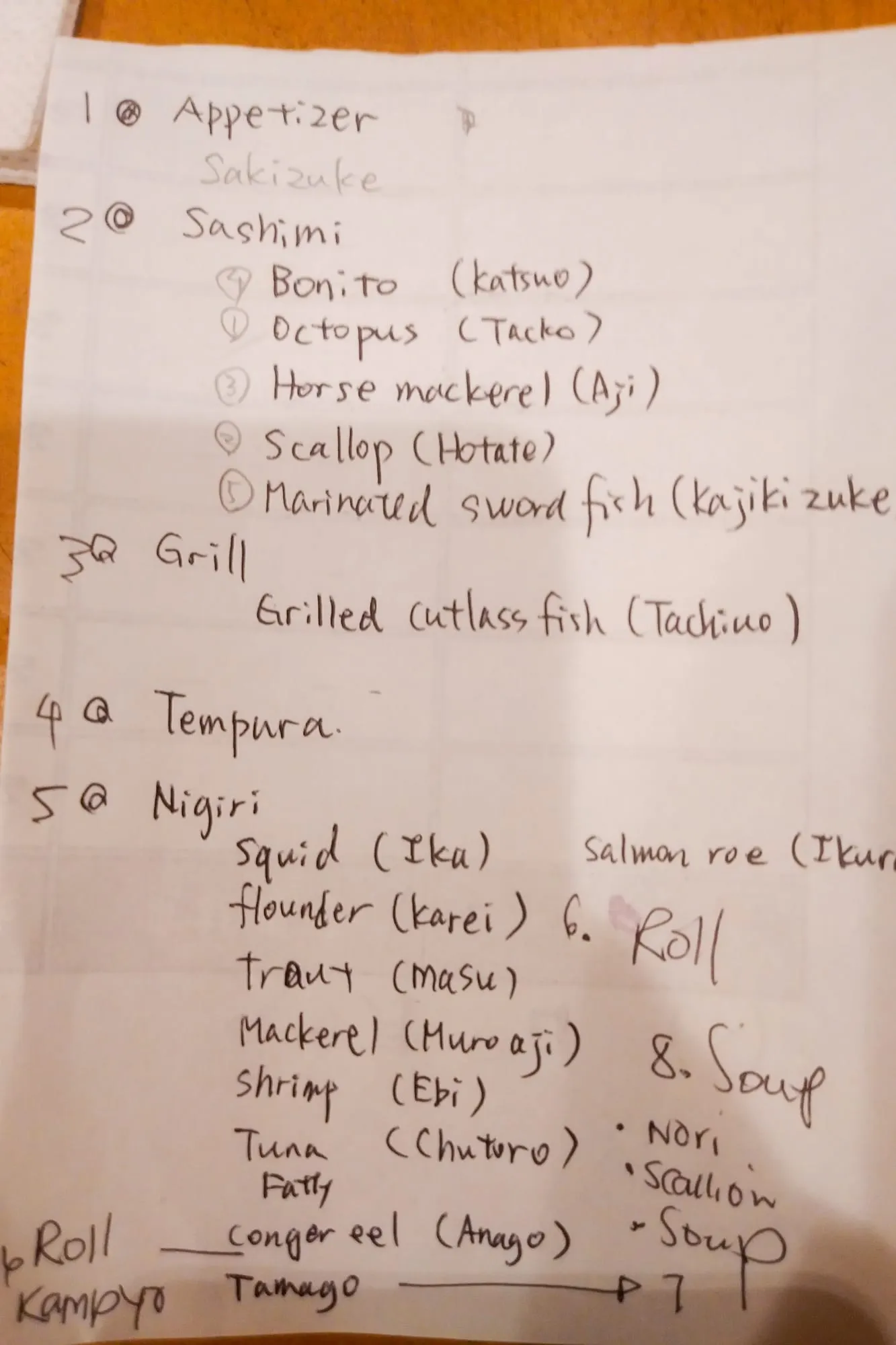
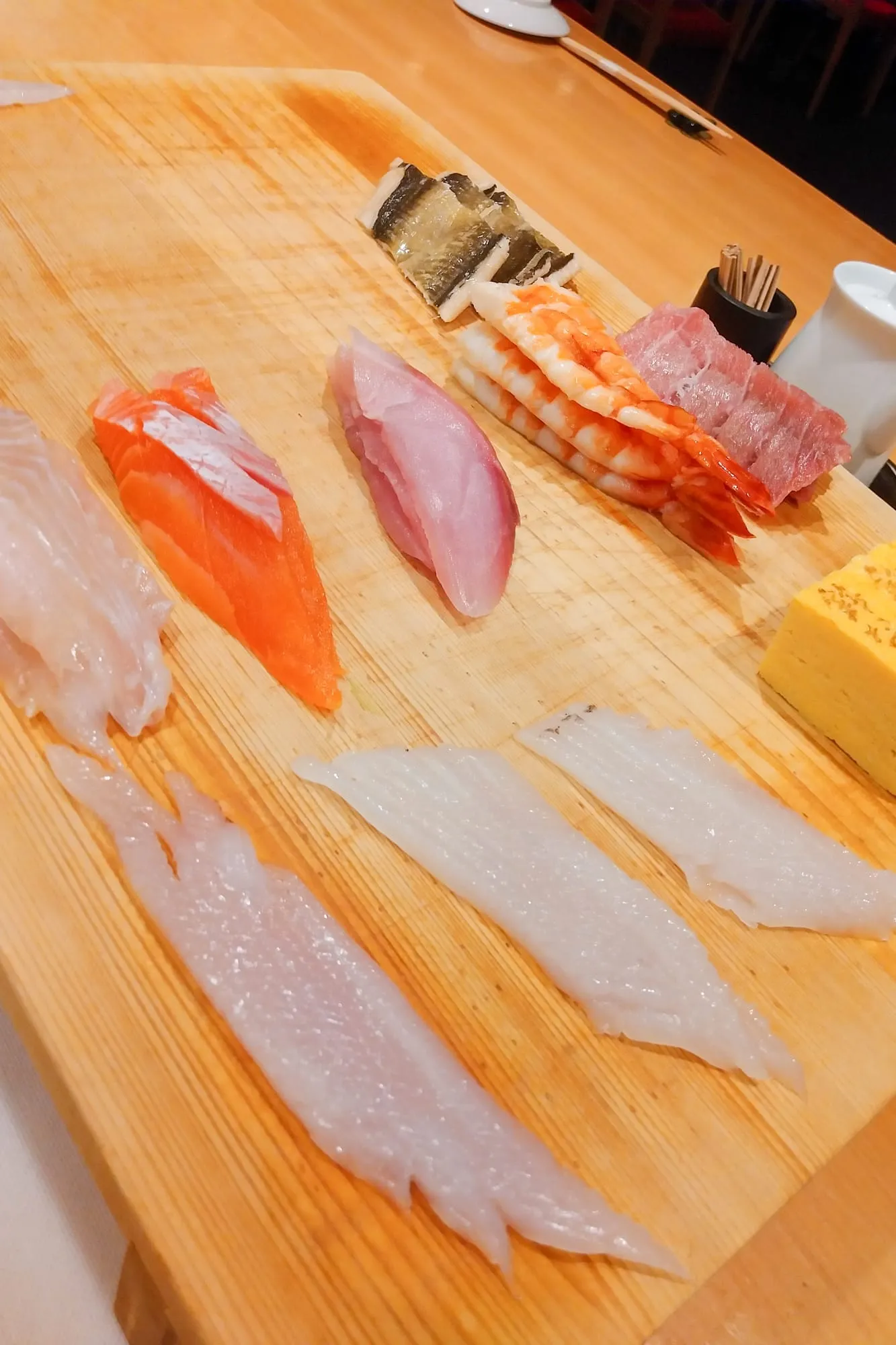
On the final day, he had the opportunity to serve nigiri sushi to real customers. With three guests in total, he was assigned two customers to serve while the instructor attended to one. Before the customers arrived, Teddy prepared the rice and other ingredients, ensuring everything was ready. Subsequently, he and the instructor meticulously planned the sequence of service and discussed the presentation to ensure a smooth and professional dining experience.
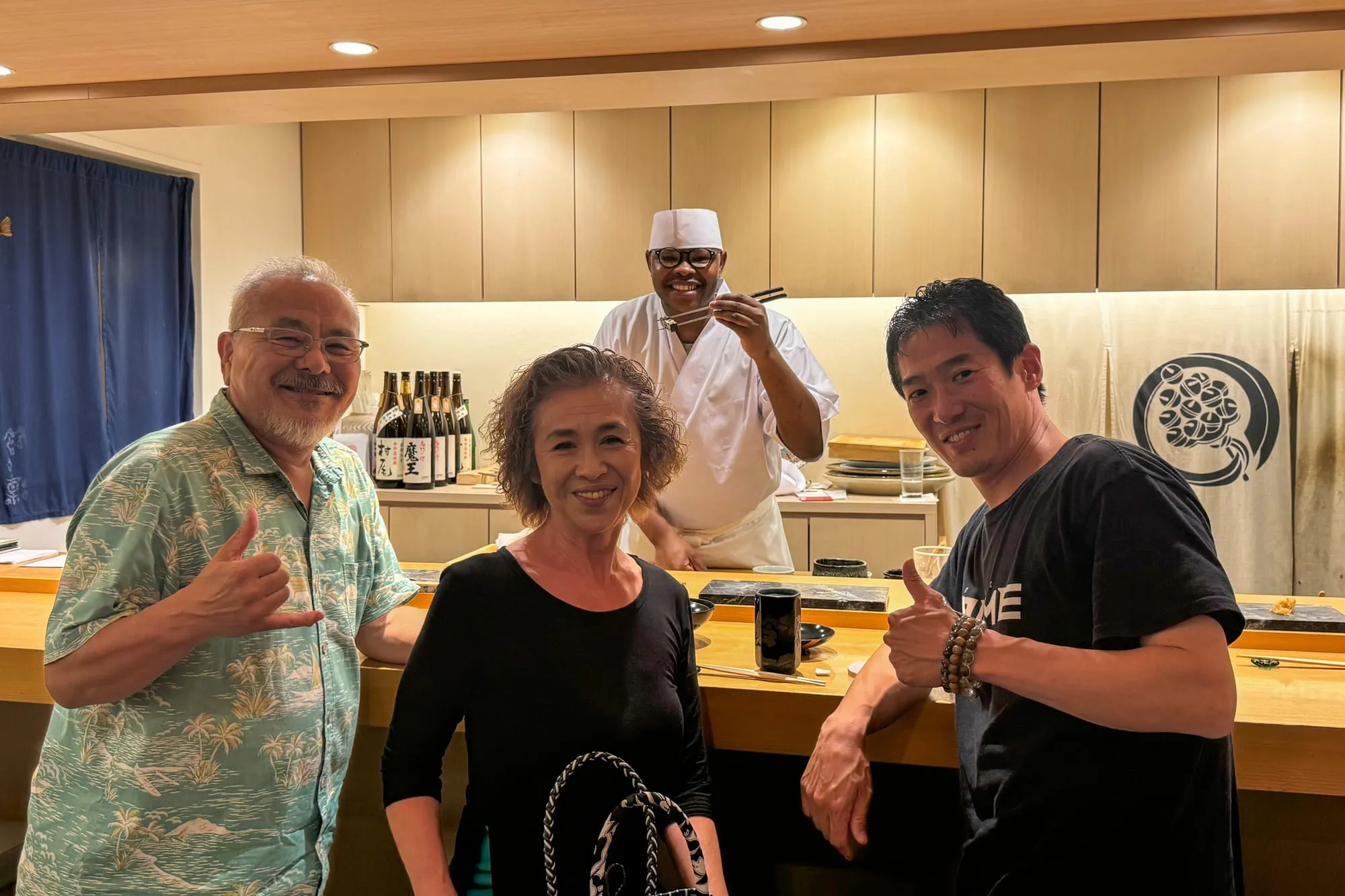
On his final day, he had the opportunity to serve nigiri sushi directly to customers. Despite initial nervousness, he successfully prepared and presented the dishes, receiving positive feedback from the guests. Teddy expressed his desire to return and continue refining his skills, leaving with a sense of accomplishment and a commitment to further growth.
